Kiva Systems
description: company that manufactures mobile robotic fulfillment systems
35 results

Arriving Today: From Factory to Front Door -- Why Everything Has Changed About How and What We Buy
by
Christopher Mims
Published 13 Sep 2021
I asked Mick to comment on the injury rate at facilities with Kiva robots, and he said that in the original design of the Kiva system, “we always pointed out the human is in control of the machine, not the other way around. We’d say, this is not the Lucille Ball episode where she’s on the chocolate line. That’s the old-school way, where the automation is driving the human. In the Kiva system, the human drives the automation. If it takes me twenty-seven seconds to pack out a wedding dress, that’s how long it takes. It’s only when I scan an item that a pod leaves and another shows up. Whatever pace you’re working at is the one that it feeds you at.” One element of the Kiva system that Amazon has retained to this day is that Amazon’s warehouse management software knows exactly how quickly every worker is stowing or picking.
…
That he deserves only a plurality of the credit, perhaps barely a double-digit percentage, hardly matters for our story. From the perspective of how Amazon automated itself and may someday automate its competitors out of business, perhaps no one else is more central to this tale or saw more of how it all unfolded. In April 2002, Mick Mountz began working full-time on the idea that became Kiva Systems, a robotics company that almost couldn’t get funded because dozens and dozens of venture capital investors said no. VCs are people whose entire job is to bet on longshots. But robots? For retailers? You’ve got to be crazy, they told him. Mick was living off his savings, but he wasn’t exactly eating ramen and sleeping under his desk.
…
That year, with a handful of engineers, he got started in a small office in Burlington, Massachusetts, a town just outside Boston. His embryonic start-up may have been a continent away from Silicon Valley, but it was well placed to take advantage of the talent pouring out of the many universities in the area, not least Mick’s alma mater, MIT. The fundamental challenge Mick and Kiva Systems faced was the same one that held back all of e-commerce: the world’s supply chains were not designed to handle individual items. Rather, they were built for containers, truckloads, pallets, and maybe, if your supply chain manager was particularly savvy, cases of goods. Various pallet- and case-level systems for handling these goods in warehouses were in use even in the late 1990s.
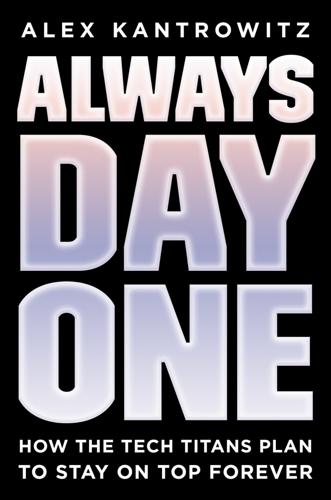
Always Day One: How the Tech Titans Plan to Stay on Top Forever
by
Alex Kantrowitz
Published 6 Apr 2020
Business Insider, July 28, 2015. https://www.businessinsider.com/jeff-bezos-email-against-powerpoint-presentations-2015-7. The memo was exhaustive: These memos even have their own set of micro-leadership principles for each group, called tenets. In March 2012, Amazon acquired Kiva Systems: Rusli, Evelyn. “Amazon.com to Acquire Manufacturer of Robotics.” New York Times. New York Times, March 19, 2012. https://dealbook.nytimes.com/2012/03/19/amazon-com-buys-kiva-systems-for-775-million/. Amazon placed roughly 15,000 robots in its FCs by 2014: Seetharaman, Deepa. “Amazon Has Installed 15,000 Warehouse Robots to Deal with Increased Holiday Demand.” Business Insider. Business Insider, December 1, 2014. https://www.businessinsider.com/r-amazon-rolls-out-kiva-robots-for-holiday-season-onslaught-2014-12.
…
Amazon is a publicity-averse company, but it’s clear why it lets Virdi out into the wild. Aside from being a walking press release, Virdi is a new type of manager, leading humans who work alongside robots, a dynamic Amazon has spent the past eight years figuring out how to navigate. In March 2012, Amazon acquired Kiva Systems, the manufacturer of the robots used in its FCs, and has since deployed the bots with extraordinary speed. Amazon placed roughly 15,000 robots in its FCs by 2014 and had 30,000 in operation by 2015. Today, the company employs more than 200,000 robots, augmenting a workforce of approximately 800,000 humans.
…
See invention “disagree and commit” principle, 24 Dorsey, Jack, 212 Downey, Allen, 200 Dweck, Carol, 185 Dyer, Lee, 210–13 dystopian technological scenarios, 191–205 education system, 213–15 Eichenwald, Kurt, 189–90 Elamiri, Abdellah, 164, 165, 189 Element.ai, 13 Elison, Meg, 193 eMarketer, 73, 111, 114, 147, 195 employment, technology’s impact on, 35–36, 201–2, 204–5, 215–16, 223–24 Engineer’s Mindset about, 14–18, 17 and Apple, 17, 131, 143, 151, 161 at aQuantive, 163 general adoption of, 18, 211, 213, 225 tech leaders with (see Bezos, Jeff; Nadella, Satya; Pichai, Sundar; Zuckerberg, Mark) three applications of, 15–17, 17 (see also collaboration; hierarchies; invention) execution work, 8–10, 11–14, 226 Facebook, 55–91 abuses of power by, 195–96 addressing feedback failures at, 83–89 advertising revenues of, 195–96 algorithmic compensation model of, 81–82 artificial intelligence/machine learning at, 75–81, 88 and Cambridge Analytica, 83, 84, 158 and congressional investigations, 83–84, 85–86 content moderation at, 77–81, 86 contractors’ wages at, 155 dominance of, 3 Engineer’s Mindset at, 16 and Facebook Groups, 69–70, 201 and Facebook Live, 77 feedback culture at, 1–2, 16, 55–57, 60–62, 66, 68 and feedback from staff, 65–68, 70–74 and feedback from users, 59, 59n, 68–70 Friday Q&As at, 62–63 idea pathways at, 62–63 invention at, 58–60, 101 leadership team at, 63–64 mobile app of, 65–68 and News Feed, 68–69 and Oculus Connect (virtual reality), 89–90 optimism evident at, 85–86 and presidential election of 2016, 16, 59, 64, 83 and privacy emphasis of Apple, 157–58 reinventions of, 7, 74, 89–90 and Sandberg, 64–65 Stories feature of, 70–74 suicide-prevention tool of, 79–80 training on feedback delivery, 55–57 vulnerability of, 58 See also Zuckerberg, Mark face-recognition technology, 75–76 factories, 207–8 Farestart, 217 Federal Bureau of Investigation (FBI), 155–59 Federighi, Craig, 129, 134 feedback and feedback cultures addressing gaps/failures in, 85–89 and Apple’s Siri, 144 Facebook’s culture of, 1–2, 16, 55–57, 60–62, 66, 68 and hierarchy, 55, 213 at Microsoft, 181 from the public, 59, 59n receiving, 57 training on delivery of, 55–57 VitalSmarts’ method of, 56 Firefox by Mozilla, 104, 106–7 Fitzpatrick, Jen, 114–15 Fong-Jones, Liz, 119 Fox, Nick, 116 General Motors (GM), 9 Gershgorn, Dave, 188 Ghonim, Wael, 193 Giannandrea, John, 134 Giridharadas, Anand, 217 Give and Take (Grant), 63 Gizmodo, 94 Gleit, Naomi, 62, 63 Go grocery store of Amazon, 21–22, 25, 53 Goldstein, Robin Diane, 132, 138 Goler, Lori, 62, 81, 82 Google, 93–128 abuses of power by, 195–96 advertising revenues of, 195–96 and AI Principles, 122 and Alphabet restructuring, 110–11 and Amazon Echo, 109, 111 and Android, 96, 108 and artificial intelligence/machine learning, 13, 109, 111–12, 114, 119–23 and Chrome, 7, 96, 102–8 communication tools enabling collaboration at, 96–99, 115–16, 123, 125, 128 cross-company collaboration at, 17, 96–97, 114–16, 118–19 and Damore memo, 93–95 dissent at, 119–28 dominance of, 3 empowerment of employees at, 105–6 Engineer’s Mindset at, 17 and Gmail, 102–4, 112 and Google+, 115 and Google Assistant, 7, 17, 96, 113–19 and Google Home, 116–17, 118, 147 invention encouraged at, 101 and Microsoft, 96, 100, 102, 103–4 and partnerships for Toolbar distribution, 100–102, 107 and Pentagon’s Maven project, 119–23, 127 productivity apps of, 103 products developed by, 7 reinventions of, 95–96, 110–11, 114 transparency at, 96, 115–16, 121, 127, 128, 138 Walkout at (2018), 123–28, 154–55 See also Pichai, Sundar government, change needed in, 226 Graham, Don, 60–62, 64 Grant, Adam, 63, 214 Green, Cee Lo, 11 Green, Diane, 120 growth, productivity, 197, 225 growth mindset cultures, 185–86 Hardesty, Ken, 160 Hartman, Marty, 216, 219 Henry, Alyssa, 212 Herbrich, Ralf, 38–39, 42, 52, 220 hierarchies, 184 at Apple, 17, 131, 136 at aQuantive, 163 and Engineer’s Mindset, 16, 17 at Facebook, 55, 62 and hardware operations, 116–17 at Microsoft, 166, 180–83, 190 See also feedback and feedback cultures Hill, Ned, 9 Hired (Bloodworth), 33 Hirsch, Gil, 75 Hit Refresh (Nadella), 165, 180, 183, 184 Hoefflinger, Mike, 65 homelessness, 216–17 HomePod of Apple, 129–31 Honan, Mat, 2 housing, lack of affordable, 216–17 Human Side of Enterprise, The (McGregor), 208–9 Hyman, Louis, 213 IBM, 13 idea work, 8–10, 14, 15 income inequality, 215–19 independent-thinking skills, 214 initiative, value of, 215 “innovator’s dilemma,” 9 Instagram Stories, 73 Internet use, social effects of, 200 introverts, 212 invention Amazon’s culture of, 16, 22–26, 45, 51 Amazon’s system of, 26–30, 36, 101 at Apple, 131, 136–37, 160–61 at aQuantive, 163 and copying other products, 74 cultivation of, 211 democratic invention, 15–16, 17 enabled by technological advances, 9–10 and Engineer’s Mindset, 15–16, 17 exercising thoughtfulness in, 224 at Facebook, 58–60, 101 at Google, 101 incentivizing, 212 at Microsoft, 164, 166, 172–73, 179–80, 190 and reinvention, 7–8, 74 in smaller companies, 225 stymied by tech giants, 196 systems that support, 211–12 Isilon Systems, 18 Ive, Jony, 134, 135 Jassy, Andy, 45 Jobs, Steve death of, 142–43 and iPhone, 7, 142 on values represented in marketing, 159 vision of, 132–33 Judah, Norm, 177, 178 Kiva Systems, 31 knowledge economy, 9 Kumar, Dilip, 45–46 Kwon, Elaine, 40, 41, 45, 49, 52 language translation, automation of, 43 Larson-Green, Julie, 173, 181, 182, 183, 188 Lavin, Carl, 86–88 lay-offs, 221–22 LeCun, Yann, 76 Lee, Kai-Fu, 74 Leo, Michael, 223 Li, Fei-Fei, 120–21 Lin, Sandi, 28, 48, 52 LinkedIn, 186–87 Litwin, Adam Seth, 215, 216, 218 Lobe, 179 loneliness epidemic, 199–200 Lynn, Barry, 195–96 machine learning.
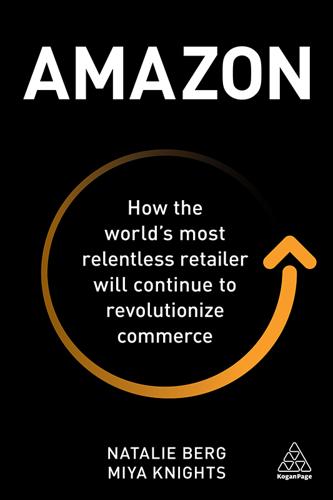
Amazon: How the World’s Most Relentless Retailer Will Continue to Revolutionize Commerce
by
Natalie Berg
and
Miya Knights
Published 28 Jan 2019
If there’s one thing Amazon learned from Webvan’s crash, it was to nail down its business model before embarking on any kind of expansion. Leading the AmazonFresh initiative were four former Webvan executives – Doug Herrington, Peter Ham, Mick Mountz and Mark Mastandrea. It’s worth highlighting here that Mountz is also the founder of Kiva Systems, the robotics company that Amazon acquired in 2012. Kiva was built on technology originally developed at Webvan and has since become a key part of the AmazonFresh strategy. Interestingly, Webvan was also resurrected in that Amazon purchased the domain – the site was once used to sell Amazon’s non-perishable food items, though it’s no longer in operation today.
…
The rapid expansion of its Prime commitments has almost certainly been a catalyst for Amazon to bring the ubiquitous connectivity of its cloud services to bear on the development of increasingly autonomous, command-and-control operational fulfilment capabilities for many years. In this way, it has also entrusted robots in its warehouses and delivery drones with autonomous functionality to support growth. As previously discussed, in 2012, Amazon acquired Kiva Systems, the robotics company that had been supplying warehouse robots for Amazon to automate its order fulfilment processes, and which is now the backbone of the company’s Robotics division. In 2015, MIT Technology Review noted some 2,000 of the orange Kiva robots that were helping humans keep shelves stocked during a tour of a New Jersey Amazon distribution and fulfilment centre.8 Today, consensus estimates put its total robot fleet at over 100,000.
…
So much so that in 2013, German unions called for strikes over Amazon warehouse workers’ pay rates.18 ‘The factory [or warehouse] of the future will have only two employees: a man and a dog. The man will be there to feed the dog. The dog will be there to keep the man from touching the equipment.’ Warren Bennis19 Let’s not forget, as referenced in our exploration of automation development, Amazon bought Kiva Systems, the company that manufactures the robots, for $775 million in 2012. Following the acquisition, to cover itself for the 2014 holiday season, it added about 15,000 Kiva robots to 10 US fulfilment centres. Current estimates suggest they now make up one-fifth of the Amazon workforce and also reduce warehouse operating costs by 20 per cent.
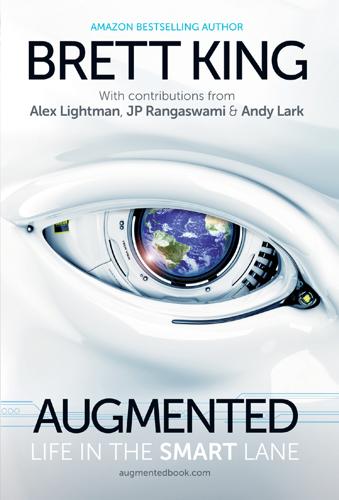
Augmented: Life in the Smart Lane
by
Brett King
Published 5 May 2016
When these projects fail, heads roll, customer and employee experiences fall and headcounts are reduced. Amazon Loves Robot Workers Projects that purely automate are far fewer and can also be seen as creating more jobs than they displace. An interesting example is that of a warehouse automation solution called Kiva Systems. Kiva Systems was founded in 2003 by Mick Mountz after his experience with the failed online grocery delivery service Webvan. Webvan was going to put all grocery stores out of business. Mountz believed Webvan failed because the high cost of warehouse operations meant that each order was too expensive to fulfil using traditional material handling and warehouse management solutions (WMS).
…
After years of product development and marketing, Kiva made a large splash in the industry and sales of the products were just taking off when Amazon stepped in and bought Kiva lock, stock and barrel for US$775 million in March 2012.12 The acquisition of Kiva Systems was second only to Amazon’s purchase of Zappos in 2009. Amazon was persuaded that Kiva offered an unfair advantage. Amazon immediately let go the entire Kiva Systems sales and marketing staff and stopped all product sales. It seems Amazon considered the automation of its own warehouses to be so valuable that it would forgo the profits from selling the system and keep the technology away from its competition.
…
After 40 years, it is still considered one of the defining essays on robotics in society. 4 International Federation of Robotics, http://www.ifr.org/industrial-robots/statistics/. 5 IEEE.org, http://spectrum.ieee.org/automaton/robotics/industrial-robots/041410-world-robot-population. 6 iRobot financial reports 7 Michael Addady, “The number of drones expected to sell during the holidays is scaring the government,” Fortune, 29 September 2015. 8 Author’s own estimate based on PricewaterhouseCoopers (PWC), IHC research and annual vehicle sales projections 9 As do autonomous vehicles, the Hubble Space Telescope and my iRobot vacuum cleaner 10 http://www.pbs.org/newshour/rundown/smart-robots-will-take-third-jobs-2025-gartner-says/ 11 Kevin Kelly, “Better than human: Why Robots Will—and Must—Take our Jobs,” Wired, 24 December 2014, http://www.wired.com/2012/12/ff-robots-will-take-our-jobs/. 12 “Amazon Acquires Kiva Systems in Second-Biggest Takeover,” Bloomberg Business, 19 March 2012. 13 Called Hangar One, the hangar is located at Moffett Federal Airfield. The hangar is one of the largest freestanding structures in the world. The hangar was constructed in 1931 to house airships like the USS Macon. Its interior is so large that fog sometimes forms near the ceiling. 14 http://www.bls.gov/news.release/ecopro.t08.htm 15 http://www.japantimes.co.jp/opinion/2015/07/07/editorials/shortage-of-nursing-care-workers-2 16 http://ajm.sagepub.com Chapter 5 Human 2.0 By Alex Lightman and Brett King “We have drunk Soma and become immortal; we have attained the light, the Gods discovered.
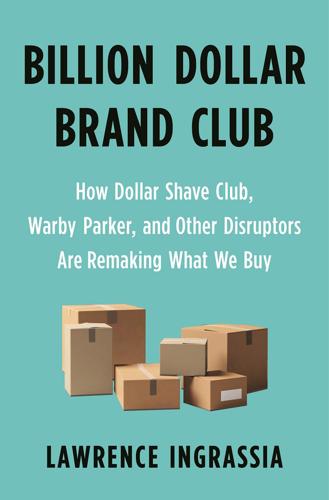
Billion Dollar Brand Club: How Dollar Shave Club, Warby Parker, and Other Disruptors Are Remaking What We Buy
by
Lawrence Ingrassia
Published 28 Jan 2020
Kiva robots had been installed: Robert Malone, “Staples Fastens onto Kiva,” December 19, 2005, Forbes, https://www.forbes.com/2005/12/19/staples-kiva-robots-cx_rm_1219robots.html#4fc29c502584. customers received a product they didn’t order: “The Big Send-Off,” Internet Retailer, May 29, 2009, https://www.digitalcommerce360.com/2009/05/29/the-big-send-off/. “We got the bad news”: Amazon, “Amazon.com to Acquire Kiva Systems Inc.,” press release, March 19, 2012, https://press.aboutamazon.com/news-releases/news-release-details/amazoncom-acquire-kiva-systems-inc/. shipped five billion packages in 2017: Amazon, “Amazon’s Best of Prime 2017 Reveals the Year’s Biggest Trends—More than 5 Billion Items Shipped with Prime in 2017,” press release, January 2, 2018. By 2019, it operated: MWPVL International, “Amazon Global Fulfillment Center Network,” May 2019, http://www.mwpvl.com/html/amazon_com.html.
…
Advanced for its time, it still required a lot of manual labor and was prone to bottlenecks if, for instance, a conveyor broke or slowed down. Having built a successful business, and looking for new challenges, Welty and his partners sold AllPoints in 2001 for $30 million. After dabbling in investing and consulting for a few years, Welty and Johnson began hearing about a start-up named Kiva Systems, which was in the early stage of developing warehouse robots. Kiva had been founded by former executives of Webvan, an online grocer that had gone bust, in part because its warehouses weren’t sufficiently automated. Welty’s immediate reaction was “I don’t believe you. Robots in a warehouse? Not a chance.”
…
Gilt Groupe Gimenez, Francisco Ginko International Giorgio Armani Gleam Gleem globalization Glossier GlossierBrown Glow Light Goby Goggles4u Goldman Sachs gold star companies Goodman, Marla Google Google Checkout and Shopping Gordon, Stephen Gorecki, Ryan Gormsen, Christian GQ Grand Junction Great Jones Green, Draymond Green, Kirsten Grobart, Sam groceries Guess GV Hacker News hair coloring hair-loss products for men Hales, Derek Happy Belly Harrison, Brad Harry’s hate list Hawkins, David hearing aids HelloBeautiful Henkel Henri Bendel Hill, Ken Hims Hinomoto wheels home décor hOmeLabs Home Try-On Honda Honeywell Horwitz, Jesse HSBC Hubble Huffington Post Huggies Human Ocean Wing E-commerce Hybrid Designs hydrogel ice makers Idea Farm Ventures iHear Medical Inc. 5000 list India Indochino influencers, paid Innovel Instagram inStyle intent platform Interactive Advertising Bureau Interesting Engineering International Sleep Products Association intimate apparel Into the Gloss blog inventory iPhone IPOs iTunes Japan J. Crew Jet.com Jiaxing Zichi Trade Co. Jobs, Steve Johnson, Michael Johnson & Johnson Jones, Michael Kai Kalvaria, Selena Kangaroo Kaplan University Katz-Mayfield, Andy Kaziukenas, Juozas Kellogg’s Kerouac, Jack keyword bids Kickstarter Kim, John Brian kitchenware Kiva Systems Kleiner Perkins Kmart Korey, Steph Koulouris, George Krim, Philip Kumar, Adrian Lackenby, Steve Laczay, Tibor Lai, Patricia Lane Bryant Lark & Ro Laseter, Tim last-mile problem laundry detergent L Brands lead generation Le Conte, Thibault Leesa Lensabl LensCrafters Lerer, Ben Lerer Hippeau Levine, Mark Levi Strauss Levy, Brian lifestyle branding lifetime guarantee Lingley, Ann LinkedIn Lively Locus Robotics logistics Lola Lookalike Audience Lord & Taylor L’Oréal Louis Vuitton LTV (lifetime value) luggage rolling smart Lull Lumi Luxottica LVMH Lyft machinery, hair coloring production MacNeil, Thomas Macy’s Made In Madison Reed Mahoney, Patrick malls Mama Bear manufacturing Maridou, Evan Marino, John-Thomas “JT” marketing.
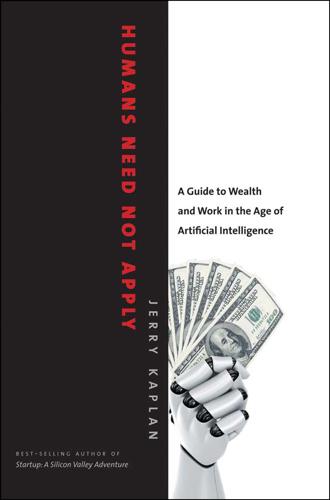
Humans Need Not Apply: A Guide to Wealth and Work in the Age of Artificial Intelligence
by
Jerry Kaplan
Published 3 Aug 2015
These employees no longer have to be familiar with the location of products on the shelves; indeed, it would be near impossible to do so in such a haphazard and evolving environment. Having first simplified the skills required to get the job done, Amazon can now replace the workers that roam the warehouse floor picking those orders. This is likely why the company bought the robotics company Kiva Systems, reportedly for $775 million, in 2012.4 This is a single example of a profound shift that synthetic intellects will cause in our world. The need to impose order—not only for warehouses but for just about everything—is driven by the limitations of the human mind. Synthetic intellects suffer no such constraint, and their impact will turn tidiness to turmoil in many aspects of our lives.
…
“Employment Projections,” Bureau of Labor Statistics, table 2.1: Employment by Major Industry Sector, last modified December 19, 2013, http://www.bls.gov/emp/ep_table_201.htm. 3. Torsten Reichardt, “Amazon—Leading the Way Through Chaos,” Schafer Blog, May 18, 2011, http://www.ssi-schaefer.de/blog/en/order-picking/chaotic-storage-amazon/. 4. http://en.wikipedia.org/wiki/Kiva_Systems, last modified December 1, 2014. 5. I’m oversimplifying a bit. Cyclical unemployment, also known as turnover, has numerous causes—people quitting, getting laid off, changing jobs, taking leaves of absence, etc. Being automated out of the job is only one of these. 6. “Job Openings and Labor Turnover Summary,” Bureau of Labor Statistics Economic News Release, November 13, 2014, http://www.bls.gov/news.release/jolts.nr0.htm.
…
(TV quiz show), 30, 36, 150, 198–99 job mortgage loans proposal, 13–15, 153–57 jobs. See labor market John, George, 70, 72 Johnson, Lyndon B., 167 Kaiser Permanente, 214n8 Kennedy, John F., ix Keynes, John Maynard, “Economic Possibilities for Our Grandchildren,” 186 kitchen equipment, multipurpose, 46–47 Kiva Systems, 135 Kleiner, Perkins, Caufield and Byers, 95 knowledge engineers, 23 Komisar, Randy, 218n15 Labor Department, 157 labor market, 119–27 advanced technology and, 191 alternatives to paid work and, 185–86 autonomous systems as threat to, 10–12, 20, 126–27, 131–58 average salary and, 116 competition for jobs and, 121–25 conventional economics and, 12 education-work sequence and, 13, 153, 157–58 excess workers and, 158 exclusions from, 170–71 federal measures and, 170, 171–72 historical comparisons and, 115–16, 164, 222n3 job skills and (see skills) letters of intent to hire and, 14, 154, 155 predictions about, 138–39, 140 reasons for working and, 184–85 salaries and, 116, 120, 145 tectonic shifts in, 133–35 turnover (2013) in, 137 workday standardization and, 171 work incentives and, 184–85 working adult statistics and, 172–74, 176.
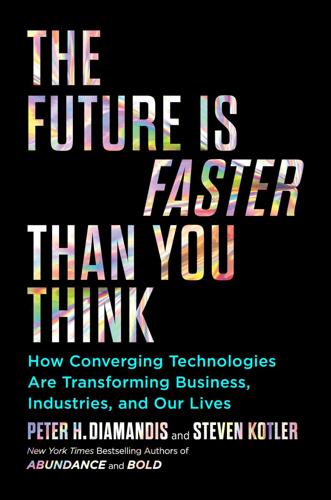
The Future Is Faster Than You Think: How Converging Technologies Are Transforming Business, Industries, and Our Lives
by
Peter H. Diamandis
and
Steven Kotler
Published 28 Jan 2020
Best Buy uses a robo-cashier: Kavita Kumar, “Best Buy Tests Robot at New York Store,” Star Tribune, September 26, 2015. See: http://www.startribune.com/best-buy-tests-robot-at-new-york-store/329583301/. LoweBot: “LoweBot.” See: http://www.lowesinnovationlabs.com/lowebot. out $775 million for Kiva Systems: Evelyn M. Rusli, “Amazon.com to Acquire Manufacturer of Robotics,” New York Times, March 19, 2012. See: https://dealbook.nytimes.com/2012/03/19/amazon-com-buys-kiva-systems-for-775-million/?mtrref=undefined&gwh=A926616EBBF3A219E03216397142BB8B&gwt=pay&assetType=REGIWALL. Kiva robots: Sam Shead, “Amazon Now Has 45,000 Robots in Its Warehouses,” Business Insider, January 3, 2017.
…
Walmart uses shelf-stocking robots for inventory control, Best Buy uses a robo-cashier to allow select locations to operate 24-7, and Lowe’s Home Improvement employs the LoweBot—a giant iPad on wheels—to help customers find the items they need while tracking inventory along the way. The biggest benefit robotics provides might be in warehouse logistics. In 2012, when Amazon dished out $775 million for Kiva Systems, few could predict that just six years later there would be forty-five thousand Kiva robots deployed at all of their fulfillment centers, helping process a ridiculous 306 items per second during the Christmas season. Many other retailers are following suit. Order jeans from the Gap and soon they’ll be sorted, packed, and shipped with the help of a Kindred robot.
…
., 158, 266–67 hydroponics, 204 Hydrostor, 220 Hyperloop, 16–19, 26, 72, 199 hyper-personalization, 120–21 IBM, 28, 35 Watson computer of, 103, 130 ICOs, see initial coin offerings IDs, blockchain and, 58 IKEA, 120, 204 Illinois, University of, 203 illnesses, see disease imaging, medical, 157 see also specific technologies immune system, 164 Imperial College, London, 160 Independent, 140, 155 India, 196 electric cars in, 221 renewable energy projects in, 216 Industrial Revolution, 111–12, 243 Inevitable, The (Kelly), 85 inflammation, 90 initial coin offerings (ICOs), 59, 75–76, 84 innovation: and availability of capital, 73–77 cities and, 82–83, 244 demonetization and, 77–79 internet and, 83 longevity and, 87–91 migration as accelerant of, 238–40 neurobiology and, 81 new business models for, 83–87 saved time and, 71 Insilico Medicine, 166, 167 insurance, peer-to-peer, 183, 185–87 insurance industry, 181–82 autonomous cars and, 184–85 convergence and, 183–89 crowdsurance and, 183, 185–87 data and, 185–86 dynamic risk and, 187–89 origins of, 182–83 sensors and, 188–89 statistics and, 186 intercellular communication, altered, 172 Intergovernmental Panel on Climate Change, 212, 227, 241 International Astronautical Congress (2017), 20 International Space Station, 53 internet, 39 browsers for, 32 innovation and, 83 job creation and, 23, 229 “Rising Billion” and, 99–100 self-teaching and, 145 Internet gaming disorder, 246 “Internet of Things” (IoT), 42–43, 104–6 investing, AI and, 195 IQ, 80 Iron Man (film), 37 Iron Ox, 205 Irrawaddy River Delta, 226–27 Itai Madamombe, 200 Iviva Medical, 55 iWatch, 157 Jaguar automobiles, self-driving, 14 JARVIS (fictional AI assistant), 37, 113, 123–24 Jepsen, Mary Lou, 157 Jet Propulsion Laboratory, 233 Jews, in flight from Nazi Germany, 238–39 Jobs, Steve, 20, 24, 70–71, 101 jobs, VR and, 248 Johnson, Bryan, 81, 255–56, 257 Johnson & Johnson, 162 Journal of Evolution and Technology, 230 Just Inc., 208 Kamen, Dean, 213–14 Karim, Jawed, 128 Kasparov, Garry, 28, 36 Kelly, Kevin, 85 Kennedy, John F., 73 Kenya, 192 Kenyon, Larry, 70 Kernel, 81, 256 Kibar, Osman, 177 Kickstarter, 74, 109 Kim, Peter, 161 Kimmelman, Michael, 232 Kindred, 108 Kitkit School, 146 Kitty Hawk, 5 Kiva Systems, 108 knowledge, integration of, AI and, 35–36 Kodak, 126 Kotler, Steven, 264 Kroger stores, 107 Kurzweil, Ray, 8, 12, 29, 76, 82, 91, 173 labor, human vs. robotic, 108 Lahtela, Petteri, 41 Lancet, 226 land ownership, blockchain and, 58 Lanier, Jaron, 50 LA Times, 67 “Law for Restoration of the Professional Civil Service” (Germany), 238 “Law of Accelerating Returns,” 8, 12, 29 Leap Motion, 52 Lemonade, 186–87 lending, peer-to-peer, 74, 194–95 Leroy Merlin, 110 leveraged assets, 84 Levine, Mark, 241 LG, 51, 139 LIDAR, 43, 185 Lieber, Charles, deep brain stimulation research of, 253–55, 256 Lifekind, 132 lifespan, extension of, see longevity Light Field Lab, 133–34 LightStage, 133, 134 Lightwave, 137 listening, AI and, 35 lithium-ion batteries, 62, 219–20, 222 Littlewood, John, 80 Liu, David, 67 Lloyd, Edward, 182–83 Lloyd’s of London, 183 loans, micro-, 191–92, 195 locked in syndrome, 141 logistics, robots and, 108 London College of Fashion, 114 longevity, 87–91, 169–79 anti-aging compounds and, 175 average human lifespan and, 173 convergence and, 169, 173, 179 “escape velocity” for, 173 genetics and, 172–73 innovation and, 169 regenerating medicines and, 176–77 senolytic therapies and, 175–76 stem cells and, 90 young blood transfusions and, 90, 178–79 see also aging Long Now Foundation, 232 Lonsdale, Joe, 17 looking, AI and, 34–35 Lovelace, Ada, 87–88 Lovelace, Gunnar, 190 Lowe’s Home Improvement, 107 lung disease, 151–52 Lyft, 195–96, 234 Lyrebird, 121 machine learning, 10, 34 Macintosh, 70–71 McKinsey Quarterly, 83 McNierney, Ed, 145–46 Made in Space, 53 Mad Men (TV show), 117 Magic Leap, 139, 149–50 mail-order business, birth of, 95–96 malaria, 160 Mall of America, 112 malls, 112, 115 Manning, Richard, 202 Mansfield, Mike, 73 manufacturing: impact of 3–D printing on, 54 zero-waste, 226 Marillion, 74 Mars, colonization of, 252 MashUp Machine, 34 Massachusetts Institute of Technology (MIT), 144, 220 Materials Genome Initiative, 62–63 materials science, 10, 11, 17, 61–63 meat, cultured, 206–8 media: passive vs. active, 130–31 print, 138 medial prefrontal cortex, 21–22 medicine, see healthcare memory, brain implants and, 82 Memphis Meats, 208 Menabrea, Luigi, 88 Messina, Jim, 17 metformin, 175 microbots, 162 micro-loans, 191–92, 195 Microsoft, 33, 114 Microsoft HoloLens, 52 Middleton, Daniel, 129 Mighty Building, 55 migrations: climate change and, 211, 241–42 in human history, 237–40 as innovation accelerant, 238–40 interplanetary, 249–53 from physical to virtual reality, 245–49 urban relocation and, 243–45 military drones, increasing demand for, 10 Ministry of Supply, 109 Minnesota, University of, 163 Mission: Impossible (film), 121 mitochondrial dysfunction, 171 Mitra, Sugata, 145 MIT Review, 145, 146 mobile finance, 190–91 mobile health, 157–58 mobile phones, as quasi-currency, 191–92 mobility, and economic paradigm shifts, 98 Moment, The (film), 141 money: uses of, 189–90 see also cryptocurrencies; finance industry Moon, as space colonization platform, 251 Moore, Gordon, 7 Moore’s Law, 7–8, 28–31, 74 Morgan (film), 130 Morse, Samuel, 38 Mosaic, 32 Moser, Petra, 238–39 Mote Tropical Research Laboratory, 225 motion transfer, 131 movies, participatory, 135 M-Pesa, 192 mPower network, 40 MRI (magnetic resonance imaging), portable, 157 multiple world models, 86 Musk, Elon, 40, 81, 146, 161, 219, 231 Boring Company and, 18–19 brain-computer interfaces and, 255–56, 257–58 Hyperloop and, 16 space colonization and, 20–21, 250, 251–54 Myanmar, 226–27 My Drunk Kitchen (YouTube program), 128 Myers, Norman, 241 Naam, Ramez, 216, 218, 220 Nakamoto, Satoshi (pseudonym), 57 Nalamasu, Omkaram, 63 Nano Dimension, 54 nanotechnology, self-replicating, 63–64, 231 Nanticoke Generating Station, 216–17 Narrative Science, 35 NASA, 6, 233 Mars mission of, 160–61 National Institute on Aging, 179 National Institutes of Health, All of Us project of, 159 National Resources Defense Council, 203 Nebula Genomics, 159 Nefertari, tomb of, 147–48 Negroponte, Nicholas, Ethiopian self-teaching experiment of, 144–46 NeoSensory, 134 Netflix, 125–26 Netherlands, 232 networks, 39–41, 82–83 5G, 39–40, 119, 149 history of, 37–39 “Internet of Things,” 42–43, 104–5 new business models and, 84–87 and nurturing of genius, 80–81 ubiquity of, 39 user-friendly interfaces for, 38 Neuralink, 81, 256, 258 neural networks, 33, 34 neurobiology, innovation and, 81 neuro-modulation, 253–55 neurophysiology, 136 Nevermind (video game), 137 New Balance, 109 New Glenn rocket, 251 New Story, 55 New York Times, 105, 232 nine-dot problem, 81 Nintendo, 52, 140 Nokia, 100–101 norepinephrine, 247 Norway, electric cars in, 221 Novartis, 175 Nuro, 107 nutrient sensing, 171 O3B satellite network, 40 Obama, Barack, 62, 122 Oceanix City, 200 oceans, biodiversity crisis in, 223–24, 225 Oculus Rift, 51 O’Hagan, Ellie Mae, 242 OLEDS (organic light emitting diodes), 139 Omni Processor, 214 Onebillion, 146 O’Neill, Gerard K., 250, 251 One Laptop per Child, 145–46 Oneweb, 40 Opener, 5 OpenGov, 235 Openwater, 157 optical sensors, 43 Organovo, 55 organ transplants, 153–54, 175 Otoy, 133, 134 Oura ring, 42, 44 Outside, 241 overfishing, 223, 225 Ovid, 178 oxytocin, 247 Page, Larry, 5 Panasonic, 222 parabiosis, 178 parking spaces, repurposing of, 16 Parkinson’s disease, deep brain stimulation and, 253–54 Partnership for a New American Economy, 239 Paul, Logan, 129 PayPal, 252 Peabody Coal, 216 Pebble Time, 74 Peele, Jordan, 122 peer-to-peer lending, 74 Peleg, Danit, 109 Pepper (humanoid robot), 107 Perfect Day Foods, 208 perovskite, 63 photosynthesis, 202 physical world, boundaries between digital world and, 118–20 Picard, Rosalind, 137 Pichai, Sundar, 101, 102 Pine, Joseph, 111 Pinker, Steven, 262 Pinterest, 119 Pishevar, Shervin, 17 placental cells, 163–65 Plastic Bank, 85 Plenty Unlimited Inc., 204–5 podcasts, 127 Pokémon Go, 52, 140 pollution, 212, 223, 226 population growth, 213 Porsche, 222 possessions, experiences vs., 112 Postal Service, US, 96–97, 98 poverty, declining rate of, 262 Pratt, Gill, 46 Prellis Biologics, 55 presence, in VR, 50 prevention, existential risks and, 232–33 Prime Air, 107 Prime Wardrobe, 114 print media, 138 productivity: cities and, 244 technology and, 229 product reallocation, 239 Progressive Insurance, 187–88 Project Kuiper, 40 Project Loon, 39–40 proteins: aging and, 170–71 folding in, 167 proteostasis, loss of, 170–71 PTSD, VR and, 148–49 public institutions, impact of exponential technologies on, 23 Pulier, Eric, 59 pulmonary hypertension, 151–52 Qualcomm, 40 Qualcomm Tricorder XPRIZE, 157 quantum computing, 8, 27–32 drug development and, 30, 167 QuantumScape, 222 Quartz, 228 Quayside, 235 qubits (quantum bits), 27–28, 30 R3, 193 radio, 138–39 railways, time standardization and, 96 Ramanujan, Srinivasa, 79–80 Ramchurn, Richard, 141 rapamycin, 174–75 Rea, Andrew, 128 reading, AI and, 35 real estate industry, 181 convergence and, 196–200 Reebok, 109 reforestation, drones and, 224, 227 regenerative medicines, 176–77 Renault, 219 renewable energy, 78, 214, 215–18 convergence and, 217–18 see also specific technologies ridesharing: autonomous cars and, 14–16, 19 car ownership vs., 14–15, 26 flying cars and, 19 Ridley, Matt, 82 Rifkin, Jeremy, 97, 100 Rigetti, Chad, 28, 30 Rigetti Computing, 28, 30, 32 RIPE Project, 203 Ripple, 193 “Rising Billion,” 99–100 Rizzo, Skip, 148–49 Robbins, Tony, 132, 148 robots, robotics, 45–48, 136 as avatars, 25–26 convergence and, 48 demonetization and, 78 disaster mitigation and, 45–46 food industry and, 205 home delivery and, 106–7 human collaboration with, 47, 162, 229 in-store, 107 micro-, 162 surgery and, 161–62 unemployment and, 22, 69, 229 warehouse logistics and, 108 in workplace, 47–48 rockets: intercontinental travel on, 20, 26 interplanetary travel on, 20, 251, 253 Roebuck, Alvah Curtis, 96 Romkey, John, 42 Rose, Geordie, 29–30 Rosedale, Philip, 134, 147–48 Rose’s Law, 30, 31 Rothblatt, Jenesis, 152–53 Rothblatt, Martine, 151–54, 173 Rural Free Delivery Act (1896), 97 Russell, Bertrand, 80 Rustagi, Kevin, 108–9 R.
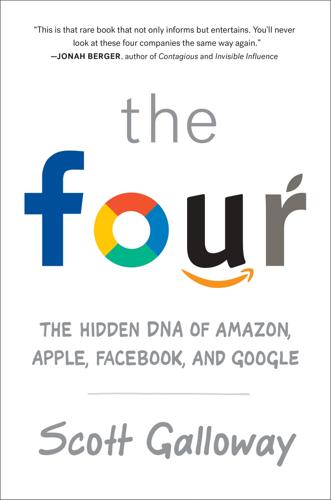
The Four: How Amazon, Apple, Facebook, and Google Divided and Conquered the World
by
Scott Galloway
Published 2 Oct 2017
New York Times. August 15, 2015. https://www.nytimes.com/2015/08/16/technology/inside-amazon-wrestling-big-ideas-in-a-bruising-workplace.html?_r=1. 90. Rao, Leena. “Amazon Acquires Robot-Coordinated Order Fulfillment Company Kiva Systems for $775 Million in Cash.” TechCrunch. March 19, 2012. https://techcrunch.com/2012/03/19/amazon-acquires-online-fulfillment-company-kiva-systems-for-775-million-in-cash/. 91. Kim, Eugene. “Amazon sinks on revenue miss.” Business Insider. February 2, 2017. http://www.businessinsider.com/amazon-earnings-q4-2016-2017-2. 92. “Scott Galloway: Amazon Flexes.” 93.
…
Increasingly, robots will perform many of the functions of human employees, almost as well (and sometimes a lot better), without annoying requests to leave early to pick up their kid from karate. Amazon doesn’t talk publicly about robotics, one of its core competencies, as it realizes it would soon be fodder for late-night hosts and blustery political candidates. In 2012, Amazon quietly acquired Kiva Systems, a sophisticated warehouse robotics firm, for $775 million.90 In Star Wars, Obi-Wan Kenobi feels a dramatic disturbance in the force when the Imperial Army turns the Death Star on Alderaan and destroys the planet. When the acquisition of Kiva closed, every union member should have felt a similar disturbance.
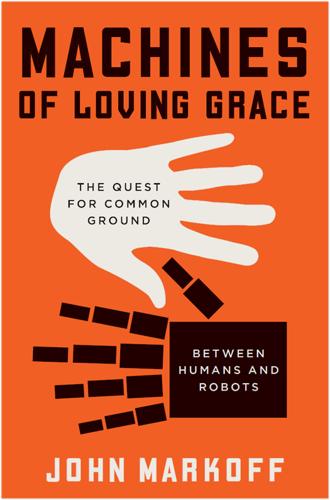
Machines of Loving Grace: The Quest for Common Ground Between Humans and Robots
by
John Markoff
Published 24 Aug 2015
Amazon has increasingly had problems with its nonunionized warehouse workers, who frequently complain about poor working conditions and low wages. When Amazon acquired Kiva Systems, Bezos signaled that he was intent on displacing as much human labor from his warehouses as possible. In modern consumer goods logistics there are two levels of distribution: storing and moving whole cases of goods, and retrieving individual products from those cases. The Kiva system consists of a fleet of mobile robots that are intended to save human workers the time of walking through the warehouse to gather individual products to be shipped together in a composite order.
…
At the time it was only a half decade since ENIAC, the first general purpose digital computer, had been heralded in the popular press as a “giant brain,” and just two years after Norbert Wiener had written his landmark Cybernetics, announcing the opening of the Information Age. Shockley’s initial insight presaged the course that automation would take decades later. For example, Kiva Systems, a warehouse automation system acquired in 2012 by Amazon for $775 million, had the insight that the most difficult functions to automate in the modern warehouse were ones that required human eyes and hands, like identifying and grasping objects. Without perception and dexterity, robotic systems are limited to the most repetitive jobs, and so Kiva took the obvious intermediate step and built mobile robots that carried items to stationary human workers.
…
., 95, 178, 260–265 Intellicorp, 128 intelligence augmentation (IA) versus AI, 159–194 agent-based interfaces and, 187–194 autonomous cars and, 24, 62 ethical issues of, 332–341, 342–344 Gerald (digital light field), 271 Google founding and, 184–187 human-computer interaction, 11–18 human-in-the-loop debates, 158–165, 167–169, 335 IA, defined, xii, 5–7, 31, 115, 141 McCarthy’s and Engelbart’s work compared, 165–167 paradoxical relationship between, xii–xiii Searle and, 179, 180–182 Siri and, 12–13, 31, 190, 193–194, 282 social construction of technology concept, xvii Winograd’s changed views about, 170–178, 171, 182–187 intelligent cruise control, 43 intelligent elevator, 215 International Federation of Robotics (IFR), 87 Internet advent of, 7 ARPAnet as precursor to, 164, 196 Internet of Things, xv, 193 neural network advancement and, 151 photographic film industry and, 83–84 search engine optimization, 86 “Third Industrial Revolution,” 88, 89 Web 2.0, 295 World Wide Web development, 140, 288–290 Interval Research Corporation, 213, 267, 268 Intraspect, 292–295 Intuitive Surgical, 271 iRobot, 203 Jennings, Ken, 225, 226 Jobs, Steve, 13, 35, 112, 131, 194, 214, 241, 281–282, 320–323 Johns Hopkins University, 145 Johnson, Lyndon B., 73 Joshi, Aravind Krishna, 132 Joy, Bill, 336, 343 Kaplan, Jerry, 27, 131–141 Kapor, Mitch, 140, 292 Kay, Alan, 7–8, 115, 120, 198–199, 306–310, 339–341 Kelley, David, 186 Kelly, Kevin, 17 Keynes, John Maynard, 74, 76, 326–327 Kittlaus, Dag, 310–323 Kiva Systems, 97–98, 206 knowledge acquisition problem, 287 knowledge-based systems, 285 knowledge engineering, 113, 128 Knowledge Engineering Laboratory (Stanford), 133–134 Knowledge Navigator, 188, 300, 304, 305–310, 317, 318 Kodak, 83–84 Koller, Daphne, 265 Komisar, Randy, 341 Konolige, Kurt, 268–269 Kuffner, James, 43 Kurzweil, Ray, 84–85, 116, 119, 154, 208, 336 labor force, 65–94 aging of, 93–94, 327 autonomous cars and, 25, 61–62 Brooks on, 204–208 Brynjolfsson and McAfee on, 79–80, 82–83 cybernation revolution, 73–74 deskilling of, 80–82 economic change and, 77–79, 83–84 for elder care, 236–237, 245, 327–332 growth of, xv, 10, 80–81, 326–327 Industrial Perception robots and, 241–244, 269–270 lights-out factories and, 65–68, 66, 90, 104, 206 Moravec on, 122–123 recession of 2008 and, 77–78, 325 Rifkin on automation and, 76–77 Shockley on, 97 singularity hypothesis and, 9–10, 84–94 technological unemployment, 16–18, 76–77, 104, 211 technology and displacement of, 16–18 unions and, 325–326 Wiener on, 8, 68–76 Labor-Science-Education Association, 70, 73 Lamond, Pierre, 129–130 lane-keeping software, 49, 51 language and speech recognition. see also Siri (Apple) chatbot technology, 221–225, 304 early neural network research, 146–148 Eliza, 14, 113, 172–174, 221 Hearsay-II, 282–283 natural language work by Kaplan, 135 semantic autocomplete, 284 semantic understanding, 156 Shakey and, 2 SHRDLU, 132, 170–172, 174–178 Siri’s development and, 12–13, 15, 280 (see also Siri [Apple]) software agents, 193 Lanier, Jaron, 82–83 Leach, Edmund, 90 LeCun, Yann, 148–152, 151, 156–158 Lederberg, Joshua, 113 Legg, Shane, 337–338 Leonard, John, 55 Lerner, Sandy, 134 Levandowski, Anthony, 45 Levy, Frank, 10 Lexus, 57 Licklider, J.
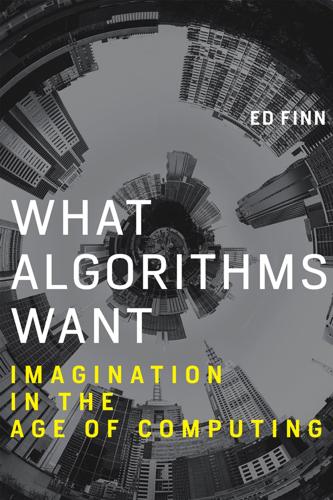
What Algorithms Want: Imagination in the Age of Computing
by
Ed Finn
Published 10 Mar 2017
In terms of their power relationship to global algorithmic systems, the lives of American cloud workers are not that different from the well-known miseries of Apple contractor FoxConn’s massive facilities in China.44 There workers, some children as young as fourteen, have persistently suffered under incredibly long hours, dangerous working conditions, and other serious problems.45 Terry Gou, the company’s chairman, put it bluntly in 2012: “[We have] a workforce of over one million worldwide and as human beings are also animals, to manage one million animals gives me a headache.”46 So far, corporations have been unable to escape what William Gibson once called meatspace, the squishy realm of biological materiality. Biopower fuels many crucial aspects of the interface economy, though advances in robotics and artificial intelligence may one day eliminate the jobs most of these “animals” hold. In addition to spending $775 million to acquire the factory automation firm Kiva Systems, Amazon is already testing out robot arms and other automated systems that could eliminate the human job of picker entirely.47 Like the intense logistical requirements of Amazon’s same-day delivery services, FoxConn’s conditions are underwritten by Apple’s relationship with its consumers. We expect the company to rapidly develop, prototype, and then mass-produce millions of devices over incredibly short spans of time—sometimes mere months—while maintaining near-total secrecy until the new product can be dramatically unveiled.
…
Index Abortion, 64 Abstraction, 10 aesthetics and, 83, 87–112 arbitrage and, 161 Bogost and, 49, 92–95 capitalism and, 165 context and, 24 cryptocurrency and, 160–180 culture machines and, 54 (see also Culture machines) cybernetics and, 28, 30, 34 desire for answer and, 25 discarded information and, 50 effective computability and, 28, 33 ethos of information and, 159 high frequency trading (HFT) and imagination and, 185, 189, 192, 194 interfaces and, 52, 54, 92, 96, 103, 108, 110–111 ladder of, 82–83 language and, 2, 24 Marxism and, 165 meaning and, 36 money and, 153, 159, 161, 165–167, 171–175 Netflix and, 87–112, 205n36 politics of, 45 pragmatist approach and, 19–21 process and, 2, 52, 54 reality and, 205n36 Siri and, 64–65, 82–84 Turing Machine and, 23 (see also Turing Machine) Uber and, 124–126, 129 Wiener and, 28–29, 30 work of algorithms and, 113, 120, 123–136, 139–149 Adams, Douglas, 123 Adams, Henry, 80–81 Adaptive systems, 50, 63, 72, 92, 174, 176, 186, 191 Addiction, 114–115, 118–119, 121–122, 176 AdSense, 158–159 Advent of the Algorithm, The (Berlinski), 9, 24 Advertisements AdSense and, 158–159 algorithmic arbitrage and, 111, 161 Apple and, 65 cultural calculus of waiting and, 34 as cultural latency, 159 emotional appeals of, 148 Facebook and, 113–114 feedback systems and, 145–148 Google and, 66, 74, 156, 158–160 Habermas on, 175 Netflix and, 98, 100, 102, 104, 107–110 Uber and, 125 Aesthetics abstraction and, 83, 87–112 arbitrage and, 109–112, 175 culture machines and, 55 House of Cards and, 92, 98–112 Netflix Quantum Theory and, 91–97 personalization and, 11, 97–103 of production, 12 work of algorithms and, 123, 129, 131, 138–147 Agre, Philip, 178–179 Airbnb, 124, 127 Algebra, 17 Algorithmic reading, 52–56 Algorithmic trading, 12, 20, 99, 155 Algorithms abstraction and, 2 (see also Abstraction) arbitrage and, 12, 51, 97, 110–112, 119, 121, 124, 127, 130–134, 140, 151, 160, 162, 169, 171, 176 Berlinski on, 9, 24, 30, 36, 181 Bitcoin and, 160–180 black boxes and, 7, 15–16, 47–48, 51, 55, 64, 72, 92–93, 96, 136, 138, 146–147, 153, 162, 169–171, 179 blockchains and, 163–168, 171, 177, 179 Bogost and, 16, 33, 49 Church-Turing thesis and, 23–26, 39–41, 73 consciousness and, 2, 4, 8, 22–23, 36–37, 40, 76–79, 154, 176, 178, 182, 184 DARPA and, 11, 57–58, 87 desire and, 21–26, 37, 41, 47, 49, 52, 79–82, 93–96, 121, 159, 189–192 effective computability and, 10, 13, 21–29, 33–37, 40–49, 52–54, 58, 62, 64, 72–76, 81, 93, 192–193 Elliptic Curve Digital Signature Algorithm and, 163 embodiment and, 26–32 encryption, 153, 162–163 enframing and, 118–119 Enlightenment and, 27, 30, 38, 45, 68–71, 73 experimental humanities and, 192–196 Facebook and, 20 (see also Facebook) faith and, 7–9, 12, 16, 78, 80, 152, 162, 166, 168 gamification and, 12, 114–116, 120, 123–127, 133 ghost in the machine and, 55, 95 halting states and, 41–46 high frequency trading (HFT) and, 151–158, 168–169, 177 how to think about, 36–41 ideology and, 7, 9, 18, 20–23, 26, 33, 38, 42, 46–47, 54, 64, 69, 130, 144, 155, 160–162, 167, 169, 194 imagination and, 11, 55–56, 181–196 implementation and, 47–52 intelligent assistants and, 11, 57, 62, 64–65, 77 intimacy and, 4, 11, 35, 54, 65, 74–78, 82–85, 97, 102, 107, 128–130, 172, 176, 185–189 Knuth and, 17–18 language and, 24–28, 33–41, 44, 51, 54–55 machine learning and, 2, 15, 28, 42, 62, 66, 71, 85, 90, 112, 181–184, 191 mathematical logic and, 2 meaning and, 35–36, 38, 44–45, 50, 54–55 metaphor and, 32–36 Netflix Prize and, 87–91 neural networks and, 28, 31, 39, 182–183, 185 one-way functions and, 162–163 pragmatist approach and, 18–25, 42, 58, 62 process and, 41–46 programmable culture and, 169–175 quest for perfect knowledge and, 13, 65, 71, 73, 190 rise of culture machines and, 15–21 (see also Culture machines) Siri and, 59 (see also Siri) traveling salesman problem and Turing Machine and, 9 (see also Turing Machine) as vehicle of computation, 5 wants of, 81–85 Weizenbaum and, 33–40 work of, 113–149 worship of, 192 Al-Khwārizmī, Abū ‘Abdullāh Muhammad ibn Mūsā, 17 Alphabet Corporation, 66, 155 AlphaGo, 182, 191 Amazon algorithmic arbitrage and, 124 artificial intelligence (AI) and, 135–145 Bezos and, 174 Bitcoin and, 169 business model of, 20–21, 93–94 cloud warehouses and, 131–132, 135–145 disruptive technologies and, 124 effective computability and, 42 efficiency algorithms and, 134 interface economy and, 124 Kindle and, 195 Kiva Systems and, 134 Mechanical Turk and, 135–145 personalization and, 97 physical logistics of, 13, 131 pickers and, 132–134 pragmatic approach and, 18 product improvement and, 42 robotics and, 134 simplification ethos and, 97 worker conditions and, 132–134, 139–140 Android, 59 Anonymous, 112, 186 AOL, 75 Apple, 81 augmenting imagination and, 186 black box of, 169 cloud warehouse of, 131 company value of, 158 effective computability and, 42 efficiency algorithms and, 134 Foxconn and, 133–134 global computation infrastructure of, 131 iOS App Store and, 59{tab} iTunes and, 161 massive infrastructure of, 131 ontology and, 62–63, 65 physical logistics of, 131 pragmatist approach and, 18 product improvement and, 42 programmable culture and, 169 search and, 87 Siri and, 57 (see also Siri) software and, 59, 62 SRI International and, 57, 59 Application Program Interfaces (APIs), 7, 113 Apps culture machines and, 15 Facebook and, 9, 113–115, 149 Her and, 83 identity and, 6 interfaces and, 8, 124, 145 iOS App Store and, 59 Lyft and, 128, 145 Netflix and, 91, 94, 102 third-party, 114–115 Uber and, 124, 145 Arab Spring, 111, 186 Arbesman, Samuel, 188–189 Arbitrage algorithmic, 12, 51, 97, 110–112, 119, 121, 124, 127, 130–134, 140, 151, 160, 162, 169, 171, 176 Bitcoin and, 51, 169–171, 175–179 cultural, 12, 94, 121, 134, 152, 159 differing values and, 121–122 Facebook and, 111 Google and, 111 high frequency trading (HFT) and, 151–158, 168–169, 177 interface economy and, 123–131, 139–140, 145, 147 labor and, 97, 112, 123–145 market issues and, 152, 161 mining value and, 176–177 money and, 151–152, 155–163, 169–171, 175–179 Netflix and, 94, 97, 109–112 PageRank and, 159 pricing, 12 real-time, 12 trumping content and, 13 valuing culture and, 155–160 Archimedes, 18 Artificial intelligence (AI) adaptive systems and, 50, 63, 72, 92, 174, 176, 186, 191 Amazon and, 135–145 anthropomorphism and, 83, 181 anticipation and, 73–74 artificial, 135–141 automata and, 135–138 DARPA and, 11, 57–58, 87 Deep Blue and, 135–138 DeepMind and, 28, 66, 181–182 desire and, 79–82 ELIZA and, 34 ghost in the machine and, 55, 95 HAL and, 181 homeostat and, 199n42 human brain and, 29 intellectual history of, 61 intelligent assistants and, 11, 57, 62, 64–65, 77 intimacy and, 75–76 job elimination and, 133 McCulloch-Pitts Neuron and, 28, 39 machine learning and, 2, 15, 28, 42, 62, 66, 71, 85, 90, 112, 181–186 Mechanical Turk and, 12, 135–145 natural language processing (NLP) and, 62–63 neural networks and, 28, 31, 39, 182–183, 185 OS One (Her) and, 77 renegade independent, 191 Samantha (Her) and, 77–85, 154, 181 Siri and, 57, 61 (see also Siri) Turing test and, 43, 79–82, 87, 138, 142, 182 Art of Computer Programming, The (Knuth), 17 Ashby, Ross, 199n42 Asimov, Isaac, 45 Atlantic, The (magazine), 7, 92, 170 Automation, 122, 134, 144, 188 Autopoiesis, 28–30 Babbage, Charles, 8 Banks, Iain, 191 Barnet, Belinda, 43–44 Bayesian analysis, 182 BBC, 170 BellKor’s Pragmatic Chaos (Netflix), 89–90 Berlinski, David, 9, 24, 30, 36, 181, 184 Bezos, Jeff, 174 Big data, 11, 15–16, 62–63, 90, 110 Biology, 2, 4, 26–33, 36–37, 80, 133, 139, 185 Bitcoin, 12–13 arbitrage and, 51, 169–171, 175–179 blockchains and, 163–168, 171–172, 177, 179 computationalist approach and cultural processing and, 178 eliminating vulnerability and, 161–162 Elliptic Curve Digital Signature Algorithm and, 163 encryption and, 162–163 as glass box, 162 intrinsic value and, 165 labor and, 164, 178 legitimacy and, 178 market issues and, 163–180 miners and, 164–168, 171–172, 175–179 Nakamoto and, 161–162, 165–167 one-way functions and, 162–163 programmable culture and, 169–175 transaction fees and, 164–165 transparency and, 160–164, 168, 171, 177–178 trust and, 166–168 Blockbuster, 99 Blockchains, 163–168, 171–172, 177, 179 Blogs early web curation and, 156 Facebook algorithms and, 178 Gawker Media and, 170–175 journalistic principles and, 173, 175 mining value and, 175, 178 Netflix and, 91–92 turker job conditions and, 139 Uber and, 130 Bloom, Harold, 175 Bogost, Ian abstraction and, 92–95 algorithms and, 16, 33, 49 cathedral of computation and, 6–8, 27, 33, 49, 51 computation and, 6–10, 16 Cow Clicker and, 12, 116–123 Enlightenment and, 8 gamification and, 12, 114–116, 120, 123–127, 133 Netflix and, 92–95 Boolean conjunctions, 51 Bosker, Bianca, 58 Bostrom, Nick, 45 Bowker, Geoffrey, 28, 110 Boxley Abbey, 137 Brain Pickings (Popova), 175 Brain plasticity, 38, 191 Brand, Stewart, 3, 29 Brazil (film), 142 Breaking Bad (TV series), 101 Brin, Sergei, 57, 155–156 Buffett, Warren, 174 Burr, Raymond, 95 Bush, Vannevar, 18, 186–189, 195 Business models Amazon and, 20–21, 93–94, 96 cryptocurrency and, 160–180 Facebook and, 20 FarmVille and, 115 Google and, 20–21, 71–72, 93–94, 96, 155, 159 Netflix and, 87–88 Uber and, 54, 93–94, 96 Business of Enlightenment, The (Darnton) 68, 68 Calculus, 24, 26, 30, 34, 44–45, 98, 148, 186 CALO, 57–58, 63, 65, 67, 79, 81 Campbell, Joseph, 94 Campbell, Murray, 138 Capitalism, 12, 105 cryptocurrency and, 160, 165–168, 170–175 faking it and, 146–147 Gawker Media and, 170–175 identity and, 146–147 interface economy and, 127, 133 labor and, 165 public sphere and, 172–173 venture, 9, 124, 174 Captology, 113 Carr, Nicholas, 38 Carruth, Allison, 131 Castronova, Edward, 121 Cathedral and the Bazaar, The (Raymond), 6 Cathedral of computation, 6–10, 27, 33, 49, 51 Chess, 135–138, 144–145 Chun, Wendy Hui Kyong, 3, 16, 33, 35–36, 42, 104 Church, Alonzo, 23– 24, 42 Church-Turing thesis, 23–26, 39–41 Cinematch (Netflix), 88–90, 95 Citizens United case, 174 Clark, Andy, 37, 39–40 Cloud warehouses Amazon and, 135–145 interface economy and, 131–145 Mechanical Turk and, 135–145 worker conditions and, 132–134, 139–140 CNN, 170 Code.
…
., 59 Jenkins, Henry, 102 Johansson, Scarlett, 78 Jonze, Spike, 11, 77–79, 84–85 Journalists, 3 automatization and, 38 Bitcoin and, 12 cultural values and, 171–172 Facebook and, 116, 170, 172 gamification and, 116 Gawker Media and, 170–175, 210n35 Google and, 75 Siri and, 58 Thiel and, 170–171 transactional algorithms and, 151 “Trending Topics” widget and, 180 Uber and, 129 Kael, Pauline, 175 Kasparov, Gary, 135–138 Kindle, 195 Kirschenbaum, Matthew, 47–48 Kiva Systems, 134 Kline, Ronald, 31 KnowledgeGraph, 71–73, 75, 94 Knuth, Donald, 17–18 Kurzweil, Ray, 184 Labor, 7, 18, 46, 122 Adam Smith on, 146 affective, 145–148 arbitrage and, 97, 112, 123–145 Bitcoin and, 164, 178 capitalism and, 165 cloud warehouses and, 131–445 culture machines and, 93, 119 deep structures of, 123 faking sincerity and, 146–147 feedback systems and, 145–148 HITs and, 135, 139, 141, 145 identity and, 146–147 intellectual, 12 interface economy and, 123–145 ludic, 120 mandatory smiles and, 146 Marx on, 165 Mechanical Turk and, 135–145 pickers and, 132–134 Taylorism and, 93 worker conditions and, 8, 132–134, 139–140 Lambda calculus, 24 Langlois, Ganaele, 111 Language abstraction and, 2, 24 advertisements and, 178 algorithms and, 24–28, 33–41, 44, 51, 54–55 cognition and, 39 color words and, 4 culture machines and, 39–40 epistemological layers and, 4, 11, 148, 155, 157, 175, 177, 188 ethos of information and, 159 grammar and, 2, 16, 25, 38–41, 62–64, 110–112, 138, 178–179 imagination and, 38, 185, 196 incompleteness and, 24, 40 as intellectual technology, 4 intelligent assistants and, 11, 57, 62, 64–65, 77 machine learning and, 2, 112 many registers of, 1–2 mathematics and, 2, 55 meaning and, 1 metaphor and, 183–184 (see also Metaphor) natural language processing (NLP) and, 62–63 of new media, 112, 122 plasticity and, 38, 191 power of, 1–2, 4–5 procedural, 3–4, 6 reality and, 1 rhetoric and, 6, 16, 22, 30, 45, 89, 96, 101, 104, 110, 112, 123, 127, 136 Siri and, 57–65, 71–84 spoken, 2, 58, 60, 62–63, 67, 84, 185 symbolic, 2, 26, 38–41 tricks and, 3–4 Turing Machine and, 33, 41 universal, 5 vocabulary and, 2, 4, 25, 138, 160, 190 Wiener and, 28 Language of New Media, The (Manovich), 122 Lawsuits, 90, 171, 175 Leibniz, Gottfried Wilhelm, 25–27, 72 Lem, Stanislaw, 184 Levy, Steven, 3 Lewis, Michael, 12, 151, 153, 168 Leyden, Peter, 160 Library Computer Access/Retrieval System (LCARS), 67–68 Life magazine, 31 Literacy, 5, 39, 52, 75, 109, 129, 159, 177 LiveJournal, 209n20 Loebner Prize, 87, 203n50 Logic general substitutability and, 33 Gödel and, 24, 40 halting states and, 41–46 information theory and, 10, 27 invisibly exclusionary, 110 pragmatist approach and, 18–25, 42, 58, 62 process and, 41–46 proofs and, 15, 24–25, 41, 44 rationality and, 38, 40 symbolic, 2, 21, 24, 39, 41, 44, 54–55 “Long Boom, The” (Schwartz and Leyden), 160–161 Lyft, 123, 127–130, 145, 148 Machine learning artificial intelligence (AI) and, 2, 15, 28, 42, 62, 66, 71, 85, 90, 112, 181–186, 191 big data and, 90 computationalist approach and, 183 DeepMind and, 28, 66, 181–182 Google and, 66, 181–186, 191 imagination and, 181–186 language and, 2, 112 Netflix and, 182–183 neural networks and, 28, 31, 39, 182–183, 185 Siri and, 62, 182 (see also Siri) Turing Machine and, 182 (see also Turing Machine) Macy Conferences, 30, 199n42 Madrigal, Alexis, 92, 94–95 Magic agency and, 78 artificial intelligence and, 135–136 cached content and, 159 code as, 1–5, 8, 10, 16, 49–50, 196 computation as, 4, 8, 10, 46, 52, 59–60, 94, 96, 121, 161 constructed reality and, 39 curses and, 1 data cloud and, 131, 134 fantasy and, 121, 124, 126 government currency and, 172 hacker powers as, 3, 51 incantations and, 1, 3–5, 51, 196 invisible sides of system and, 178 machines and, 137–138, 188 Memex and, 188 metaphors for, 32–36 myths and, 1–2, 10, 16 ontology and, 62–65 ratings and, 130 rational language for, 25 shamans and, 1, 3, 5 Siri and, 59–60, 62–65 sourcery and, 3, 10, 17, 21, 33–34 symbolic, 105 Manjoo, Farhad, 75 Manovich, Lev, 112, 122 Market impacts advertisements and, 34 (see also Advertisements) arbitrage and, 152, 161 attention and, 119 automobiles and, 127 Bitcoin and, 163–180 crashes and, 151 cryptocurrency and, 160–180 digital identity and, 159 digital trading and, 152 eliminating vulnerability and, 161–162 encryption and, 153, 162–163 fungible space and, 54 gaming and, 119, 121 gaming the system and, 153 Google and, 66 high frequency trading (HFT) and, 151–158, 168–169, 177 hyperinflation and, 166 international trade and, 12 invisible hand and, 33 labor and, 8 (see also Labor) Mechanical Turk and, 135–145 NASDAQ and, 152 Netflix and, 87, 97, 107–110, 114–115 NYSE and, 152 parallel computing and, 139 pension funds and, 151, 168 Siri and, 59, 75–77 stock market and, 12, 15, 154 transaction fees and, 164–165 transparency and, 160–164, 168, 171, 177–178 virtuous action and, 146 Wall Street and, 16, 66, 109, 151, 153, 171, 185 Marx, Karl, 165 Master Algorithm, The (Domingos), 183 Materiality, 26, 47–49, 53, 133 Mathematics abstract symbolism, 2, 55 algebra, 17 Babylonian, 17 Berlinski and, 9, 181 calculus, 24, 26, 30, 34, 44–45, 98, 148, 186 complexity, 28 computationalist approach and, 23, 183, 185 Conway and, 29–30 culture machines and, 49–50 Descartes and, 26, 69, 75 effective computability and, 40 “extended mind” hypothesis and, 40 Fibonacci sequence, 17 Golden Ratio, 2 Hilbert and, 23 Hindu-Arabic numerals, 17 language and, 2, 55 Leibniz and, 25–26, 72 logic, 2, 10, 24 machine duplication and, 22 materiality and, 26 Moschovakis and, 17 Nakamoto and, 161–162 Netflix Prize and, 87–91 ontology and, 84 perceived reality and, 20 Post and, 9 Pragmatic Chaos and, 90 proofs, 15, 24–25, 41, 44 pure, 47 reality and, 34 Rendell and, 30 Shannon and, 27 Strogatz and, 44, 183 theory of computation and, 18 Turing and, 6–9, 23–30, 33, 39–43, 54, 73, 79–82, 87, 138, 142, 182, 186 Mathesis universalis, 25–26, 28, 72 Matrix, The (film), 3, 36, 109 Maturana, Humberto, 28–29 McClelland, Mac, 132–133 McCloud, Scott, 110, 154–155 McCulloch-Pitts Neuron, 28, 39 Meaning acceleration of epistemological change and, 188–189 algorithms and, 35–36, 38, 44–45, 50, 54–55 belonging and, 122 black boxes and, 7, 15–16, 47–48, 51, 55, 64, 72, 92–93, 96, 136, 138, 146–147, 153, 162, 169–171, 179 Chun on, 35 Cow Clicker and, 116, 118–119 cultural exchange and, 12, 111–112 data mining and, 175 decision-making and, 20, 28, 34, 37, 90 digital culture and, 3, 7, 18, 22, 43, 49, 66, 87, 156, 160, 191, 193–194 endless hunt for, 184 imagination and, 184 (see also Imagination) intimacy and, 75 language and, 1 Mechanical Turk and, 136–140 metaphor and, 183–184 (see also Metaphor) obfuscations and, 7, 55, 64 organization of, 8 PageRank and, 169 Siri and, 65 structures of, 89, 96 value and, 155 vs. information, 9, 9–10 Mechanical Turk Google and, 12, 135–145 history of original, 136–138 meaning and, 136–140 as metaphor, 143 von Kempelen and, 135 worker conditions and, 139–140 Mechanisms (Kirschenbaum), 47–48 Memex, 186–189, 195 Memory computation and, 18, 21, 37, 43–44, 51, 56, 58, 69, 75, 159–160, 176, 185–186, 191–193 culture and, 43 human, 37, 43–44 process and, 21 technical, 51, 192 understanding and, 37 Metaphor, 121 assumption of code and, 43 cathedral of computation and, 6–8, 27, 33, 49, 51 Church-Turing thesis and, 41–42 cloud, 131 for communication, 32–36 computational, 22 cultural, 50, 54 effective computability and, 34 human cognition and, 39 imagination and, 183–184, 189 interfaces and, 25, 60 Mechanical Turk and, 143 Netflix as, 96, 104 obelisk and, 155 reality and, 10, 50 Samantha (Her) and, 84–85 Microsoft, 97, 144, 152 Miners (Bitcoin), 165, 167–168, 171–172, 175–179 Money abstraction and, 153, 159, 161, 165–167, 171–175 algorithmic trading and, 12, 20, 99, 155 arbitrage and, 151–152, 155–163, 169–171, 175–179 Bitcoin and, 160–180 as collective symbol, 165–166 ontology and, 156–159, 178–179 Moore’s Law, 43 Morowitz, Harold, 23 Moschovakis, Yiannis, 17 Moth machine (Wiener), 31–32, 34 Musk, Elon, 191 My Mother Was a Computer (Hayles), 21, 93 Myths ancient, 28 Campbell on, 94 code and, 7–8, 16, 44 cultural space and, 5 culture machine and, 55 fantasy and, 78 government currency and, 172 human-computer interaction and, 36, 51 magic and, 1–2, 10, 16 material reality and, 47 ontology and, 26 origin, 68 personalization and, 106–107 power of language and, 6, 44, 196 Sumerian, 3, 5, 16 unitary simplicity and, 49 Nakamoto, Satoshi, 161–162, 165–167 Nam-shubs, 1, 3–6, 37–40, 56, 135 Nardi, Bonnie, 121 NASDAQ, 152 Natural-Born Cyborgs (Clark), 37 Natural language processing (NLP), 62–63 Natural selection, 44 Negri, Antonio, 145 Netflix, 161 abstraction of aesthetics and, 87–112, 205n36 abundant choices and, 176 arbitrage and, 94, 97, 109–112, 124 art of personalization and, 97–103 Bogost on, 92–95 business model of, 87–88 Cinematch and, 88–90, 95 commissioned shows of, 97–98 computationalist approach and, 90, 104 consumer desire and, 93–96 disruptive technologies and, 124 effective computability and, 93 Facebook and, 91, 110 fan making and, 100–101 FCC and, 90 genre categories of, 94 ghost in the machine and, 55, 95, 183 gutter problem and, 110 Hastings and, 97–98 House of Cards and, 11, 54, 92, 98–112, 192 influence of, 87 interface economy and, 124 Leibniz and, 26 machine learning and, 182–183 market issues and, 87, 97, 107–110, 114–115 metaphor and, 96, 104 ontology and, 92, 94, 96 original content by, 97–98 parsing data and, 182 personalization and, 97–103, 109 Pragmatic Chaos and, 89–90 predictor ensemble and, 89–90 quantum mechanics and, 91–94, 96, 99, 112 recommendation algorithm competition of, 87–91 rejection of big-data approach and, 11 serendipitous glitches and, 55 Spoiler Foiler and, 101–102, 108 streaming and, 90 system behavior and, 16 taggers and, 54, 88, 92–93, 96, 99 techno-utopian rhetoric and, 16 Neural networks, 28, 31, 39, 182–183, 185 New Digital Age, The (Schmidt), 66 Newitz, Annalee, 60 Newton, Isaac, 17, 166 New York Stock Exchange (NYSE), 152 New York Times, 170 Nielsen ratings, 102 Note Book (Nunokawa), 53 @NSA_prismbot, 194–195 Nunokawa, Jeff, 53 Nyby, Christian I., II, 95 Of the Subcontract, Or Principles of Poetic Right (Thurston), 12, 140–145 OK Google, 51 One-way functions, 162–163 Ontology Apple and, 62–63, 65 computationalist approach and, 8 consciousness and, 178 culture machines and, 62–65, 68–69 Google and, 159–160 ideology and, 68 imagination and, 69, 73–74 of information, 8, 63, 69–71 mathematics and, 84 meaning and, 8, 21–22, 26, 39 money and, 156–159, 178–179 Netflix and, 92, 94, 96 Siri and, 62–65, 71–73, 82, 84 work of algorithms and, 122 Open source software, 6, 162, 167 ORION, 19, 47 Orwellian surveillance, 132–134 Page, Larry, 155–156 PageRank, 20, 111, 155–159, 169, 177–178, 189 Pariser, Eli, 46, 50 Parisian Great Exhibition, 80 Pasquale, Frank, 21 Pension funds, 151, 168 Perfect knowledge, 13, 65, 71, 73, 190 Perry Mason (TV series), 95–96 Phaedrus (Plato), 37 Phoenix, Joaquin, 77 Pickers, 132–134 Pitts, Walter, 28 Planned Parenthood, 64 Plato, 4, 31, 37–38, 40, 82 Popova, Maria, 175–176 Post, Emil, 9 Pragmatic Chaos (Netflix), 89–90 Pragmatist approach algorithmic, 2, 18–25, 42 effective computability and, 25–26 experimental humanities and, 193 growing power of computation and, 27 justice and, 146 models of reason and, 47 reframing humanities and, 193 Siri and, 58, 62 Privacy, 49, 62, 75, 90, 160–161, 163, 173 Private keys, 163 Programmability, 16, 178 Programmable culture, 169–175 Programmed Visions (Chun), 33 Project Loon, 66 Proofs, 15, 24–25, 41, 44 Protocol (Galloway), 50 Public keys, 163 Purdy, Jedediah, 146–147 Quantum mechanics Netflix and, 91–94, 96, 99, 112 Wiener and, 26–27 Raley, Rita, 194–195 Ramsey, Stephen, 52 Raymond, Eric, 6 Reading Machines (Ramsey), 52 Religion, 1, 7, 9, 49, 69, 71, 80, 136 Rendell, Paul, 30 Rice, Stephen P., 144–145 Rid, Thomas, 199n42 Riskin, Jessica, 136–137 Robotics, 31, 34, 43–45, 132–134, 188 Rood of Grace, 137 Rotten Tomatoes, 96 RSE encryption, 163 Samantha (Her), 77–85, 154, 181 Sample, Mark, 194–195 Sandvig, Christian, 107, 131 Sarandos, Ted, 98, 100, 104 Schmidt, Eric, 66, 73, 127 Schwartz, Peter, 160–161 Scorsese, Martin, 59 Searle, John, 4 Shannon, Claude, 27 Sharing economy, 54, 123, 127–129, 145, 148 Shoup, Donald, 127 Silicon Valley, 3, 9, 30–31, 49, 54, 87, 100, 124, 182 SimCity (game), 194 Simondon, Gilbert, 40, 42–44, 53, 59, 84, 106, 118 Singhal, Amit, 72, 76 Siri abortion scandal and, 64 abstraction and, 64–65, 82–84 anticipation and, 73–74 as beta release, 57 CALO and, 57–58, 63, 65, 67, 79, 81 cognition and, 57–65, 71–84 computationalist approach and, 65, 77 consciousness and, 57–65, 71–84 conversation and, 57–65, 71–84 DARPA and, 11, 57–58 Easter eggs in, 60, 148 effective computability and, 58, 62, 64, 72–76, 81 emotional work and, 148 Enlightenment and, 71–76, 79–80, 82 gender and, 60–61, 80 interfaces and, 59–60, 63, 75, 77 intimacy and, 11, 75–81 language and, 57–65, 71–84 launch of, 57 machine learning and, 62–65, 182 market issues and, 59, 75–77 meaning and, 65 ontology and, 62–65, 71–73, 82, 84 parsing data and, 182 performing knowledge and, 59–61 quest for knowledge and, 71–75, 82, 84 reading, 58–59 reduced abilities of, 59 speed of, 131 Skinner boxes, 61, 115–116, 119–120, 122 Smith, Adam, 12, 146–147 Smith, Kevin, 88 Sneakers (film), 3 Snow Crash (Stephenson), 1, 3–5, 9, 17, 36, 38, 50 Social behavior, 22, 146 addiction and, 114–119, 121–122 discrimination and, 21, 130 exploitationware and, 115–116 Social gaming, 114, 118, 120–122 Social media, 6 Arab Spring and, 111, 186 changing nature of, 171 digital culture and, 3, 7, 18, 22, 43, 49, 66, 87, 156, 160, 191, 193–194 Enlightenment and, 173 identity formation and, 191 in-person exchanges and, 195 intellectual connection and, 186 newsfeeds and, 116, 177–178 peer review and, 194 raising awareness and, 174 Spoiler Foiler (Netflix) and, 101–102, 108 transaction streams and, 177 Uber and, 148 Software agency and, 6 Apple and, 59, 62 apps and, 6, 8, 9, 15, 59, 83, 91, 94, 102, 113–114, 124, 128, 145, 149 blockchains and, 163–168, 171, 177, 179 cathedrals of computation and, 6–8, 27, 33, 49, 51 Chun on, 33, 42, 104 Church-Turing thesis and, 25 consciousness and, 77 dehumanizing nature of, 116 depersonification of, 6 digital materiality and, 53 experience and, 34 as foundation of computational expression, 47 imagination and, 186, 194 in-house affect and, 59 interfaces and, 124 (see also Interfaces) logic of general substitutability and, 33 Manovich and, 112 material layers and, 48 as metaphor for metaphors, 35 Metaverse, 50 networks vs. individuals and, 118 open source, 6, 162, 167 Pasquale on, 21 reality and, 10 self-modification and, 1, 38 Weizenbaum and, 33–40 Solaris (Lem), 184 Sourcery, 3, 10, 17, 21, 33–34 Space of computation, 2–5, 9, 21, 42, 45, 76, 154, 185 Spacey, Kevin, 98–99, 106–107 Spoiler Foiler (Netflix), 101–102, 108 SRI International, 57, 59, 63, 169 Srinivasan, Balaji, 169 Star Fleet Federation, 67 Star Trek computer anticipation and, 73–74 conversation and, 67 Google and, 11, 65–82, 159, 186 interfaces and, 67–68 LCARS and, 67–68 Memex and, 186–189, 195 public expectations and, 67 Star Trek: The Next Generation (TV series), 67 Stephenson, Neal, 1, 3–5, 9, 17, 36, 38, 50, 51 Stiegler, Bernard, 43–44, 53, 106 Streaming content, 49, 54, 87, 90–92, 97, 99, 101–102, 104, 205n39 Strogatz, Steven, 44, 183 Sumerian myths, 3, 5, 16 SuperPACs, 174 Symbolic logic, 2, 21, 24, 39, 41, 44, 54–55 Symposium (Plato), 82 Tacit negotiation, 20 Taggers, 54, 88, 92–93, 96, 99 Tanz, Jason, 116 TaskRabbit, 124 Taylorism, 93 Teller, Astro, 66 Terminator (film series), 191 Terrorism, 163, 178 Theory of Communicative Action, The (Habermas), 109 Theory of Moral Sentiments (Smith), 12, 146–147 Thiel, Peter, 170–171, 174 Third parties, 59, 114, 125, 132–133, 147, 162, 170–171 Thurston, Nick, 12, 140–145 Tindr, 128 Transaction fees, 164–165 Transcendent Man (Kurzweil), 184 Transparency bazaar model and, 6 cryptocurrency and, 160–164, 168, 171, 177–178 feedback and, 146 freedom and, 9 interfaces and, 189 market issues and, 160–164, 168, 171, 177–178 politics of algorithms and, 18, 20 proprietary platforms and, 9 Traveling salesman problem, 19 “Trending Topic” widget, 180 Turing, Alan, 8, 23, 42, 79–80, 182 Turing Machine, 182 Berlinski and, 9, 24 computability boundary and, 23–24 concept of, 23 effective computability and, 42 finite-time processes and, 42 game of life and, 29–31 language and, 33, 41 McCulloch-Pitts Neuron and, 28 as though experiment, 23–24 as uniting platform, 25 Turing’s Cathedral (Dyson), 6 Turing test, 43, 79–82, 87, 138, 142 Turner, Fred, 3, 46 Twain, Mark, 151 Twitter, 53, 101–102, 173, 177, 179, 194–195, 210n43 Uber, 9, 12, 97, 138 abstraction levels of, 129 African Americans and, 130 business model of, 54, 93–94, 96 feedback system of, 145–148 interface economy and, 123–133, 145, 147 massive infrastructure of, 131 threats to, 129 Ubiquitous computation algorithms and, 3–4, 15, 33, 43, 54, 119, 124–125, 127, 178, 189–190 Bitcoin and, 178 colonization of margins and, 119 gamification and, 124 imagination and, 189–190 interfaces and, 189 Uber and, 125, 127 Unit Operations (Bogost), 118 U.S.S.

Exponential: How Accelerating Technology Is Leaving Us Behind and What to Do About It
by
Azeem Azhar
Published 6 Sep 2021
By 2018, Amazon was able to launch physical shops that were free of any human staff. The Amazon Go stores let shoppers wander in, pick up what they want and leave, with their purchases billed automatically to their Amazon account.31 Amazon has also spent the last decade becoming a leader in robotics. It acquired the industry-leading robotics company Kiva Systems in 2012 for a cool $775 million. As of 2019, the firm had 200,000 robots working tirelessly around the globe, sorting billions of packages a year.32 Amazon is possibly one of most robotised large companies in the world – with an astonishing one physical robot for every four workers. If you are one of the 200 million or so people who enjoy Amazon Prime’s same-day delivery, you do so courtesy of some of those bots.
…
Abu Dhabi, UAE, 250 Acemoglu, Daron, 139 Acorn Computers, 16, 21 Ada Lovelace Institute, 8 additive manufacturing, 43–4, 46, 48, 88, 166, 169, 175–9 Adidas, 176 advertising, 94, 112–13, 116, 117, 227–8 AdWords, 227 aeroponics, 171 Afghanistan, 38, 205 Africa, 177–8, 182–3 Aftenposten, 216 Age of Spiritual Machines, The (Kurzweil), 77 agglomeration, 181 Air Jordan sneakers, 102 Airbnb, 102, 188 aircraft, 49–50 Alexandria, Egypt, 180 AlexNet, 33 Algeciras, HMM 61 Alibaba, 48, 102, 108, 111, 122 Alipay, 111 Allen, Robert, 80 Alphabet, 65, 113–14, 131, 163 aluminium, 170 Amazon, 65, 67–8, 94, 104, 108, 112, 122, 135–6 Alexa, 25, 117 automation, 135–6, 137, 139, 154 collective bargaining and, 163 Covid-19 pandemic (2020–21), 135–6 drone sales, 206 Ecobee and, 117 Go stores, 136 Kiva Systems acquisition (2012), 136 management, 154 Mechanical Turk, 142–3, 144, 145 monopoly, 115, 117, 122 Prime, 136, 154 R&D, 67–8, 113 Ami Pro, 99 Amiga, 16 Anarkali, Lahore, 102 anchoring bias, 74 Android, 85, 94, 117, 120 Angola, 186 Ant Brain, 111 Ant Financial, 111–12 antitrust laws, 114, 119–20 Apache HTTP Server, 242 Appelbaum, Binyamin, 63 Apple, 47, 62, 65, 85, 94, 104, 108, 112, 122 App Store, 105, 112, 115 chip production, 113 Covid-19 pandemic (2019–21), 222–3 data collection, 228 iOS, 85 iPhone, 47, 62, 85, 94, 105 media subscription, 112 watches, 112 APT33 hacker group, 198 Aral, Sinan, 238 Aramco, 108, 198 Armenia, 206–7 Arthur, William Brian, 110, 123 artificial intelligence, 4, 8, 31–4, 54, 88, 113, 249 academic brain drain, 118 automation, 125–42 data and, 31–2, 142 data network effect, 106–7 drone technology and, 208, 214 education and, 88 employment and, 126–7 healthcare and, 88, 103 job interviews and, 153 regulation of, 187, 188 arXiv, 59 Asana, 151 Asian Development Bank, 193 Aslam, Yaseen, 148 Assembly Bill 5 (California, 2019), 148 asymmetric conflict, 206 AT&T, 76, 100 Atari, 16 attack surfaces, 192–3, 196, 209, 210 Aurora, 141 Australia, 102, 197 automation, 125–42 autonomous weapons, 208, 214 Azerbaijan, 173, 206–7 Ballmer, Steve, 85 Bangladesh, 175 banking, 122, 237 Barcelona, Catalonia, 188 Barlow, John Perry, 184 Barrons, Richard, 195, 211 Bartlett, Albert, 73 batteries, 40, 51, 53–4, 250, 251 Battle of the Overpass (1937), 162 Bayraktar TB2 drone, 206 Bee Gees, 72 Bekar, Clifford, 45 Bell Labs, 18 Bell Telephone Company, 100 Benioff, Marc, 108–9 Bentham, Jeremy, 152 Berlin Wall, fall of (1989), 4 Bermuda, 119 Berners-Lee, Timothy, 55, 100, 160, 239 Bessen, James, 46 Bezos, Jeffrey, 135–6 BGI, 41 Biden, Joseph, 225 Bing, 107 biological weapons, 207, 213 biology, 10, 39, 40–42, 44, 46 genome sequencing, 40–41, 90, 229, 234, 245–7, 250, 252 synthetic biology, 42, 46, 69, 174, 245, 250 biopolymers, 42 bits, 18 Black Death (1346–53), 12 BlackBerry, 120 Blair, Tony, 81 Bletchley Park, Buckinghamshire, 22 blitzscaling, 110 Blockbuster, 138 BMW, 177 Boeing, 51, 236 Bol.com, 103 Bollywood, 181 Boole, George, 18 Bork, Robert, 114–15, 117, 119 Bosworth, Andrew, 233 Boyer, Pascal, 75 Boyle, James, 234 BP, 92, 158 brain, 77 Braudel, Fernand, 75 Brave, 242 Brazil, 202 Bremmer, Ian, 187 Bretton Woods Conference (1944), 87 Brexit (2016–20), 6, 168 British Broadcasting Corporation (BBC), 87, 129, 191 Brookings Institution, 130 BT, 123 Bulgaria, 145 Bundy, Willard Legrand, 149 Busan, South Korea, 56 business, 82, 92–124 diminishing returns to scale, 93, 108 economic dynamism and, 117 economies of scale, 50, 92 growth, 110–13 increasing returns to scale, 108–10 intangible economy, 104–7, 118, 156, 175, 180 linear value chains, 101 market share, 93–6, 111 monopolies, 10, 71, 94, 95, 114–24 network effect, 96–101 platform model, 101–3, 219 re-localisation, 11, 166–79, 187, 252, 255 state-sized companies, 11, 67 superstar companies, 10, 94–6 supply chains, 61–2, 166–7, 169, 175, 187, 252, 255 taxation of, 96, 118–19 Butler, Nick, 179 ByteDance, 28 C40 initiative, 189 Cambridge University, 127, 188 cancer, 57–8, 127 Capitol building storming (2021), 225 car industry, 93 carbon emissions, 35, 90, 251 Carlaw, Kenneth, 45 Carnegie, Andrew, 112 Carnegie Mellon University, 131 Catholic Church, 83, 88 censorship, 216–17, 224–6, 236 Central Intelligence Agency (CIA), 194 Cerebras, 34 cervical smears, 57–8 chemical weapons, 207, 213 Chen, Brian, 228 chewing gum, 78 Chicago Pile-1 reactor, 64 Chile, 170 China automation in, 127, 137 brainwave reading in, 152 Covid-19 pandemic (2019–21), 245 drone technology in, 207 Great Firewall, 186, 201 Greater Bay Area, 182 horizontal expansion in, 111–12 manufacturing in, 176 misinformation campaigns, 203 raw materials, demand for, 178 Singles’ Day, 48 social credit systems, 230 superstar companies in, 95 US, relations with, 166 chips, 19–22, 28–9, 48–9, 52, 113, 251 Christchurch massacre (2019), 236 Christensen, Clayton, 24 CIPD, 153 cities, 11, 75, 169, 179–84, 188, 255 Clegg, Nick, 225–6, 235 climate change, 90, 169, 187, 189, 251, 252 cloud computing, 85, 112 Cloudflare, 200 cluster bombs, 213 CNN, 185, 190 coal, 40, 65, 172 Coase, Ronald, 92 Coca-Cola, 93 code is law, 220–22, 235 cold fusion, 113–14 Cold War (1947–91), 194, 212, 213 collective bargaining, 147, 149, 154, 156, 162–5 Colombia, 145 colonialism, 167 Columbus, Christopher, 4 combination, 53–7 Comical Ali, 201 commons, 234–5, 241–3, 256 companies, see business comparative advantage, 170 complex systems, 2 compounding, 22–3, 28 CompuServe, 100 computing, 4, 10, 15–36, 44, 46, 249 artificial intelligence, 4, 8, 31–4, 54, 88 cloud computing, 85, 112 internet, 47–8, 55, 65, 84 Law of Accelerating Returns, 30–31, 33, 35 machining, 43 Moore’s Law, see Moore’s Law quantum computing, 35 transistors, 18–22, 28–9, 48–9, 52 conflict, 87, 189, 190–215 attack surfaces, 192–3, 196, 209, 210 cyberattacks, 11, 114, 140, 181, 187, 190–200, 209–14, 256 de-escalation, 212–13 drone technology, 11, 192, 204–9, 214, 256 institutional change and, 87 misinformation, 11, 191, 192, 200–204, 209, 212, 217, 225 new wars, 194 non-proliferation, 213–14 re-localisation and, 189, 193, 194, 209 consent of the networked, 223 Costco, 67 Coursera, 58 Covid-19 pandemic (2019–21), 12–13, 59, 78–9, 131, 245–9 automation and, 127, 135, 136 cities and, 183 contact-tracing apps, 222–3 gig economy and, 146 lockdowns, 12, 152, 176, 183, 246 manufacturing and, 176 misinformation and, 202–4, 247–8 preprint servers and, 60 recession (2020–21), 178 remote working and, 146, 151, 153 supply chains and, 169, 246 vaccines, 12, 202, 211, 245–7 workplace cultures and, 151, 152 cranks, 54 credit ratings, 162, 229 critical thinking skills, 212 Croatia, 145 Crocker, David, 55 crowdsourcing, 143–4 Cuba, 203 Cuban missile crisis (1962), 99, 212 cultural lag, 85 cyberattacks, 11, 114, 140, 181, 187, 190–200, 209–14, 256 CyberPeace Institute, 214 Daniel, Simon, 173–4 Dar es Salaam, Tanzania, 183 Darktrace, 197 data, 8, 11, 71, 217–19, 226–31, 235, 237–42, 256 AI and, 8, 32, 33, 58, 106 compensation for, 239 commons, 242 cyberattacks and, 196 doppelgängers, 219, 226, 228, 239 interoperability and, 237–9 network effects, 106–7, 111 protection laws, 186, 226 rights, 240 Daugherty, Paul, 141 DDT (dichlorodiphenyltrichloroe thane), 253 death benefits, 151 Dediu, Horace, 24, 30 deep learning, 32–4, 54, 58, 127 deforestation, 251 dehumanisation, 71, 154, 158 deindustrialisation, 168 Deliveroo, 154, 163 Delphi, 100 dematerialised techniques, 166, 175 Denmark, 58, 160, 199–200, 257 Deutsche Bank, 130 Diamandis, Peter, 5 Dickens, Charles, 80 digital cameras, 83–4 Digital Geneva Convention, 211 Digital Markets Act (EU, 2020), 122 digital minilateralism, 188 Digital Nations group, 188 Digital Services Act (EU, 2020), 123 diminishing returns, 93, 108 disinformation, see misinformation DoorDash, 147, 148, 248 dot-com bubble (1995–2000), 8, 108, 150 Double Irish tax loophole, 119 DoubleClick, 117 drone technology, 11, 192, 204–9, 214, 256 Dubai, UAE, 43 Duke University, 234 dystopia, 208, 230, 253 Eagan, Nicole, 197 eBay, 98, 121 Ecobee, 120 economies of scale, 50, 92 Economist, The, 8, 65, 119, 183, 239 economists, 63 Edelman, 3 education artificial intelligence and, 88 media literacy, 211–12 Egypt, 145, 186 Elance, 144 electric cars, 51, 69, 75, 173–4, 177, 250 electricity, 26, 45, 46, 54, 157, 249–50 see also energy Electronic Frontier Foundation, 184 email, 6, 55 embodied institutions, 82 employment, 10, 71, 125–65 automation, 125–42 collective bargaining, 147, 149, 154, 156, 162–5 dehumanisation and, 71, 154, 158 flexicurity, 160–61, 257 gig economy, 10, 71, 142–9, 153, 162, 164, 239, 252, 255 income inequality, 155–8, 161, 168 lump of labour fallacy, 139 management, 149–54, 158–9 protections, 85–6, 147–9 reskilling, 159–60 universal basic income (UBI), 160, 189 Enclosure, 234–5, 241 energy, 11, 37–8, 39–40, 44, 46, 172–4, 250 cold fusion, 113–14 fossil fuels, 40, 159, 172, 250 gravitational potential, 53 solar power, 37–8, 53, 65, 77, 82, 90, 171, 172, 173, 249, 250, 251 storage, 40, 53, 114, 173–4, 250, 251 wind power, 39–40, 52 Energy Vault, 53–4, 173 Engels, Friedrich, 81 Engels’ pause, 80, 81 environmental movement, 73 Epic Games, 116 estate agents, 100 Estonia, 188, 190–91, 200, 211 Etzion Airbase, Sinai Peninsula, 195 European Commission, 116, 122, 123 European Space Agency, 56 European Union, 6, 82, 147, 186, 226 Excel, 99 exogeny, 2 exponential gap, 9, 10, 67–91, 70, 89, 253 cyber security and, 193 institutions and, 9, 10, 79–88, 90 mathematical understanding and, 71–5 predictions and, 75–9 price declines and, 68–9 superstar companies and, 10, 94–124 exponential growth bias, 73 Exponential View, 8–9 externalities, 97 extremism, 232–4 ExxonMobil, 65, 92 Facebook, 27, 28, 65, 94, 104, 108, 122, 216–17, 218, 219, 221–2, 223 advertising business, 94, 228 censorship on, 216–17, 224–6, 236 collective bargaining and, 164 data collection on, 228, 239–40 extremism and, 233–4 Instagram acquisition (2012), 117, 120 integrity teams, 234 interoperability, 237–8 Kenosha unrest shooting (2020), 224 misinformation on, 201, 225 network effect and, 98, 223 Oculus acquisition (2014), 117 pay at, 156–7 Phan photo controversy (2016), 216–17, 224, 225 platform model, 101 polarisation and, 233 relationship status on, 221–2 Rohingya ethnic cleansing (2018), 224, 225 US presidential election (2016), 217 WhatsApp acquisition (2014), 117 facial recognition, 152, 208 Factory Act (UK, 1833), 81 Fairchild Semiconductor, 19, 21 fake news, 201–4 family dinners, 86 farming, 170–72, 251 Farrar, James, 148 fax machines, 97 Federal Aviation Administration (US), 236 feedback loops, 3, 13 fertilizers, 35, 90 5G, 203 Financial Conduct Authority, 122 Financial Times, 183 Finland, 160, 211–12 Fitbit, 158 Fiverr, 144 flashing of headlights, 83 flexicurity, 160, 257 flints, 42 flywheels, 54 Ford, 54, 92, 162 Ford, Gerald, 114 Ford, Henry, 54, 162 Ford, Martin, 125 Fortnite, 116 fossil fuels, 40, 159, 172 France, 100, 138, 139, 147, 163 free-market economics, 63–4 freelance work, 10, 71, 142–9 Frey, Carl, 129, 134, 141 Friedman, Milton, 63–4, 241 Friedman, Thomas, 167 FriendFeed, 238 Friendster, 26 Fudan University, 245 fund management, 132 Galilei, Galileo, 83 gaming, 86 Gates, Bill, 17, 25, 84 gender, 6 General Agreement on Tariffs and Trade, 87 General Data Protection Regulation (GDPR), 226 General Electric, 52 General Motors, 92, 125, 130 general purpose technologies, 10, 45–8 generative adversarial networks (GANs), 58 Geneva Conventions, 193, 199, 209 Genghis Khan, 44 GEnie, 100 genome sequencing, 40–41, 90, 229, 234, 245–7, 250, 252 Germany, 75, 134, 147 Giddens, Anthony, 82 gig economy, 10, 71, 142–9, 153, 162, 164, 239, 252, 255 Gilbreth, Lillian, 150 Ginsparg, Paul, 59 GitHub, 58, 60 GlaxoSmithKline, 229–30 global financial crisis (2007–9), 168 Global Hawk drones, 206 global positioning systems (GPS), 197 globalisation, 11, 62, 64, 156, 166, 167–71, 177, 179, 187, 193 internet and, 185 conflict and, 189, 193, 194 Glocer, Thomas, 56 Go (game), 132 GOAT, 102 Gojek, 103 Golden Triangle, 170 Goldman Sachs, 151 Goodfellow, Ian, 58 Google, 5, 35, 36, 94, 98, 104, 108, 115, 122 advertising business, 94, 112–13, 116, 117, 227 Android, 85, 94, 117, 120 chip production, 113 Covid-19 pandemic (2019–21), 222–3 data network effect, 106–7 death benefits, 151 Double Irish tax loophole, 119 Maps, 113 quantum computing, 35 R&D, 114, 118 vertical integration, 112–13, 116 X, 114 YouTube acquisition (2006), 112, 117 Gopher, 59, 100 GPT-3, 33 Graeber, David, 133–4 Grand Bazaar, Istanbul, 102 Graphcore, 34, 35 graphics chips, 34 Grateful Dead, The, 184 gravitational potential energy, 53 gravity bombs, 195 Greater Bay Area, China, 182 Greenberg, Andy, 199 Gross, Bill, 53 Grove, Andrew, 17 GRU (Glavnoje Razvedyvatel’noje Upravlenije), 199 Guangzhou, Guangdong, 182 Guardian, 8, 125, 154, 226, 227 Guiyang, Guizhou, 166 H1N1 virus, 75 Habermas, Jürgen, 218 Hard Times (Dickens), 80 Hardin, Garrett, 241 Harop drones, 207–8 Harpy drones, 207–8 Harvard University, 150, 218, 220, 221, 253 healthcare artificial intelligence and, 57–8, 88, 103 data and, 230, 239, 250–51 wearable devices and, 158, 251 Helsinki, Finland, 160 Herlev Hospital, Denmark, 58 Hinton, Geoffrey, 32, 126–7 HIPA Act (US, 1996), 230 Hitachi, 152 Hobbes, Thomas, 210 Hoffman, Josh, 174 Hoffman, Reid, 110, 111 Holmes, Edward, 245 homophily, 231–4 Hong Kong, 182 horizontal expansion, 111–12, 218 Houston Islam protests (2016), 203 Houthis, 206 Howe, Jeff, 143 Hsinchu, Taiwan, 181 Hughes, Chris, 217 Hull, Charles, 43 Human + Machine (Daugherty), 141 human brain, 77 human genome, 40–41, 90, 229, 234, 250 human resources, 150 Hussein, Saddam, 195 Hyaline, 174 hydroponics, 171 hyperinflation, 75 IBM, 17, 21, 47, 98 IDC, 219 Ideal-X, 61 Ikea, 144 Illumina, 41 Ilves, Toomas Hendrik, 190 ImageNet, 32 immigration, 139, 168, 183–4 Impossible Foods, 69 Improv, 99 income inequality, 155–8, 161, 168 India, 103, 145, 181, 186, 224, 253, 254 Indonesia, 103 Industrial Revolution (1760–1840), 79–81, 157, 235 informational networks, 59–60 ING, 178 innovation, 14, 117 Innovator’s Dilemma, The (Christensen), 24 Instagram, 84, 117, 120, 121, 237 institutions, 9, 10, 79–88, 90–91 path dependence, 86–7 punctuated equilibrium, 87–8 intangible economy, 104–7, 118, 156, 175, 180 integrated circuits, 19 Intel, 16–17, 19, 163 intellectual property law, 82 Intermediate-Range Nuclear Forces Treaty (1987), 237 International Alliance of App-Based Transport Workers, 164 International Court of Justice, 224 International Criminal Court, 208 International Energy Agency, 77, 82 International Labour Organization, 131 International Monetary Fund (IMF), 87, 167, 187 international organisations, 82 International Organization for Standardization, 55, 61 International Rescue Committee, 184 International Telecommunication Union, 55 internet, 7, 47–8, 55, 65, 72, 75, 84–5, 88, 115, 184–6 code is law, 220–22, 235 data and, 11, 32, 71 informational networks, 59–60 localisation, 185–6 lockdowns and, 12 network effect, 100–101 online shopping, 48, 61, 62, 75, 94, 102, 135 platform model and, 102 public sphere and, 223 standardisation, 55 Wi-Fi, 151 interoperability, 55, 120–22, 237–9, 241, 243, 256–7 iPhone, 47, 62, 85, 94, 115, 175 Iran, 186, 196, 198, 203, 206 Iraq, 195–6, 201, 209 Ireland, 57–8, 119 Islamic State, 194, 233 Israel, 37, 188, 195–6, 198, 206, 207–8 Istanbul, Turkey, 102 Jacobs, Jane, 182 Japan, 37, 152, 171, 174 Jasanoff, Sheila, 253 JD.com, 137 Jena, Rajesh, 127 Jio, 103 job interviews, 153, 156 John Paul II, Pope, 83 Johnson, Boris, 79 Jumia, 103 just in time supply chains, 61–2 Kahneman, Daniel, 74 KakaoTalk, 27 Kaldor, Mary, 194 Kapor, Mitchell, 99 Karunaratne, Sid, 140–41, 151 Kenosha unrest shooting (2020), 224 Keynes, John Maynard, 126, 158 Khan, Lina, 119 Khartoum, Sudan, 183 Kim Jong-un, 198 King’s College London, 179 Kiva Systems, 136 Kobo360, 145 Kodak, 83–4, 88 Kranzberg, Melvin, 254 Krizhevsky, Alex, 32–3, 34 Kubursi, Atif, 178 Kurdistan Workers’ Party, 206 Kurzweil, Ray, 29–31, 33, 35, 77 Lagos, Nigeria, 182 Lahore, Pakistan, 102 landmines, 213 Law of Accelerating Returns, 30–31, 33, 35 Laws of Motion, 20 learning by doing, 48, 53 Leggatt, George, 148 Lemonade, 56 Lessig, Larry, 220–21 Leviathan (Hobbes), 210 Li Fei-Fei, 32 life expectancy, 25, 26 light bulbs, 44, 157 Lime, 27 Limits to Growth, The (Meadows et al.), 73 linear value chains, 101 LinkedIn, 26, 110, 121, 237, 238 Linkos Group, 197 Linux OS, 242 Lipsey, Richard, 45 lithium-ion batteries, 40, 51 lithium, 170 localism, 11, 166–90, 252, 255 log files, 227 logarithmic scales, 20 logic gates, 18 logistic curve, 25, 30, 51, 52, 69–70 London, England, 180, 181, 183 London Underground, 133–4 looms, 157 Lordstown Strike (1972), 125 Lotus Development Corporation, 99 Luddites, 125, 253 Lufa Farms, 171–2 Luminate, 240 lump of labour fallacy, 139 Lusaka, Zambia, 15 Lyft, 146, 148 machine learning, 31–4, 54, 58, 88, 127, 129, 143 MacKinnon, Rebecca, 223 Maersk, 197, 199, 211 malaria, 253 Malaysia Airlines Flight 17 shootdown (2014), 199 Malta, 114 Malthus, Thomas, 72–3 malware, 197 Man with the Golden Gun, The (1974 film), 37 manufacturing, 10, 39, 42–4, 46, 166–7, 175–9 additive, 43–4, 46, 48, 88, 166, 169, 175–9 automation and, 130 re-localisation, 175–9 subtractive, 42–3 market saturation, 25–8, 51, 52 market share, 93–6, 111 Marshall, Alfred, 97 Massachusetts Institute of Technology, 18, 147, 202, 238 Mastercard, 98 May, Theresa, 183 Mayors for a Guaranteed Income, 189 McCarthy, John, 31 McKinsey, 76, 94 McMaster University, 178 measles, 246 Mechanical Turk, 142–3, 144, 145 media literacy, 211–12 meningitis, 246 Mexico, 202 microorganisms, 42, 46, 69 Microsoft, 16–17, 65, 84–5, 88, 98–9, 100, 105, 108, 122, 221 Bing, 107 cloud computing, 85 data collection, 228 Excel, 99 internet and, 84–5, 100 network effect and, 99 Office software, 98–9, 110, 152 Windows, 85, 98–9 Workplace Productivity scores, 152 Mill, John Stuart, 193 miniaturisation, 34–5 minimum wage, 147, 161 misinformation, 11, 191, 192, 200–204, 209, 212, 217, 225, 247–8 mobile phones, 76, 121 see also smartphones; telecom companies Moderna, 245, 247 Moixa, 174 Mondelez, 197, 211 Mongol Empire (1206–1368), 44 monopolies, 10, 71, 94, 95, 114–24, 218, 255 Monopoly (board game), 82 Montreal, Quebec, 171 mood detection systems, 152 Moore, Gordon, 19, 48 Moore’s Law, 19–22, 26, 28–9, 31, 34, 63, 64, 74 artificial intelligence and, 32, 33–4 Kodak and, 83 price and, 41–2, 51, 68–9 as social fact, 29, 49 superstar companies and, 95 time, relationship with, 48–9 Moravec, Hans, 131 Moravec’s paradox, 131–2 Motorola, 76 Mount Mercy College, Cork, 57 Mozilla Firefox, 242 Mumbai, India, 181 mumps, 246 muskets, 54–5 MySpace, 26–7 Nadella, Satya, 85 Nagorno-Karabakh War (2020), 206–7 napalm, 216 NASA (National Aeronautics and Space Administration), 56 Natanz nuclear site, Iran, 196 National Health Service (NHS), 87 nationalism, 168, 186 NATO (North Atlantic Treaty Organization), 191, 213 Netflix, 104, 107, 109, 136, 137, 138, 139, 151, 248 Netherlands, 103 Netscape Communicator, 6 networks, 58–62 network effects, 96–101, 106, 110, 121, 223 neural networks, 32–4 neutral, technology as, 5, 220–21, 254 new wars, 194 New York City, New York, 180, 183 New York Times, 3, 125, 190, 228 New Zealand, 188, 236 Newton, Isaac, 20 Nigeria, 103, 145, 182, 254 Niinistö, Sauli, 212 Nike, 102 nitrogen fertilizers, 35 Nixon, Richard, 25, 114 Nobel Prize, 64, 74, 241 Nokia, 120 non-state actors, 194, 213 North Korea, 198 North Macedonia, 200–201 Norway, 173, 216 NotPetya malware, 197, 199–200, 211, 213 Novell, 98 Noyce, Robert, 19 NSO Group, 214 nuclear weapons, 193, 195–6, 212, 237 Nuremberg Trials (1945–6), 208 O’Reilly, Tim, 107 O’Sullivan, Laura, 57–8, 60 Obama, Barack, 205, 214, 225 Ocado, 137 Ocasio-Cortez, Alexandria, 239 Oculus, 117 oDesk, 144 Ofcom, 8 Ofoto, 84 Ogburn, William, 85 oil industry, 172, 250 Houthi drone attacks (2019), 206 OAPEC crisis (1973–4), 37, 258 Shamoon attack (2012), 198 Standard Oil breakup (1911), 93–4 Olduvai, Tanzania, 42 online shopping, 48, 61, 62, 75, 94, 102, 135 open-source software, 242 Openreach, 123 Operation Opera (1981), 195–6, 209 opium, 38 Orange, 121 Organisation for Economic Co-operation and Development (OECD), 119, 167 Osborne Computer Corporation, 16 Osborne, Michael, 129 Osirak nuclear reactor, Iraq, 195–6, 209 Ostrom, Elinor, 241 Oxford University, 129, 134, 203, 226 pace of change, 3 pagers, 87 Pakistan, 145, 205 palladium, 170 PalmPilot, 173 panopticon, 152 Paris, France, 181, 183 path dependence, 86 PayPal, 98, 110 PC clones, 17 PeerIndex, 8, 201, 237 Pegasus, 214 PeoplePerHour, 144 PepsiCo, 93 Perez, Carlota, 46–7 pernicious polarization, 232 perpetual motion, 95, 106, 107, 182 Petersen, Michael Bang, 75 Phan Thi Kim Phuc, 216–17, 224, 225 pharmaceutical industry, 6, 93, 250 phase transitions, 4 Philippines, 186, 203 Phillips Exeter Academy, 150 phishing scams, 211 Phoenix, Arizona, 134 photolithography, 19 Pigou, Arthur Cecil, 97 Piketty, Thomas, 160 Ping An Good Doctor, 103, 250 Pix Moving, 166, 169, 175 PKK (Partîya Karkerên Kurdistanê), 206 Planet Labs, 69 platforms, 101–3, 219 PlayStation, 86 plough, 157 Polanyi, Michael, 133 polarisation, 231–4 polio, 246 population, 72–3 Portify, 162 Postel, Jon, 55 Postings, Robert, 233 Predator drones, 205, 206 preprints, 59–60 price gouging, 93 price of technology, 22, 68–9 computing, 68–9, 191, 249 cyber-weapons, 191–2 drones, 192 genome sequencing, 41–2, 252 renewable energy, 39–40, 250 printing press, 45 public sphere, 218, 221, 223 Pulitzer Prize, 216 punctuated equilibrium, 87–8 al-Qaeda, 205, 210–11 Qatar, 198 quantum computing, 35 quantum physics, 29 quarantines, 12, 152, 176, 183, 246 R&D (research and development), 67–8, 113, 118 racial bias, 231 racism, 225, 231, 234 radicalisation pathways, 233 radiologists, 126 Raford, Noah, 43 Raz, Ze’ev, 195, 209 RB, 197 re-localisation, 11, 166–90, 253, 255 conflict and, 189, 193, 194, 209 Reagan, Ronald, 64, 163 religion, 6, 82, 83 resilience, 257 reskilling, 159–60 responsibility gap, 209 Restrepo, Pascual, 139 Reuters, 8, 56, 132 revolutions, 87 Ricardo, David, 169–70, 177 rights, 240–41 Rise of the Robots, The (Ford), 125 Rittenhouse, Kyle, 224 Roche, 67 Rockefeller, John, 93 Rohingyas, 224 Rome, ancient, 180 Rose, Carol, 243 Rotterdam, Netherlands, 56 Rule of Law, 82 running shoes, 102, 175–6 Russell, Stuart, 31, 118 Russian Federation, 122 disinformation campaigns, 203 Estonia cyberattacks (2007), 190–91, 200 Finland, relations with, 212 Nagorno-Karabakh War (2020), 206 nuclear weapons, 237 Ukraine cyberattacks (2017), 197, 199–200 US election interference (2016), 217 Yandex, 122 S-curve, 25, 30, 51, 52, 69–70 al-Sahhaf, Muhammad Saeed, 201 Salesforce, 108–9 Saliba, Samer, 184 salt, 114 Samsung, 93, 228 San Francisco, California, 181 Sandel, Michael, 218 Sanders, Bernard, 163 Sandworm, 197, 199–200, 211 Santander, 95 Sasson, Steve, 83 satellites, 56–7, 69 Saturday Night Fever (1977 soundtrack), 72 Saudi Arabia, 108, 178, 198, 203, 206 Schmidt, Eric, 5 Schwarz Gruppe, 67 Second Machine Age, The (Brynjolfsson and McAfee), 129 self-driving vehicles, 78, 134–5, 141 semiconductors, 18–22, 28–9, 48–9, 52, 113, 251 September 11 attacks (2001), 205, 210–11 Shamoon virus, 198 Shanghai, China, 56 Shannon, Claude, 18 Sharp, 16 Shenzhen, Guangdong, 182 shipping containers, 61–2, 63 shopping, 48, 61, 62, 75, 94, 102, 135 Siemens, 196 silicon chips, see chips Silicon Valley, 5, 7, 15, 24, 65, 110, 129, 223 Sinai Peninsula, 195 Sinclair ZX81, 15, 17, 21, 36 Singapore, 56 Singles’ Day, 48 Singularity University, 5 SixDegrees, 26 Skydio R1 drone, 208 smartphones, 22, 26, 46, 47–8, 65, 86, 88, 105, 111, 222 Smith, Adam, 169–70 sneakers, 102, 175–6 Snow, Charles Percy, 7 social credit systems, 230 social media, 26–8 censorship on, 216–17, 224–6, 236 collective bargaining and, 164 data collection on, 228 interoperability, 121, 237–8 market saturation, 25–8 misinformation on, 192, 201–4, 217, 247–8 network effect, 98, 223 polarisation and, 231–4 software as a service, 109 solar power, 37–8, 53, 65, 77, 82, 90, 171, 172, 173, 249, 250, 251 SolarWinds, 200 Solberg, Erna, 216 South Africa, 170 South Korea, 188, 198, 202 Southey, Robert, 80 sovereignty, 185, 199, 214 Soviet Union (1922–91), 185, 190, 194, 212 Spain, 170, 188 Spanish flu pandemic (1918–20), 75 Speedfactory, Ansbach, 176 Spire, 69 Spotify, 69 Sputnik 1 orbit (1957), 64, 83 stagflation, 63 Standard and Poor, 104 Standard Oil, 93–4 standardisation, 54–7, 61, 62 Stanford University, 32, 58 Star Wars franchise, 99 state-sized companies, 11, 67 see also superstar companies states, 82 stirrups, 44 Stockholm International Peace Research Institute, 208 Stockton, California, 160 strategic snowflakes, 211 stress tests, 237 Stuxnet, 196, 214 Sudan, 183 superstar companies, 10, 11, 67, 94–124, 218–26, 252, 255 blitzscaling, 110 collective bargaining and, 163 horizontal expansion, 111–12, 218 increasing returns to scale, 108–10 innovation and, 117–18 intangible economy, 104–7, 118, 156 interoperability and, 120–22, 237–9 monopolies, 114–24, 218 network effect, 96–101, 121 platform model, 101–3, 219 taxation of, 118–19 vertical expansion, 112–13 workplace cultures, 151 supply chains, 61–2, 166–7, 169, 175, 187, 252 surveillance, 152–3, 158 Surviving AI (Chace), 129 Sutskever, Ilya, 32 synthetic biology, 42, 46, 69, 174, 245, 250 Syria, 186 Taiwan, 181, 212 Talkspace, 144 Tallinn, Estonia, 190 Tang, Audrey, 212 Tanzania, 42, 183 TaskRabbit, 144 Tasmania, Australia, 197 taxation, 10, 63, 96, 118–19 gig economy and, 146 superstar companies and, 118–19 Taylor, Frederick Winslow, 150, 152, 153, 154 Tel Aviv, Israel, 181 telecom companies, 122–3 Tencent, 65, 104, 108, 122 territorial sovereignty, 185, 199, 214 Tesco, 67, 93 Tesla, 69, 78, 113 Thailand, 176, 203 Thatcher, Margaret, 64, 163 Thelen, Kathleen, 87 Thiel, Peter, 110–11 3D printing, see additive manufacturing TikTok, 28, 69, 159–60, 219 Tisné, Martin, 240 Tomahawk missiles, 207 Toyota, 95 trade networks, 61–2, 166–7, 169, 175 trade unions, see collective bargaining Trading Places (1983 film), 132 Tragedy of the Commons, The (Hardin), 241 transistors, 18–22, 28–9, 48–9, 52, 113, 251 transparency, 236 Treaty of Westphalia (1648), 199 TRS-80, 16 Trump, Donald, 79, 119, 166, 201, 225, 237 Tufekci, Zeynep, 233 Turing, Alan, 18, 22 Turkey, 102, 176, 186, 198, 202, 206, 231 Tversky, Amos, 74 23andMe, 229–30 Twilio, 151 Twitch, 225 Twitter, 65, 201, 202, 219, 223, 225, 237 two cultures, 7, 8 Uber, 69, 94, 102, 103, 106, 142, 144, 145 Assembly Bill 5 (California, 2019), 148 engineering jobs, 156 London ban (2019), 183, 188 London protest (2016), 153 pay at, 147, 156 satisfaction levels at, 146 Uber BV v Aslam (2021), 148 UiPath, 130 Ukraine, 197, 199 Unilever, 153 Union of Concerned Scientists, 56 unions, see collective bargaining United Arab Emirates, 43, 198, 250 United Autoworkers Union, 162 United Kingdom BBC, 87 Biobank, 242 Brexit (2016–20), 6, 168 collective bargaining in, 163 Covid-19 epidemic (2020–21), 79, 203 DDT in, 253 digital minilateralism, 188 drone technology in, 207 flashing of headlights in, 83 Golden Triangle, 170 Google and, 116 Industrial Revolution (1760–1840), 79–81 Luddite rebellion (1811–16), 125, 253 misinformation in, 203, 204 National Cyber Force, 200 NHS, 87 self-employment in, 148 telecom companies in, 123 Thatcher government (1979–90), 64, 163 United Nations, 87, 88, 188 United States antitrust law in, 114 automation in, 127 Battle of the Overpass (1937), 162 Capitol building storming (2021), 225 China, relations with, 166 Cold War (1947–91), 194, 212, 213 collective bargaining in, 163 Covid-19 epidemic (2020–21), 79, 202–4 Cyber Command, 200, 210 DDT in, 253 drone technology in, 205, 214 economists in, 63 HIPA Act (1996), 230 Kenosha unrest shooting (2020), 224 Lordstown Strike (1972), 125 manufacturing in, 130 misinformation in, 202–4 mobile phones in, 76 nuclear weapons, 237 Obama administration (2009–17), 205, 214 polarisation in, 232 presidential election (2016), 199, 201, 217 presidential election (2020), 202–3 Reagan administration (1981–9), 64, 163 self-employment in, 148 September 11 attacks (2001), 205, 210–11 shipping containers in, 61 shopping in, 48 solar energy research, 37 Standard Oil breakup (1911), 93–4 taxation in, 63, 119 Trump administration (2017–21), 79, 119, 166, 168, 201, 225, 237 Vietnam War (1955–75), 216 War on Terror (2001–), 205 universal basic income (UBI), 160, 189 universal service obligation, 122 University of Cambridge, 127, 188 University of Chicago, 63 University of Colorado, 73 University of Delaware, 55 University of Oxford, 129, 134, 203, 226 University of Southern California, 55 unwritten rules, 82 Uppsala Conflict Data Program, 194 UpWork, 145–6 USB (Universal Serial Bus), 51 Ut, Nick, 216 utility providers, 122–3 vaccines, 12, 202, 211, 245–7 Vail, Theodore, 100 value-free, technology as, 5, 220–21, 254 Veles, North Macedonia, 200–201 Véliz, Carissa, 226 Venezuela, 75 venture capitalists, 117 vertical expansion, 112–13, 116 vertical farms, 171–2, 251 video games, 86 Vietnam, 61, 175, 216 Virological, 245 Visa, 98 VisiCalc, 99 Vodafone, 121 Vogels, Werner, 68 Wag!
…
Abu Dhabi, UAE, 250 Acemoglu, Daron, 139 Acorn Computers, 16, 21 Ada Lovelace Institute, 8 additive manufacturing, 43–4, 46, 48, 88, 166, 169, 175–9 Adidas, 176 advertising, 94, 112–13, 116, 117, 227–8 AdWords, 227 aeroponics, 171 Afghanistan, 38, 205 Africa, 177–8, 182–3 Aftenposten, 216 Age of Spiritual Machines, The (Kurzweil), 77 agglomeration, 181 Air Jordan sneakers, 102 Airbnb, 102, 188 aircraft, 49–50 Alexandria, Egypt, 180 AlexNet, 33 Algeciras, HMM 61 Alibaba, 48, 102, 108, 111, 122 Alipay, 111 Allen, Robert, 80 Alphabet, 65, 113–14, 131, 163 aluminium, 170 Amazon, 65, 67–8, 94, 104, 108, 112, 122, 135–6 Alexa, 25, 117 automation, 135–6, 137, 139, 154 collective bargaining and, 163 Covid-19 pandemic (2020–21), 135–6 drone sales, 206 Ecobee and, 117 Go stores, 136 Kiva Systems acquisition (2012), 136 management, 154 Mechanical Turk, 142–3, 144, 145 monopoly, 115, 117, 122 Prime, 136, 154 R&D, 67–8, 113 Ami Pro, 99 Amiga, 16 Anarkali, Lahore, 102 anchoring bias, 74 Android, 85, 94, 117, 120 Angola, 186 Ant Brain, 111 Ant Financial, 111–12 antitrust laws, 114, 119–20 Apache HTTP Server, 242 Appelbaum, Binyamin, 63 Apple, 47, 62, 65, 85, 94, 104, 108, 112, 122 App Store, 105, 112, 115 chip production, 113 Covid-19 pandemic (2019–21), 222–3 data collection, 228 iOS, 85 iPhone, 47, 62, 85, 94, 105 media subscription, 112 watches, 112 APT33 hacker group, 198 Aral, Sinan, 238 Aramco, 108, 198 Armenia, 206–7 Arthur, William Brian, 110, 123 artificial intelligence, 4, 8, 31–4, 54, 88, 113, 249 academic brain drain, 118 automation, 125–42 data and, 31–2, 142 data network effect, 106–7 drone technology and, 208, 214 education and, 88 employment and, 126–7 healthcare and, 88, 103 job interviews and, 153 regulation of, 187, 188 arXiv, 59 Asana, 151 Asian Development Bank, 193 Aslam, Yaseen, 148 Assembly Bill 5 (California, 2019), 148 asymmetric conflict, 206 AT&T, 76, 100 Atari, 16 attack surfaces, 192–3, 196, 209, 210 Aurora, 141 Australia, 102, 197 automation, 125–42 autonomous weapons, 208, 214 Azerbaijan, 173, 206–7 Ballmer, Steve, 85 Bangladesh, 175 banking, 122, 237 Barcelona, Catalonia, 188 Barlow, John Perry, 184 Barrons, Richard, 195, 211 Bartlett, Albert, 73 batteries, 40, 51, 53–4, 250, 251 Battle of the Overpass (1937), 162 Bayraktar TB2 drone, 206 Bee Gees, 72 Bekar, Clifford, 45 Bell Labs, 18 Bell Telephone Company, 100 Benioff, Marc, 108–9 Bentham, Jeremy, 152 Berlin Wall, fall of (1989), 4 Bermuda, 119 Berners-Lee, Timothy, 55, 100, 160, 239 Bessen, James, 46 Bezos, Jeffrey, 135–6 BGI, 41 Biden, Joseph, 225 Bing, 107 biological weapons, 207, 213 biology, 10, 39, 40–42, 44, 46 genome sequencing, 40–41, 90, 229, 234, 245–7, 250, 252 synthetic biology, 42, 46, 69, 174, 245, 250 biopolymers, 42 bits, 18 Black Death (1346–53), 12 BlackBerry, 120 Blair, Tony, 81 Bletchley Park, Buckinghamshire, 22 blitzscaling, 110 Blockbuster, 138 BMW, 177 Boeing, 51, 236 Bol.com, 103 Bollywood, 181 Boole, George, 18 Bork, Robert, 114–15, 117, 119 Bosworth, Andrew, 233 Boyer, Pascal, 75 Boyle, James, 234 BP, 92, 158 brain, 77 Braudel, Fernand, 75 Brave, 242 Brazil, 202 Bremmer, Ian, 187 Bretton Woods Conference (1944), 87 Brexit (2016–20), 6, 168 British Broadcasting Corporation (BBC), 87, 129, 191 Brookings Institution, 130 BT, 123 Bulgaria, 145 Bundy, Willard Legrand, 149 Busan, South Korea, 56 business, 82, 92–124 diminishing returns to scale, 93, 108 economic dynamism and, 117 economies of scale, 50, 92 growth, 110–13 increasing returns to scale, 108–10 intangible economy, 104–7, 118, 156, 175, 180 linear value chains, 101 market share, 93–6, 111 monopolies, 10, 71, 94, 95, 114–24 network effect, 96–101 platform model, 101–3, 219 re-localisation, 11, 166–79, 187, 252, 255 state-sized companies, 11, 67 superstar companies, 10, 94–6 supply chains, 61–2, 166–7, 169, 175, 187, 252, 255 taxation of, 96, 118–19 Butler, Nick, 179 ByteDance, 28 C40 initiative, 189 Cambridge University, 127, 188 cancer, 57–8, 127 Capitol building storming (2021), 225 car industry, 93 carbon emissions, 35, 90, 251 Carlaw, Kenneth, 45 Carnegie, Andrew, 112 Carnegie Mellon University, 131 Catholic Church, 83, 88 censorship, 216–17, 224–6, 236 Central Intelligence Agency (CIA), 194 Cerebras, 34 cervical smears, 57–8 chemical weapons, 207, 213 Chen, Brian, 228 chewing gum, 78 Chicago Pile-1 reactor, 64 Chile, 170 China automation in, 127, 137 brainwave reading in, 152 Covid-19 pandemic (2019–21), 245 drone technology in, 207 Great Firewall, 186, 201 Greater Bay Area, 182 horizontal expansion in, 111–12 manufacturing in, 176 misinformation campaigns, 203 raw materials, demand for, 178 Singles’ Day, 48 social credit systems, 230 superstar companies in, 95 US, relations with, 166 chips, 19–22, 28–9, 48–9, 52, 113, 251 Christchurch massacre (2019), 236 Christensen, Clayton, 24 CIPD, 153 cities, 11, 75, 169, 179–84, 188, 255 Clegg, Nick, 225–6, 235 climate change, 90, 169, 187, 189, 251, 252 cloud computing, 85, 112 Cloudflare, 200 cluster bombs, 213 CNN, 185, 190 coal, 40, 65, 172 Coase, Ronald, 92 Coca-Cola, 93 code is law, 220–22, 235 cold fusion, 113–14 Cold War (1947–91), 194, 212, 213 collective bargaining, 147, 149, 154, 156, 162–5 Colombia, 145 colonialism, 167 Columbus, Christopher, 4 combination, 53–7 Comical Ali, 201 commons, 234–5, 241–3, 256 companies, see business comparative advantage, 170 complex systems, 2 compounding, 22–3, 28 CompuServe, 100 computing, 4, 10, 15–36, 44, 46, 249 artificial intelligence, 4, 8, 31–4, 54, 88 cloud computing, 85, 112 internet, 47–8, 55, 65, 84 Law of Accelerating Returns, 30–31, 33, 35 machining, 43 Moore’s Law, see Moore’s Law quantum computing, 35 transistors, 18–22, 28–9, 48–9, 52 conflict, 87, 189, 190–215 attack surfaces, 192–3, 196, 209, 210 cyberattacks, 11, 114, 140, 181, 187, 190–200, 209–14, 256 de-escalation, 212–13 drone technology, 11, 192, 204–9, 214, 256 institutional change and, 87 misinformation, 11, 191, 192, 200–204, 209, 212, 217, 225 new wars, 194 non-proliferation, 213–14 re-localisation and, 189, 193, 194, 209 consent of the networked, 223 Costco, 67 Coursera, 58 Covid-19 pandemic (2019–21), 12–13, 59, 78–9, 131, 245–9 automation and, 127, 135, 136 cities and, 183 contact-tracing apps, 222–3 gig economy and, 146 lockdowns, 12, 152, 176, 183, 246 manufacturing and, 176 misinformation and, 202–4, 247–8 preprint servers and, 60 recession (2020–21), 178 remote working and, 146, 151, 153 supply chains and, 169, 246 vaccines, 12, 202, 211, 245–7 workplace cultures and, 151, 152 cranks, 54 credit ratings, 162, 229 critical thinking skills, 212 Croatia, 145 Crocker, David, 55 crowdsourcing, 143–4 Cuba, 203 Cuban missile crisis (1962), 99, 212 cultural lag, 85 cyberattacks, 11, 114, 140, 181, 187, 190–200, 209–14, 256 CyberPeace Institute, 214 Daniel, Simon, 173–4 Dar es Salaam, Tanzania, 183 Darktrace, 197 data, 8, 11, 71, 217–19, 226–31, 235, 237–42, 256 AI and, 8, 32, 33, 58, 106 compensation for, 239 commons, 242 cyberattacks and, 196 doppelgängers, 219, 226, 228, 239 interoperability and, 237–9 network effects, 106–7, 111 protection laws, 186, 226 rights, 240 Daugherty, Paul, 141 DDT (dichlorodiphenyltrichloroe thane), 253 death benefits, 151 Dediu, Horace, 24, 30 deep learning, 32–4, 54, 58, 127 deforestation, 251 dehumanisation, 71, 154, 158 deindustrialisation, 168 Deliveroo, 154, 163 Delphi, 100 dematerialised techniques, 166, 175 Denmark, 58, 160, 199–200, 257 Deutsche Bank, 130 Diamandis, Peter, 5 Dickens, Charles, 80 digital cameras, 83–4 Digital Geneva Convention, 211 Digital Markets Act (EU, 2020), 122 digital minilateralism, 188 Digital Nations group, 188 Digital Services Act (EU, 2020), 123 diminishing returns, 93, 108 disinformation, see misinformation DoorDash, 147, 148, 248 dot-com bubble (1995–2000), 8, 108, 150 Double Irish tax loophole, 119 DoubleClick, 117 drone technology, 11, 192, 204–9, 214, 256 Dubai, UAE, 43 Duke University, 234 dystopia, 208, 230, 253 Eagan, Nicole, 197 eBay, 98, 121 Ecobee, 120 economies of scale, 50, 92 Economist, The, 8, 65, 119, 183, 239 economists, 63 Edelman, 3 education artificial intelligence and, 88 media literacy, 211–12 Egypt, 145, 186 Elance, 144 electric cars, 51, 69, 75, 173–4, 177, 250 electricity, 26, 45, 46, 54, 157, 249–50 see also energy Electronic Frontier Foundation, 184 email, 6, 55 embodied institutions, 82 employment, 10, 71, 125–65 automation, 125–42 collective bargaining, 147, 149, 154, 156, 162–5 dehumanisation and, 71, 154, 158 flexicurity, 160–61, 257 gig economy, 10, 71, 142–9, 153, 162, 164, 239, 252, 255 income inequality, 155–8, 161, 168 lump of labour fallacy, 139 management, 149–54, 158–9 protections, 85–6, 147–9 reskilling, 159–60 universal basic income (UBI), 160, 189 Enclosure, 234–5, 241 energy, 11, 37–8, 39–40, 44, 46, 172–4, 250 cold fusion, 113–14 fossil fuels, 40, 159, 172, 250 gravitational potential, 53 solar power, 37–8, 53, 65, 77, 82, 90, 171, 172, 173, 249, 250, 251 storage, 40, 53, 114, 173–4, 250, 251 wind power, 39–40, 52 Energy Vault, 53–4, 173 Engels, Friedrich, 81 Engels’ pause, 80, 81 environmental movement, 73 Epic Games, 116 estate agents, 100 Estonia, 188, 190–91, 200, 211 Etzion Airbase, Sinai Peninsula, 195 European Commission, 116, 122, 123 European Space Agency, 56 European Union, 6, 82, 147, 186, 226 Excel, 99 exogeny, 2 exponential gap, 9, 10, 67–91, 70, 89, 253 cyber security and, 193 institutions and, 9, 10, 79–88, 90 mathematical understanding and, 71–5 predictions and, 75–9 price declines and, 68–9 superstar companies and, 10, 94–124 exponential growth bias, 73 Exponential View, 8–9 externalities, 97 extremism, 232–4 ExxonMobil, 65, 92 Facebook, 27, 28, 65, 94, 104, 108, 122, 216–17, 218, 219, 221–2, 223 advertising business, 94, 228 censorship on, 216–17, 224–6, 236 collective bargaining and, 164 data collection on, 228, 239–40 extremism and, 233–4 Instagram acquisition (2012), 117, 120 integrity teams, 234 interoperability, 237–8 Kenosha unrest shooting (2020), 224 misinformation on, 201, 225 network effect and, 98, 223 Oculus acquisition (2014), 117 pay at, 156–7 Phan photo controversy (2016), 216–17, 224, 225 platform model, 101 polarisation and, 233 relationship status on, 221–2 Rohingya ethnic cleansing (2018), 224, 225 US presidential election (2016), 217 WhatsApp acquisition (2014), 117 facial recognition, 152, 208 Factory Act (UK, 1833), 81 Fairchild Semiconductor, 19, 21 fake news, 201–4 family dinners, 86 farming, 170–72, 251 Farrar, James, 148 fax machines, 97 Federal Aviation Administration (US), 236 feedback loops, 3, 13 fertilizers, 35, 90 5G, 203 Financial Conduct Authority, 122 Financial Times, 183 Finland, 160, 211–12 Fitbit, 158 Fiverr, 144 flashing of headlights, 83 flexicurity, 160, 257 flints, 42 flywheels, 54 Ford, 54, 92, 162 Ford, Gerald, 114 Ford, Henry, 54, 162 Ford, Martin, 125 Fortnite, 116 fossil fuels, 40, 159, 172 France, 100, 138, 139, 147, 163 free-market economics, 63–4 freelance work, 10, 71, 142–9 Frey, Carl, 129, 134, 141 Friedman, Milton, 63–4, 241 Friedman, Thomas, 167 FriendFeed, 238 Friendster, 26 Fudan University, 245 fund management, 132 Galilei, Galileo, 83 gaming, 86 Gates, Bill, 17, 25, 84 gender, 6 General Agreement on Tariffs and Trade, 87 General Data Protection Regulation (GDPR), 226 General Electric, 52 General Motors, 92, 125, 130 general purpose technologies, 10, 45–8 generative adversarial networks (GANs), 58 Geneva Conventions, 193, 199, 209 Genghis Khan, 44 GEnie, 100 genome sequencing, 40–41, 90, 229, 234, 245–7, 250, 252 Germany, 75, 134, 147 Giddens, Anthony, 82 gig economy, 10, 71, 142–9, 153, 162, 164, 239, 252, 255 Gilbreth, Lillian, 150 Ginsparg, Paul, 59 GitHub, 58, 60 GlaxoSmithKline, 229–30 global financial crisis (2007–9), 168 Global Hawk drones, 206 global positioning systems (GPS), 197 globalisation, 11, 62, 64, 156, 166, 167–71, 177, 179, 187, 193 internet and, 185 conflict and, 189, 193, 194 Glocer, Thomas, 56 Go (game), 132 GOAT, 102 Gojek, 103 Golden Triangle, 170 Goldman Sachs, 151 Goodfellow, Ian, 58 Google, 5, 35, 36, 94, 98, 104, 108, 115, 122 advertising business, 94, 112–13, 116, 117, 227 Android, 85, 94, 117, 120 chip production, 113 Covid-19 pandemic (2019–21), 222–3 data network effect, 106–7 death benefits, 151 Double Irish tax loophole, 119 Maps, 113 quantum computing, 35 R&D, 114, 118 vertical integration, 112–13, 116 X, 114 YouTube acquisition (2006), 112, 117 Gopher, 59, 100 GPT-3, 33 Graeber, David, 133–4 Grand Bazaar, Istanbul, 102 Graphcore, 34, 35 graphics chips, 34 Grateful Dead, The, 184 gravitational potential energy, 53 gravity bombs, 195 Greater Bay Area, China, 182 Greenberg, Andy, 199 Gross, Bill, 53 Grove, Andrew, 17 GRU (Glavnoje Razvedyvatel’noje Upravlenije), 199 Guangzhou, Guangdong, 182 Guardian, 8, 125, 154, 226, 227 Guiyang, Guizhou, 166 H1N1 virus, 75 Habermas, Jürgen, 218 Hard Times (Dickens), 80 Hardin, Garrett, 241 Harop drones, 207–8 Harpy drones, 207–8 Harvard University, 150, 218, 220, 221, 253 healthcare artificial intelligence and, 57–8, 88, 103 data and, 230, 239, 250–51 wearable devices and, 158, 251 Helsinki, Finland, 160 Herlev Hospital, Denmark, 58 Hinton, Geoffrey, 32, 126–7 HIPA Act (US, 1996), 230 Hitachi, 152 Hobbes, Thomas, 210 Hoffman, Josh, 174 Hoffman, Reid, 110, 111 Holmes, Edward, 245 homophily, 231–4 Hong Kong, 182 horizontal expansion, 111–12, 218 Houston Islam protests (2016), 203 Houthis, 206 Howe, Jeff, 143 Hsinchu, Taiwan, 181 Hughes, Chris, 217 Hull, Charles, 43 Human + Machine (Daugherty), 141 human brain, 77 human genome, 40–41, 90, 229, 234, 250 human resources, 150 Hussein, Saddam, 195 Hyaline, 174 hydroponics, 171 hyperinflation, 75 IBM, 17, 21, 47, 98 IDC, 219 Ideal-X, 61 Ikea, 144 Illumina, 41 Ilves, Toomas Hendrik, 190 ImageNet, 32 immigration, 139, 168, 183–4 Impossible Foods, 69 Improv, 99 income inequality, 155–8, 161, 168 India, 103, 145, 181, 186, 224, 253, 254 Indonesia, 103 Industrial Revolution (1760–1840), 79–81, 157, 235 informational networks, 59–60 ING, 178 innovation, 14, 117 Innovator’s Dilemma, The (Christensen), 24 Instagram, 84, 117, 120, 121, 237 institutions, 9, 10, 79–88, 90–91 path dependence, 86–7 punctuated equilibrium, 87–8 intangible economy, 104–7, 118, 156, 175, 180 integrated circuits, 19 Intel, 16–17, 19, 163 intellectual property law, 82 Intermediate-Range Nuclear Forces Treaty (1987), 237 International Alliance of App-Based Transport Workers, 164 International Court of Justice, 224 International Criminal Court, 208 International Energy Agency, 77, 82 International Labour Organization, 131 International Monetary Fund (IMF), 87, 167, 187 international organisations, 82 International Organization for Standardization, 55, 61 International Rescue Committee, 184 International Telecommunication Union, 55 internet, 7, 47–8, 55, 65, 72, 75, 84–5, 88, 115, 184–6 code is law, 220–22, 235 data and, 11, 32, 71 informational networks, 59–60 localisation, 185–6 lockdowns and, 12 network effect, 100–101 online shopping, 48, 61, 62, 75, 94, 102, 135 platform model and, 102 public sphere and, 223 standardisation, 55 Wi-Fi, 151 interoperability, 55, 120–22, 237–9, 241, 243, 256–7 iPhone, 47, 62, 85, 94, 115, 175 Iran, 186, 196, 198, 203, 206 Iraq, 195–6, 201, 209 Ireland, 57–8, 119 Islamic State, 194, 233 Israel, 37, 188, 195–6, 198, 206, 207–8 Istanbul, Turkey, 102 Jacobs, Jane, 182 Japan, 37, 152, 171, 174 Jasanoff, Sheila, 253 JD.com, 137 Jena, Rajesh, 127 Jio, 103 job interviews, 153, 156 John Paul II, Pope, 83 Johnson, Boris, 79 Jumia, 103 just in time supply chains, 61–2 Kahneman, Daniel, 74 KakaoTalk, 27 Kaldor, Mary, 194 Kapor, Mitchell, 99 Karunaratne, Sid, 140–41, 151 Kenosha unrest shooting (2020), 224 Keynes, John Maynard, 126, 158 Khan, Lina, 119 Khartoum, Sudan, 183 Kim Jong-un, 198 King’s College London, 179 Kiva Systems, 136 Kobo360, 145 Kodak, 83–4, 88 Kranzberg, Melvin, 254 Krizhevsky, Alex, 32–3, 34 Kubursi, Atif, 178 Kurdistan Workers’ Party, 206 Kurzweil, Ray, 29–31, 33, 35, 77 Lagos, Nigeria, 182 Lahore, Pakistan, 102 landmines, 213 Law of Accelerating Returns, 30–31, 33, 35 Laws of Motion, 20 learning by doing, 48, 53 Leggatt, George, 148 Lemonade, 56 Lessig, Larry, 220–21 Leviathan (Hobbes), 210 Li Fei-Fei, 32 life expectancy, 25, 26 light bulbs, 44, 157 Lime, 27 Limits to Growth, The (Meadows et al.), 73 linear value chains, 101 LinkedIn, 26, 110, 121, 237, 238 Linkos Group, 197 Linux OS, 242 Lipsey, Richard, 45 lithium-ion batteries, 40, 51 lithium, 170 localism, 11, 166–90, 252, 255 log files, 227 logarithmic scales, 20 logic gates, 18 logistic curve, 25, 30, 51, 52, 69–70 London, England, 180, 181, 183 London Underground, 133–4 looms, 157 Lordstown Strike (1972), 125 Lotus Development Corporation, 99 Luddites, 125, 253 Lufa Farms, 171–2 Luminate, 240 lump of labour fallacy, 139 Lusaka, Zambia, 15 Lyft, 146, 148 machine learning, 31–4, 54, 58, 88, 127, 129, 143 MacKinnon, Rebecca, 223 Maersk, 197, 199, 211 malaria, 253 Malaysia Airlines Flight 17 shootdown (2014), 199 Malta, 114 Malthus, Thomas, 72–3 malware, 197 Man with the Golden Gun, The (1974 film), 37 manufacturing, 10, 39, 42–4, 46, 166–7, 175–9 additive, 43–4, 46, 48, 88, 166, 169, 175–9 automation and, 130 re-localisation, 175–9 subtractive, 42–3 market saturation, 25–8, 51, 52 market share, 93–6, 111 Marshall, Alfred, 97 Massachusetts Institute of Technology, 18, 147, 202, 238 Mastercard, 98 May, Theresa, 183 Mayors for a Guaranteed Income, 189 McCarthy, John, 31 McKinsey, 76, 94 McMaster University, 178 measles, 246 Mechanical Turk, 142–3, 144, 145 media literacy, 211–12 meningitis, 246 Mexico, 202 microorganisms, 42, 46, 69 Microsoft, 16–17, 65, 84–5, 88, 98–9, 100, 105, 108, 122, 221 Bing, 107 cloud computing, 85 data collection, 228 Excel, 99 internet and, 84–5, 100 network effect and, 99 Office software, 98–9, 110, 152 Windows, 85, 98–9 Workplace Productivity scores, 152 Mill, John Stuart, 193 miniaturisation, 34–5 minimum wage, 147, 161 misinformation, 11, 191, 192, 200–204, 209, 212, 217, 225, 247–8 mobile phones, 76, 121 see also smartphones; telecom companies Moderna, 245, 247 Moixa, 174 Mondelez, 197, 211 Mongol Empire (1206–1368), 44 monopolies, 10, 71, 94, 95, 114–24, 218, 255 Monopoly (board game), 82 Montreal, Quebec, 171 mood detection systems, 152 Moore, Gordon, 19, 48 Moore’s Law, 19–22, 26, 28–9, 31, 34, 63, 64, 74 artificial intelligence and, 32, 33–4 Kodak and, 83 price and, 41–2, 51, 68–9 as social fact, 29, 49 superstar companies and, 95 time, relationship with, 48–9 Moravec, Hans, 131 Moravec’s paradox, 131–2 Motorola, 76 Mount Mercy College, Cork, 57 Mozilla Firefox, 242 Mumbai, India, 181 mumps, 246 muskets, 54–5 MySpace, 26–7 Nadella, Satya, 85 Nagorno-Karabakh War (2020), 206–7 napalm, 216 NASA (National Aeronautics and Space Administration), 56 Natanz nuclear site, Iran, 196 National Health Service (NHS), 87 nationalism, 168, 186 NATO (North Atlantic Treaty Organization), 191, 213 Netflix, 104, 107, 109, 136, 137, 138, 139, 151, 248 Netherlands, 103 Netscape Communicator, 6 networks, 58–62 network effects, 96–101, 106, 110, 121, 223 neural networks, 32–4 neutral, technology as, 5, 220–21, 254 new wars, 194 New York City, New York, 180, 183 New York Times, 3, 125, 190, 228 New Zealand, 188, 236 Newton, Isaac, 20 Nigeria, 103, 145, 182, 254 Niinistö, Sauli, 212 Nike, 102 nitrogen fertilizers, 35 Nixon, Richard, 25, 114 Nobel Prize, 64, 74, 241 Nokia, 120 non-state actors, 194, 213 North Korea, 198 North Macedonia, 200–201 Norway, 173, 216 NotPetya malware, 197, 199–200, 211, 213 Novell, 98 Noyce, Robert, 19 NSO Group, 214 nuclear weapons, 193, 195–6, 212, 237 Nuremberg Trials (1945–6), 208 O’Reilly, Tim, 107 O’Sullivan, Laura, 57–8, 60 Obama, Barack, 205, 214, 225 Ocado, 137 Ocasio-Cortez, Alexandria, 239 Oculus, 117 oDesk, 144 Ofcom, 8 Ofoto, 84 Ogburn, William, 85 oil industry, 172, 250 Houthi drone attacks (2019), 206 OAPEC crisis (1973–4), 37, 258 Shamoon attack (2012), 198 Standard Oil breakup (1911), 93–4 Olduvai, Tanzania, 42 online shopping, 48, 61, 62, 75, 94, 102, 135 open-source software, 242 Openreach, 123 Operation Opera (1981), 195–6, 209 opium, 38 Orange, 121 Organisation for Economic Co-operation and Development (OECD), 119, 167 Osborne Computer Corporation, 16 Osborne, Michael, 129 Osirak nuclear reactor, Iraq, 195–6, 209 Ostrom, Elinor, 241 Oxford University, 129, 134, 203, 226 pace of change, 3 pagers, 87 Pakistan, 145, 205 palladium, 170 PalmPilot, 173 panopticon, 152 Paris, France, 181, 183 path dependence, 86 PayPal, 98, 110 PC clones, 17 PeerIndex, 8, 201, 237 Pegasus, 214 PeoplePerHour, 144 PepsiCo, 93 Perez, Carlota, 46–7 pernicious polarization, 232 perpetual motion, 95, 106, 107, 182 Petersen, Michael Bang, 75 Phan Thi Kim Phuc, 216–17, 224, 225 pharmaceutical industry, 6, 93, 250 phase transitions, 4 Philippines, 186, 203 Phillips Exeter Academy, 150 phishing scams, 211 Phoenix, Arizona, 134 photolithography, 19 Pigou, Arthur Cecil, 97 Piketty, Thomas, 160 Ping An Good Doctor, 103, 250 Pix Moving, 166, 169, 175 PKK (Partîya Karkerên Kurdistanê), 206 Planet Labs, 69 platforms, 101–3, 219 PlayStation, 86 plough, 157 Polanyi, Michael, 133 polarisation, 231–4 polio, 246 population, 72–3 Portify, 162 Postel, Jon, 55 Postings, Robert, 233 Predator drones, 205, 206 preprints, 59–60 price gouging, 93 price of technology, 22, 68–9 computing, 68–9, 191, 249 cyber-weapons, 191–2 drones, 192 genome sequencing, 41–2, 252 renewable energy, 39–40, 250 printing press, 45 public sphere, 218, 221, 223 Pulitzer Prize, 216 punctuated equilibrium, 87–8 al-Qaeda, 205, 210–11 Qatar, 198 quantum computing, 35 quantum physics, 29 quarantines, 12, 152, 176, 183, 246 R&D (research and development), 67–8, 113, 118 racial bias, 231 racism, 225, 231, 234 radicalisation pathways, 233 radiologists, 126 Raford, Noah, 43 Raz, Ze’ev, 195, 209 RB, 197 re-localisation, 11, 166–90, 253, 255 conflict and, 189, 193, 194, 209 Reagan, Ronald, 64, 163 religion, 6, 82, 83 resilience, 257 reskilling, 159–60 responsibility gap, 209 Restrepo, Pascual, 139 Reuters, 8, 56, 132 revolutions, 87 Ricardo, David, 169–70, 177 rights, 240–41 Rise of the Robots, The (Ford), 125 Rittenhouse, Kyle, 224 Roche, 67 Rockefeller, John, 93 Rohingyas, 224 Rome, ancient, 180 Rose, Carol, 243 Rotterdam, Netherlands, 56 Rule of Law, 82 running shoes, 102, 175–6 Russell, Stuart, 31, 118 Russian Federation, 122 disinformation campaigns, 203 Estonia cyberattacks (2007), 190–91, 200 Finland, relations with, 212 Nagorno-Karabakh War (2020), 206 nuclear weapons, 237 Ukraine cyberattacks (2017), 197, 199–200 US election interference (2016), 217 Yandex, 122 S-curve, 25, 30, 51, 52, 69–70 al-Sahhaf, Muhammad Saeed, 201 Salesforce, 108–9 Saliba, Samer, 184 salt, 114 Samsung, 93, 228 San Francisco, California, 181 Sandel, Michael, 218 Sanders, Bernard, 163 Sandworm, 197, 199–200, 211 Santander, 95 Sasson, Steve, 83 satellites, 56–7, 69 Saturday Night Fever (1977 soundtrack), 72 Saudi Arabia, 108, 178, 198, 203, 206 Schmidt, Eric, 5 Schwarz Gruppe, 67 Second Machine Age, The (Brynjolfsson and McAfee), 129 self-driving vehicles, 78, 134–5, 141 semiconductors, 18–22, 28–9, 48–9, 52, 113, 251 September 11 attacks (2001), 205, 210–11 Shamoon virus, 198 Shanghai, China, 56 Shannon, Claude, 18 Sharp, 16 Shenzhen, Guangdong, 182 shipping containers, 61–2, 63 shopping, 48, 61, 62, 75, 94, 102, 135 Siemens, 196 silicon chips, see chips Silicon Valley, 5, 7, 15, 24, 65, 110, 129, 223 Sinai Peninsula, 195 Sinclair ZX81, 15, 17, 21, 36 Singapore, 56 Singles’ Day, 48 Singularity University, 5 SixDegrees, 26 Skydio R1 drone, 208 smartphones, 22, 26, 46, 47–8, 65, 86, 88, 105, 111, 222 Smith, Adam, 169–70 sneakers, 102, 175–6 Snow, Charles Percy, 7 social credit systems, 230 social media, 26–8 censorship on, 216–17, 224–6, 236 collective bargaining and, 164 data collection on, 228 interoperability, 121, 237–8 market saturation, 25–8 misinformation on, 192, 201–4, 217, 247–8 network effect, 98, 223 polarisation and, 231–4 software as a service, 109 solar power, 37–8, 53, 65, 77, 82, 90, 171, 172, 173, 249, 250, 251 SolarWinds, 200 Solberg, Erna, 216 South Africa, 170 South Korea, 188, 198, 202 Southey, Robert, 80 sovereignty, 185, 199, 214 Soviet Union (1922–91), 185, 190, 194, 212 Spain, 170, 188 Spanish flu pandemic (1918–20), 75 Speedfactory, Ansbach, 176 Spire, 69 Spotify, 69 Sputnik 1 orbit (1957), 64, 83 stagflation, 63 Standard and Poor, 104 Standard Oil, 93–4 standardisation, 54–7, 61, 62 Stanford University, 32, 58 Star Wars franchise, 99 state-sized companies, 11, 67 see also superstar companies states, 82 stirrups, 44 Stockholm International Peace Research Institute, 208 Stockton, California, 160 strategic snowflakes, 211 stress tests, 237 Stuxnet, 196, 214 Sudan, 183 superstar companies, 10, 11, 67, 94–124, 218–26, 252, 255 blitzscaling, 110 collective bargaining and, 163 horizontal expansion, 111–12, 218 increasing returns to scale, 108–10 innovation and, 117–18 intangible economy, 104–7, 118, 156 interoperability and, 120–22, 237–9 monopolies, 114–24, 218 network effect, 96–101, 121 platform model, 101–3, 219 taxation of, 118–19 vertical expansion, 112–13 workplace cultures, 151 supply chains, 61–2, 166–7, 169, 175, 187, 252 surveillance, 152–3, 158 Surviving AI (Chace), 129 Sutskever, Ilya, 32 synthetic biology, 42, 46, 69, 174, 245, 250 Syria, 186 Taiwan, 181, 212 Talkspace, 144 Tallinn, Estonia, 190 Tang, Audrey, 212 Tanzania, 42, 183 TaskRabbit, 144 Tasmania, Australia, 197 taxation, 10, 63, 96, 118–19 gig economy and, 146 superstar companies and, 118–19 Taylor, Frederick Winslow, 150, 152, 153, 154 Tel Aviv, Israel, 181 telecom companies, 122–3 Tencent, 65, 104, 108, 122 territorial sovereignty, 185, 199, 214 Tesco, 67, 93 Tesla, 69, 78, 113 Thailand, 176, 203 Thatcher, Margaret, 64, 163 Thelen, Kathleen, 87 Thiel, Peter, 110–11 3D printing, see additive manufacturing TikTok, 28, 69, 159–60, 219 Tisné, Martin, 240 Tomahawk missiles, 207 Toyota, 95 trade networks, 61–2, 166–7, 169, 175 trade unions, see collective bargaining Trading Places (1983 film), 132 Tragedy of the Commons, The (Hardin), 241 transistors, 18–22, 28–9, 48–9, 52, 113, 251 transparency, 236 Treaty of Westphalia (1648), 199 TRS-80, 16 Trump, Donald, 79, 119, 166, 201, 225, 237 Tufekci, Zeynep, 233 Turing, Alan, 18, 22 Turkey, 102, 176, 186, 198, 202, 206, 231 Tversky, Amos, 74 23andMe, 229–30 Twilio, 151 Twitch, 225 Twitter, 65, 201, 202, 219, 223, 225, 237 two cultures, 7, 8 Uber, 69, 94, 102, 103, 106, 142, 144, 145 Assembly Bill 5 (California, 2019), 148 engineering jobs, 156 London ban (2019), 183, 188 London protest (2016), 153 pay at, 147, 156 satisfaction levels at, 146 Uber BV v Aslam (2021), 148 UiPath, 130 Ukraine, 197, 199 Unilever, 153 Union of Concerned Scientists, 56 unions, see collective bargaining United Arab Emirates, 43, 198, 250 United Autoworkers Union, 162 United Kingdom BBC, 87 Biobank, 242 Brexit (2016–20), 6, 168 collective bargaining in, 163 Covid-19 epidemic (2020–21), 79, 203 DDT in, 253 digital minilateralism, 188 drone technology in, 207 flashing of headlights in, 83 Golden Triangle, 170 Google and, 116 Industrial Revolution (1760–1840), 79–81 Luddite rebellion (1811–16), 125, 253 misinformation in, 203, 204 National Cyber Force, 200 NHS, 87 self-employment in, 148 telecom companies in, 123 Thatcher government (1979–90), 64, 163 United Nations, 87, 88, 188 United States antitrust law in, 114 automation in, 127 Battle of the Overpass (1937), 162 Capitol building storming (2021), 225 China, relations with, 166 Cold War (1947–91), 194, 212, 213 collective bargaining in, 163 Covid-19 epidemic (2020–21), 79, 202–4 Cyber Command, 200, 210 DDT in, 253 drone technology in, 205, 214 economists in, 63 HIPA Act (1996), 230 Kenosha unrest shooting (2020), 224 Lordstown Strike (1972), 125 manufacturing in, 130 misinformation in, 202–4 mobile phones in, 76 nuclear weapons, 237 Obama administration (2009–17), 205, 214 polarisation in, 232 presidential election (2016), 199, 201, 217 presidential election (2020), 202–3 Reagan administration (1981–9), 64, 163 self-employment in, 148 September 11 attacks (2001), 205, 210–11 shipping containers in, 61 shopping in, 48 solar energy research, 37 Standard Oil breakup (1911), 93–4 taxation in, 63, 119 Trump administration (2017–21), 79, 119, 166, 168, 201, 225, 237 Vietnam War (1955–75), 216 War on Terror (2001–), 205 universal basic income (UBI), 160, 189 universal service obligation, 122 University of Cambridge, 127, 188 University of Chicago, 63 University of Colorado, 73 University of Delaware, 55 University of Oxford, 129, 134, 203, 226 University of Southern California, 55 unwritten rules, 82 Uppsala Conflict Data Program, 194 UpWork, 145–6 USB (Universal Serial Bus), 51 Ut, Nick, 216 utility providers, 122–3 vaccines, 12, 202, 211, 245–7 Vail, Theodore, 100 value-free, technology as, 5, 220–21, 254 Veles, North Macedonia, 200–201 Véliz, Carissa, 226 Venezuela, 75 venture capitalists, 117 vertical expansion, 112–13, 116 vertical farms, 171–2, 251 video games, 86 Vietnam, 61, 175, 216 Virological, 245 Visa, 98 VisiCalc, 99 Vodafone, 121 Vogels, Werner, 68 Wag!
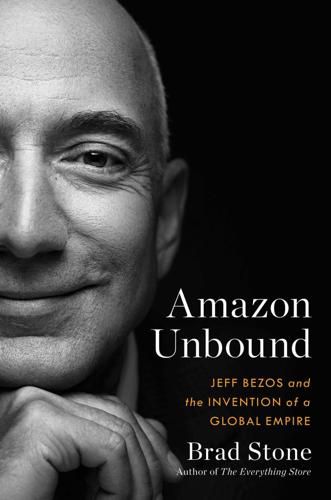
Amazon Unbound: Jeff Bezos and the Invention of a Global Empire
by
Brad Stone
Published 10 May 2021
The new operations leader would have to take a hard-nosed run at the entire supply chain and figure out how to use technology to get more efficient. Clark was a leading contender for the job. A major part of his candidacy was his bid to acquire the North Reading, Massachusetts–based robotics startup, Kiva Systems, which made the Roomba-like mobile robots. Instead of pickers walking a dozen miles a day to select items from shelves spread out over giant warehouses, Kiva robots maneuvered portable containers of merchandise around the building, an orchestral symphony conducted by the invisible hand of software.
…
An investment banker who represented Kiva said that the subsequent talks “were the most painful negotiations I’ve ever been through,” with Amazon characteristically arguing every point. After the $775 million deal closed in early 2012, Kiva execs visited Seattle and saw one of Amazon’s unsuccessful robot prototypes parked in a conference room. The deal to acquire Kiva Systems was Dave Clark’s baby—he implicitly understood its potential to remake the FCs and turn Amazon’s surging variable labor costs into a more predictable fixed investment in robotics and software. In a meeting to discuss the acquisition, according to a Bloomberg profile of Clark years later, he pushed an imaginary pile of chips on the conference room table and said, “I only know one way to play poker—that’s all-in.”
…
., 154 Kennedy Space Center, 272 Kessel, Steve, 9, 24, 55, 56, 60–64, 68, 69, 209, 211, 212 Kessler, Glenn, 117 Khan, Lina, 307, 351–52, 364–69, 371, 377, 380 Khanna, Ro, 295 Khashoggi, Jamal, 321, 343, 347 Killer Movie, 327 Kimberly-Clark, 200, 202 Kindel, Charlie, 50 Kingsley, Ben, 136 Kistler Aerospace, 267 Kiva Systems, 222–24, 388 Kleber, Ralf, 196 knowledge graphs, 34–36 Korrell, Elizabeth, 275 Kotas, Paul, 251–55, 258 Krawiec, Peter, 77, 89, 208, 209 Krishnamurthy, Kalyan, 90 Kroger, 69, 185, 190, 196 Kruse, William, 269 Kumar, Dilip, 38, 56, 58, 61–63, 68, 71 Kumar, Mahendra, 92 Kushner, Jared, 133 Lab126, 22, 30, 32, 390 Labijak, Jacek, 28–29 labor unions, 128, 216, 217, 219, 228, 316, 356, 395–96, 399, 400 Covid-19 and, 316, 392, 394 HQ2 and, 16, 312–16, 394 Teamsters, 216–17, 242 Lai, Gary, 273 Lamontagne, Steve, 58, 59 Landry, Stephenie, 194–96, 198, 212, 238 Lauer, Matt, 157 Law, Julie, 106–7 Lean ideology, 218, 219 Letter Ride, 237 Levinson, Marc, 350 Levy, Steven, 267 Lewinsky, Monica, 323 Lewis, Joe, 143, 157 Lewis, Michael, 324 Liebowitz, Jeremy, 255 Life & Style, 331 Limp, Dave, 50 Lindsay, Al, 26–29, 46 LinkedIn, 399 Lipkin, Ian, 385–86, 388, 390 Lithgow, John, 136 Lockheed Martin, 272, 280 Longergan, Kenneth, 135–36 Long Island City, New York, as HQ2 site, 16, 301, 302, 305–16, 318, 319, 333 Lopez, Jennifer, 325 Lord of the Rings books (Tolkien), 149 Lore, Marc, 209 Los Angeles Times, 295 Lovato, Demi, 323 Lynn, Barry, 365–66 Ma, Jack, 104, 173 Mackey, Deborah, 186–87 Mackey, John, 69, 184–87, 191, 197, 209–11 Macron, Emmanuel, 347 Macy’s, 253 Majors, Lee, 141 Manchester by the Sea, 135–37, 148–49, 326 Man in the High Castle, The, 144–46, 151 Marino, Dan, 48 Marketplace Pulse, 183 Mars, 79, 271, 283 MARS conference, 326 Marvelous Mrs.
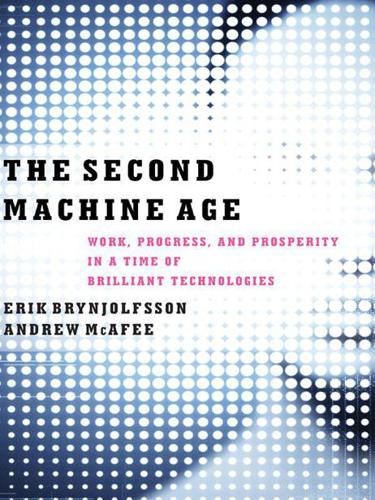
The Second Machine Age: Work, Progress, and Prosperity in a Time of Brilliant Technologies
by
Erik Brynjolfsson
and
Andrew McAfee
Published 20 Jan 2014
Steven Pinker, The Language Instinct (New York: HarperPerennial ModernClassics, 2007), p. 190–91. 30. Christopher Drew, “For iRobot, the Future Is Getting Closer,” New York Times, March 2, 2012, http://www.nytimes.com/2012/03/03/technology/for-irobot-the-future-is-getting-closer.html. 31. Danielle Kucera, “Amazon Acquires Kiva Systems in Second-Biggest Takeover,” Bloomberg, March 19, 2012, http://www.bloomberg.com/news/2012-03-19/amazon-acquires-kiva-systems-in-second-biggest-takeover.html (accessed June 23, 2013). 32. Marc DeVidts, “First Production Run of Double Has Sold Out!,” August 16, 2012, http://blog.doublerobotics.com/2012/8/16/welcome-double-update. 33. “DARPA Robotics Challenge,” n.d., http://www.darpa.mil/Our_Work/TTO/Programs/DARPA_Robotics_Challenge.aspx. 34.
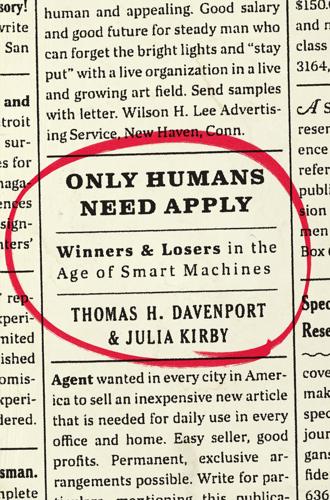
Only Humans Need Apply: Winners and Losers in the Age of Smart Machines
by
Thomas H. Davenport
and
Julia Kirby
Published 23 May 2016
In Amazon’s gargantuan warehouses, for example, it’s tough for workers to pick and pack customer orders if they have to do the running from one end of the building to another—so tough that journalists working there undercover have published scathing articles about the inhuman demands placed on them. So now the company uses Kiva Systems (now Amazon Robotics) robots to bring shelves to the workers, allowing humans—who still have strong advantages in spotting the specific items and packing them appropriately—to stay in one place. Does it make the job easier? Without a doubt. Does it mean Amazon needs fewer people to fulfill a given number of orders?
…
INDEX The pagination of this electronic edition does not match the edition from which it was created. To locate a specific entry, please use your e-book reader’s search tools. Accenture, 83, 102, 134, 183 Adrià, Ferran, 122 Aetna, 83 AI (film), 125 Ainge, Danny, 117 Allen, Robbie, 97 Allstate, 94, 103–4 Amazon Echo, 167 Amazon Robotics (Kiva Systems), 2–3 Amplify, 20 “Analytics 3.0,” 42–43 Analytics Revolution, The (Franks), 43 AnalytixInsight, 22 Anders, George, 120 Anthem, 15, 84 Aplin, Ken, 153–54 Apollo Guidance Computer, 67 Apple, 63 Archilochus, 171 architect jobs, 23, 24–25, 151 Ariely, Dan, 113 Armstrong, Stuart, 226, 249 Arnett, Thomas, 84 artificial intelligence, 7, 26, 33–58, 141, 163, 189.
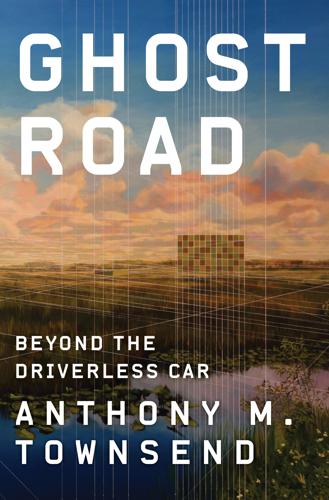
Ghost Road: Beyond the Driverless Car
by
Anthony M. Townsend
Published 15 Jun 2020
From this vantage point, the matrix of stacked crates and the hundreds of conveyors trundling among them mirror the low-rise industrial sprawl that reaches for miles in every direction beyond the building’s four walls. Closer examination reveals that it’s the stacks themselves that are on the move, rolling along on robotic sleds. This new cargo cult is serious business. In 2012, Amazon cornered the market on these warehouse AVs, acquiring Massachusetts-based Kiva Systems for $775 million. Each year since, the megaretailer has added 15,000 droids to its global robot army, with stunning results. The company has cut the time from when you place an order to when it rolls onto a truck (“click to ship,” in the biz) from over an hour to just 15 minutes, while reducing costs by 20 percent.
…
“self-driving,” 38 early self-steering schemes, 5–6 modern-day myths about future, xv–xvi scan, study, and steer as basic tasks, 34–38 self-driving shoes, 52, 53 three big stories of the driverless revolution, 16–20, 187–88, 238, 248, 253 see also financialization of mobility; materialization; self-driving vehicle research; specialization driving as coming-of-age story, 21–22 cruise control and, 24–25, 26 decline in teen driving, 22–23 distracted driving, 25, 28–29, 32–33 drinking and, 24 graduated licensing, 23 drones, 40, 127, 246–47 EasyMile, 60, 103–4, 104 Ebee, 129 e-commerce, 17, 117, 118–19, 120 see also Amazon; continuous delivery Edgar, John, 247 electrification and automation as symbiotic technologies, 54–55 electronic tolling, 169–72 Endeavor space shuttle, 74 English Civil War, 161 e-Palette, 125, 142 EUREF, 129 Evans, Alex, 116 éX-Driver (anime series), 149–50 Facebook, 67 fear of intelligent automobiles, 39, 43, 45 FedEx, 27, 130 “fifth-generation” (5G) wireless grid, 42 financial crisis of 2007–2008, 7, 164, 182 financialization, general, 163–64 financialization of mobility curb pricing and curb-access fees, 220–21, 222–23 electronic tolling, 169–72 monetization of vehicle owner data, 32 overview, 17, 163–65, 244 realignment of money and power, 181–83 see also congestion pricing first mile, 60 fleet learning, 37 Florida Automated Vehicles Summit, 55 Ford, Henry, 12 Ford Motor Company, 12, 32, 58, 218–19, 231, 233 forecasting vs. predicting the future, 13 free roads, end of, 163, 165 free transfer in transit system, 89, 90, 91 Frey, Carl Benedikt, 153, 154, 236 Frost, Robert, 249 fulfillment centers and distribution centers, 121, 123, 132, 136–37, 152, 158, 196n fulfillment zone, 187, 188, 196–99, 198–99 Futurama (1939 World’s Fair), 5 future car of the 1950s, 50–52, 51 Future of Humanity Institute, 238 future shock, 120 Gao Lufeng, 65 Gates, Bill, 237–38 General Motors (GM) AVs tested in San Francisco, xv disengagements by Chevy Bolts, 41 Futurama (1939 World’s Fair), 5 in-car surveillance and driver monitoring, 32 Super Cruise, 29 Gensler, 191 ghost cars, 27 ghost Main Street businesses, 140–42 ghost restaurants, 139–40, 197 ghost road, defined, xvi Gibson, Mel, 28 Gibson, William, 10, 245 GitHub, 248 Glaeser, Edward, 130, 206 Goldsmith, Stephen, 222 Google ambitions, 183 Android operating system, 7 busing of workers, 100 self-driving car project, xiv–xv, 7, 8, 35, 84, 133, 230 and vehicular specialization, 54 Waze acquired by, 87 see also Waymo Gould, Jay, 180 GPS tracks, 35 Grab, 177 graduated licensing, 23 Green Summit, 139 guardian angels, 246–47 Hackett, Jim, 32 Hawking, Stephen, 237–38 Heppner, Henning, 129 Herron, Ron, 74 Hidalgo, Anne, 220 highwaymen (England’s East Midlands), 161 Hitachi, 67, 79 HopSkipDrive, 95 horsecars, 174–75 houses, increased size of, 116 human intelligence tasks (HITs), 41 IBM, 36 Icebox, 243–44 IDEO, 125 IKEA, 72–73 Image of the City, The (Lynch), 228–30 immutable objects, 49 Impellitteri, Vincent, 165 Induct, 103, 104 infill housing, 204, 253–55 informal transit, 99–100, 106 Inrix, 9 Intel, 8, 35 “Introducing the self-driving bicycle in the Netherlands,” 62 Intuit, 125 Jacobs, Jane, 57, 228 JD.com, 118, 119, 137 Jelbi MaaS app (Berlin), 109, 110, 216 Jevons paradox, 144–45 Jevons, William Stanley, 143–44, 145 just-in-time inventory approaches, 157 Ju, Wendy, 40 Kalanick, Travis, 140, 179 Kamen, Dean, 62 Keller, David H., 84–85, 94 Keolis, 104 Khashoggi, Jamal Ahmad, 178 Khosrowshahi, Dara, 98, 179 Kia, 31 Kim, Sangbae, 46 King, David, 132, 247 King, Steven, 42 kipple, defined, 142–43 Kitchen United, 139 Kiva Systems, 136, 137 Kiwibots, 57 Knightley’s (Wichita, KS), 192 Koch, Charles and David, 40 Kohlhase, Janet, 130, 206 Kohn Pedersen Fox, 209, 211 Koolhaas, Rem, 206 KPMG, 117, 218 Kurzweil, Ray, 234 Ladd, Brian, 80 last mile continuous delivery and, 121–29 conveyors and, 124–25 cost savings, 130 driverless shuttles, 60, 123n falling costs and demand, 130–32, 131 in food delivery, 140, 147 freight AVs, 125–26, 130 Hannah school buses, 127 nighttime delivery, 128–29, 130, 217 origin of term, 122 package lockers and, 127, 130, 219, 221 piggybacking deliveries, 126–27 term use in shipping, 123n legibility, 229–30, 231 Legible London, 230 Leonhardt, David, 8–9 Les Vergers Ecoquartier (Switzerland), 202 Levandowski, Anthony, 40, 68 Levy, Frank, 150, 151, 152 lidar, 34–35 Ligier Group, 103 Lime Bike, 67 “Living Machine, The” (Keller), 83–85, 94, 237 loss aversion, 50 Lowe’s, 116 Lufa Farms, 147 Luks, George, 174 Lyft competition with Uber, 177–78, 179 initial public offering, 97, 177 market cap, 97 number of vehicles, 10 relationship with transit, 215 specialization and variety of rides, 95, 96 subscriptions, 244 taxibots, 97 traffic congestion and, 168 Lynch, Kevin, 228–30 MaaS.
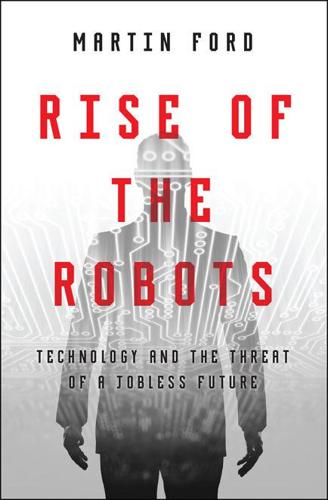
Rise of the Robots: Technology and the Threat of a Jobless Future
by
Martin Ford
Published 4 May 2015
In theory, the encroachment of online retailers should not necessarily destroy jobs but, rather, would transition them from traditional retail settings to the warehouses and distribution centers used by the online companies. However, the reality is that once jobs move to a warehouse they become far easier to automate. Amazon purchased Kiva Systems, a warehouse robotics company in 2012. Kiva’s robots, which look a bit like huge, roving hockey pucks, are designed to move materials within warehouses. Rather than having workers roam the aisles selecting items, a Kiva robot simply zips under an entire pallet or shelving unit, lifts it, and then brings it directly to the worker packing an order.
…
., 265, 266 Joy, Bill, 243–244 Kaiser Health News, 164 Kaku, Michio, 247 Karabarbounis, Loukas, 41 Kasparov, Garry, xiv, 97, 122, 239 Kennedy, John F., 249–250, 280 Kerala sardine fisherman, mobile phones and, 78–79 Keynes, John Maynard, 38, 206 Khan Academy, 132–133 Khoshnevis, Behrokh, 180 Kinect, 4–5, 7, 105 King, Martin Luther, Jr., 29–30, 250 kiosks, intelligent, 17–19 Kiva Systems, 16 K’NEX, 5–6 knowledge-based jobs automation of, 85–86 big data and, 93–96 collaboration with machines and, 121–128 See also white-collar jobs Koller, Daphne, 133 Koza, John, 110 Kroger Company, 17 Krueger, Alan, 119 Krugman, Paul, 60, 203–204, 204n, 205 Kuka AG, 10 Kura sushi restaurant chain, 14–15 Kurzweil, Ray, 78, 233, 234–235, 237 labor organized, 57–58 role in economy, 279 share of national income, 38–39, 41, 56, 58 See also workers/workforce Lanier, Jaron, 77 Law, Legislation and Liberty (Hayek), 257–258 law school bubble, 173n LeCun, Yann, 231 legal discovery, trends in, 124–125 Lehman, Betsy, 149 leisure time, basic income guarantee and, 263 Leno, Jay, 177 Levy, Steven, 85 liability autonomous cars and, 183–184, 186, 190 health care, 150, 150n Lickel, Charles, 96 The Lights in the Tunnel (Ford), xiii, 60, 264 Lipson, Hod, 108, 109, 110, 180 liquidity trap, 218n London Symphony Orchestra, 111 London taxi drivers, 209n long-tail distribution, in Internet sector, 76–78 long-term unemployment, ix, xvi, 45–46, 211, 280 Los Angeles Angels, 83 low-wage jobs, automation and, 26–27 Luddites, 31, 33, 256 machine essay grading, 129–131 machine intelligence, 72, 75, 80.
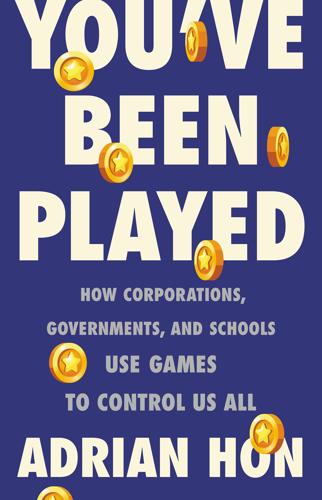
You've Been Played: How Corporations, Governments, and Schools Use Games to Control Us All
by
Adrian Hon
Published 14 Sep 2022
Companies like Amazon can be a dominant employer in some regions, attaining a monopsony status, where a single employer can control the market as the major purchaser of labour.17 In an economy where employment has become increasingly precarious, it’s hardly surprising that McDonald’s and Amazon can dictate terms to workers. Though the COVID-induced labour shortage has recently paused this trend, matters may yet get worse. In 2012, Amazon spent $775 million to buy Kiva Systems, an advanced warehouse robotics company, in an effort to reduce its reliance on human workers.18 Collectively, companies are spending billions of dollars a year to research and deploy robots as hotel butlers, fast-food cooks, delivery workers, and of course, taxi drivers.19 Those with a positive outlook on life will view robots as merely another step in a centuries-long process of automation that started with the spinning jenny; in this line of thinking, any workers who are replaced by robots can instantly and painlessly retrain for new jobs, and if they don’t, they’re regrettable casualties in a war that ultimately raises the sum total of human happiness, whose end will see the annihilation of human drudgery.
…
Erika Hayasaki, “Amazon’s Great Labor Awakening,” New York Times, updated June 15, 2021, www.nytimes.com/2021/02/18/magazine/amazon-workers-employees-covid-19.html. 18. Evelyn M. Rusli, “Amazon.com to Acquire Manufacturer of Robotics,” DealBook, New York Times, March 19, 2012, https://dealbook.nytimes.com/2012/03/19/amazon-com-buys-kiva-systems-for-775-million. 19. “Smart Hospitality Market to Reach USD 44.38 Billion By 2026 | Reports and Data,” GlobeNewswire, November 19, 2019, www.globenewswire.com/news-release/2019/11/19/1949666/0/en/Smart-Hospitality-Market-To-Reach-USD-44-38-Billion-By-2026-Reports-and-Data.html; John Biberstein, “Automation and Its Growing Impact on the Fast Food Industry,” globalEDGE, International Business Center, Michigan State University, September 16, 2019, https://globaledge.msu.edu/blog/post/55773/automation-and-its-growing-impact-on-the; “Robo Taxi Market Size to Reach USD 38.61 Billion by 2030 at CAGR 67.8% - Valuates Reports,” Valuates Reports, CISION PR Newswire, September 16, 2021, www.prnewswire.com/news-releases/robo-taxi-market-size-to-reach-usd-38-61-billion-by-2030-at-cagr-67-8---valuates-reports-301378390.html. 20.
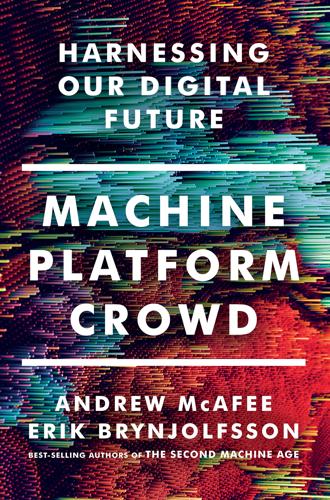
Machine, Platform, Crowd: Harnessing Our Digital Future
by
Andrew McAfee
and
Erik Brynjolfsson
Published 26 Jun 2017
Amazon has not yet§ found or developed a digitally driven hand or other “grabber” that can reliably pick all products off the shelf and put them in a box. So the company has hit on a clever solution: it brings the shelves to a human, who grabs the right products and boxes them for shipment. Racks of shelves are whisked around the company’s huge distribution centers by knee-high orange robots originally made by Boston-based Kiva Systems (Kiva was bought by Amazon in 2012). These robots scoot underneath a rack, lift it up, and bring it to a stationary human. When this person has taken the items needed, the rack-and-robot unit scoots away, and another one takes its place. This arrangement allows the people to use their skills of vision and dexterity, where they have an advantage over machines, and avoid the physical exertion and lost time that comes from walking from one shelf to another.
…
(TV show), 17 Jeppesen, Lars Bo, 259 Jobs, Steve curation of iPhone platform, 165 Dropbox acquisition offer, 162 and iPhone apps, 151–53, 157, 163 joint-stock company, 320 journalism, See newspapers Joyce, James, 178 judges, parole granted by, 39–40 judgment, human as complement to computer power, 35 in decision-making loop, 53–56 flaws in, 37–42 and justification, 45 “superforecasters” and, 60–61 System 1/System 2 reasoning, 35–46 justification, 45 Kadakia, Payal, 178, 179, 184 Kaggle, 261 Kahneman, Daniel, 35–36, 43, 44, 56, 325 Kalanick, Travis, 200 Kapor, Mitch, 142 Katz, Michael, 141n Kaushik, Avinash, 45 Kay, Alan, 61 Kazaa, 144 Kehoe, Patrick J., 21 Keirstead, Karl, 143 kernel, 240 Keynes, John Maynard, 278–79, 287, 309–10 Khosla, Vinod, 94 Kickstarter, 262 “killer app,” 157 Kim, Pauline, 40–41 Kimberley Process, 289–90 kinases, 116–17 kitchen, automated, 94 Kiva Systems, 103 Klein, Gary, 56 knowledge access to, in second machine age, 18 markets and, 332 prediction markets and, 238 knowledge differentials, See information asymmetries Kodak, 131, 132 Kohavi, Ronny, 45, 51 Kohl’s, 62–63 Koike, Makoto, 79–80 Komatsu, 99 Koum, Jan, 140 Krawisz, Daniel, 304 Kurzweil, Ray, 308 Lakhani, Karim, 252–55, 259 landline telecommunications, 134–35 land title registry, 291 language learning styles, 67–69 Lasker, Edward, 2 Lawee, David, 166 law of one price, 156 Lea, Ed, 170 leadership, geeky, 244–45, 248–49 lead users, 265 LeCun, Yann, 73, 80, 121 ledger, See blockchain Legg, Shane, 71 Lehman, Bastian, 184 Lei Jun, 203 Leimkuhler, John F., 182 “lemons,” 207 Lending Club, 263 level 5 autonomy, 82 leveraging of assets, O2O platforms for, 196–97 Levinovitz, Alan, 3 Levinson, Art, 152 libraries, 229–32 Library of Congress, 231 links, 233 Linq, 290–91 Linux, 240–45, 248, 249, 260 liquidity and network effects, 206 O2O platforms as engines of, 192–96 Livermore, Shaw, 22–23 locking in users, 217 lodging; See also Airbnb differences between Airbnb and hotels, 222–23 Priceline and, 223–24 “Logic Theorist” program, 69 Long, Tim, 204 Los Angeles, California hotel occupancy rates, 221–22 Postmates in, 185 Uber’s effect on taxi service, 201 LTE networks, 96 Luca, Michael, 209n Lyft, 186, 201, 208, 218 Ma, Jack, 7 machine age, See second machine age machine intelligence mind as counterpart to, 15 superiority to System 1 reasoning, 38–41 machine learning, 66–86; See also artificial intelligence AlphaGo and, 73 back-office work and, 82–83 early attempts, 67–74 in Obama’s 2012 presidential campaign, 48–51 O2O business data and, 194 statistical pattern recognition and, 72–74 machine(s); See also artificial intelligence; robotics; standard partnership and business process reengineering, 32–33 and creativity, 110–19 defined, 14 human connection in digitized world, 122–24 human judgment and, 34–45 new mind-machine partnership, 46–62 and uniquely human domains, 110–26 Mad Men (TV drama), 48 Madrigal, Alexis, 295–96 magazines ad revenue (late 1990s), 130 ad revenue (2013), 132–33 new content platforms’ effect on revenue, 139 MakerBot, 273 maker movement, 271–72 Makhijani, Vish, 324–25 malls, 131, 134 Malone, Tom, 311, 313 management/managers continued importance of, 320–23 and economics of the firm, 309 as portion of US workforce, 321 in post-standard partnership world, 323–26 manufacturing electricity’s effect on, 19–24 robotics in, 102 transition from molds to 3D printing, 104–7 Manyika, James, 332 Manzi, Jim, 62–63 Marchant, Jo, 66n Marcus, Gary, 5, 71 marginal costs bundling and, 147 of computer storage, 136 of digital copies, 136, 137 of perishing inventory, 180, 181 of platforms, 137 of platforms vs. products, 147, 220 and Uber’s market value, 219 marginal utility, 258–59 “Market for ‘Lemons,’ The” (Akerlof), 207 market research, 13–14, 261–63 market(s) centrally planned economies vs., 235–37 companies and, 309–11 costs inherent in, 310–11 as crowd, 235–39 information asymmetries and, 206–7 prediction markets, 237–39 production costs vs. coordination costs, 313–14 Markowitz, Henry, 268 Marshall, Matt, 62 Martin, Andrew, 40–41 Marx, Karl, 279 Masaka, Makoto, 79–80 “Mastering the Game of Go with Deep Neural Networks and Tree Search” (Nature article), 4 Maugham, Somerset, 110 Mazzella, Frédéric, 190 McCarthy, John, 67 McClatchy Company, 132 McDonald’s, 92 McElheren, Kristina, 42 McKinsey Global Institute, 332 Mechanical Turk, 260 Medallion Fund, 267 medical devices crowd-designed, 272–75 3D printing and, 106 medical diagnosis, 123–24 Meehl, Paul, 41–42, 53–54, 56, 81 MegaBLAST, 253, 254 Menger, Carl, 25 Men’s Fitness, 132 Merton, Robert K., 189 Metallica, 144 Microsoft core capabilities, 15 machine learning, 79 proprietary software, 240 as stack, 295 Windows Phone platform, 167–68 Microsoft Research, 84 Milgrom, Paul, 315n milking systems, 101 Mims, Christopher, 325 mind, human as counterpart to machine intelligence, 15 undetected biases in, 42–45 Minsky, Marvin, 73, 113 Mitchell, Alan, 11, 12 MIT Media Lab, 272 mobile telephones, 129–30, 134–35 Mocan, Naci, 40 molds, 104–5 Moley Robotics, 94 Momentum Machines, 94 Moody’s, 134 Moore, John, 315 Moore’s law, 308 and Cambrian Explosion of robotics, 97–98 defined, 35 neural networks and, 75 System 2 reasoning and, 46 and 3D printing, 107 Morozov, Evgeny, 297 Mt.

Radical Technologies: The Design of Everyday Life
by
Adam Greenfield
Published 29 May 2017
For example, Amazon apparently developed the foundations of its drone program in-house, but when it became evident that nobody on hand had the expertise in machine vision necessary to advance the program to its next stage, they simply hired an existing team of experts, and rebuilt the drone lab around them.13 Similarly, they got a toehold in automation by buying the company that made the robots used in its warehouses, Kiva Systems.14 While this practice is commonplace throughout the technology industry, it has been raised to an art in the age of the Stacks, especially as each of them expands beyond its original core competency. And a train of consequences follow from this that have a distinct bearing on what kinds of technologies are brought into existence.
…
Think Again,” New York Times, August 10, 2016. 12.CBS News, “Amazon Unveils Futuristic Plan: Delivery by Drone,” 60 Minutes, December 1, 2013. 13.Ben Popper, “Amazon’s drone program acquires a team of Europe’s top computer vision experts,” The Verge, May 10, 2016. 14.Danielle Kucera, “Amazon Acquires Kiva Systems in Second-Biggest Takeover,” Bloomberg, March 19, 2012. 15.Mike Rogoway, “Amazon Reports Price of Elemental Acquisition: $296 Million,” Oregonian, October 23, 2015. 16.Caleb Pershan, “Startup Doze Monetizes Nap Time for Tired Techies,” SFist, September 28, 2015; Kate Taylor, “Food-Tech Startup Soylent Snags $20 Million in Funding,” Entrepreneur, January 15, 2015; Michelle Starr, “Brain-to-Brain Verbal Communication in Humans Achieved for the First Time,” CNet, September 3, 2014; Frank Tobe, “When Will Sex Robots Hit the Marketplace?
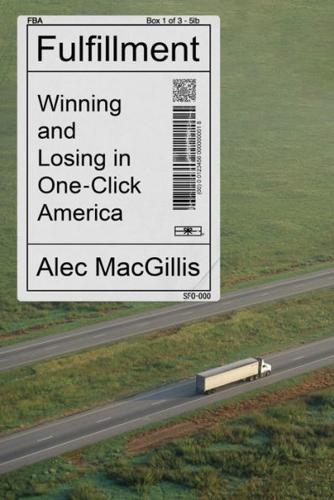
Fulfillment: Winning and Losing in One-Click America
by
Alec MacGillis
Published 16 Mar 2021
Inside the one-million-square-foot hall, the squat orange robots, roughly the size and shape of ottomans, buzzed around within a large caged area to bring workers the stacks of shelving racks from which they assembled shoppers’ orders: this warehouse was one of several dozen designed for robotic pickers, rather than for people roaming the corridors with scanners in hand. The robots were made by a Boston-area company called Kiva Systems, which Amazon had bought in 2012 for $775 million, thus preventing its rivals from using the technology. Robots brought the racks; humans took items from them. Weight-loss supplements, basketballs, Listerine, power drills, Spinning Ball Poppers … Before the Kivas, fulfillment pickers were expected to reach speeds of about 100 items per hour.
…
Johnson, Livinia Blackburn Jones, James Edward Jones, Quincy Jones Lang La-Salle (JLL) Joseph, Harvey journalism: Carney background in; coronavirus and; decline in nationwide; takeovers; Washington, D.C., increase in Kaiser, Robert Kaphan, Shel Kaplan, Joel Kasich, John Kelly, Emmett Kennedy, Bobby Kettering, Charles Khan, Lina Kilp, Kevin Kiva Systems Landers, Sara: childhood years of; at St. Vincent de Paul Gateway Shelter for Women and Families; Swallows assaulted by; Swallows breakup with; Swallows domestic violence against; Swallows reuniting with last leg delivery Leadership Principles Lee, Daniel legislation, see antitrust law hearings/investigations Lehman, Herbert leveraged-buyout firms Levi Strauss Lewis, John L.
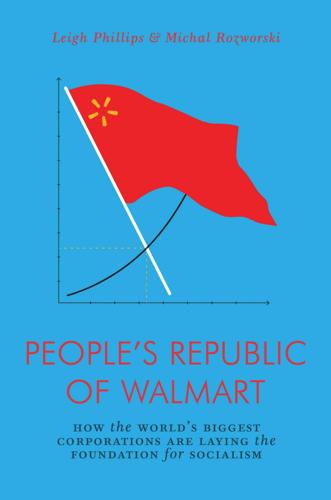
The People's Republic of Walmart: How the World's Biggest Corporations Are Laying the Foundation for Socialism
by
Leigh Phillips
and
Michal Rozworski
Published 5 Mar 2019
A leading UK researcher on workplace stress contacted by the same BBC investigation claimed that conditions at Amazon warehouses pose serious physical and mental health risks. Around the start of this decade, Amazon’s top operations managers determined that its warehouses were still too inefficient, and so they themselves went shopping for something better. In 2012 Amazon bought Kiva Systems, a robotics firm, and it now uses robots to put its entire shelving system into motion. Amazon’s updated, even more automated fulfillment centers now feature shelves that move and humans who stand in place—the opposite of what a warehouse normally looks like. Flat, Roomba-like robots rove the warehouse floor along designated pathways.
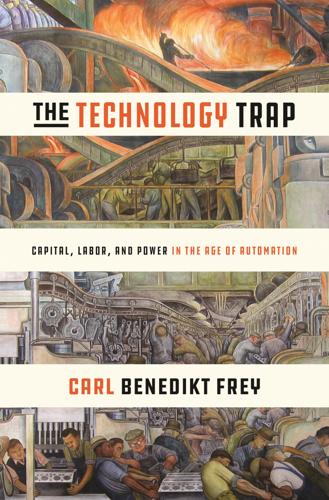
The Technology Trap: Capital, Labor, and Power in the Age of Automation
by
Carl Benedikt Frey
Published 17 Jun 2019
It allows many construction tasks to be performed by robots under controlled conditions that eliminate task variability—a method that is becoming increasingly widespread, particularly in Japan.”35 Not just in construction but also in retailing, clever task redesign has yielded promising results. For example, Kiva Systems, acquired by Amazon, solved the problem of warehouse navigation simply by placing bar-code stickers on the floor that inform robots of their precise location. With clever task redesign, engineers are already breaking the rules about what robots can do. In the late 1990s, computers lent steam to retailing operations.
…
See mass production American Telephone and Telegraph Company (AT&T), 315 annus mirabilis of 1769, 97, 148 anti-Amazon law, 290 Antikythera mechanism, 39 Appius Claudius, 37 Archimedes, 30, 39 Aristotle, 1, 39 Arkwright, Richard, 94, 101 artificial intelligence (AI), 5, 36, 301–41, 228, 342; Alexa (Amazon), 306; AlphaGo (Deep Mind), 301, 302; Amara’s Law, 323–25; artificial neural networks, 304; autonomous robots, 307; autonomous vehicles, 308, 310, 340; big data, 303; Chinese companies, 313; Dactyl, 313; data, as the new oil, 304; Deep Blue (IBM), 301, 302; deep learning, 304; -driven unemployment, 356; Google Translate, 304; Gripper, 313; internet traffic, worldwide, 303; JD. com, 313; Kiva Systems, 311; machine social intelligence, 317; Microsoft, 306; misconception, 311; multipurpose robots, 327; Neural Machine Translation, 304; neural networks, 303, 305, 314; pattern recognition, 319; phrase-based machine translation, 304; Siri (Apple), 306; speech recognition technology, 306; Turing test, 317; virtual agents, 306; voice assistant, 306; warehouse automation, 314 artisan craftsmen, 8; in domestic system, 118, 131; emigration of, 83; factory job, transition to, 124; fates of, 17; full-time, 34; middle-income, 11, 16, 24, 135; replacement of, 9, 16, 218 Ashton, T.
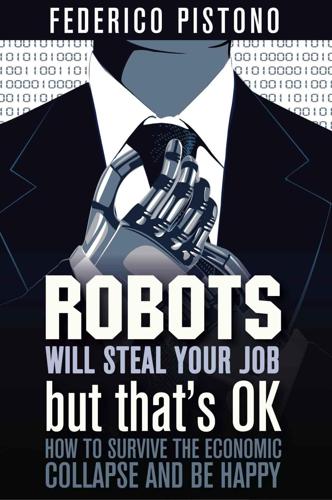
Robots Will Steal Your Job, But That's OK: How to Survive the Economic Collapse and Be Happy
by
Pistono, Federico
Published 14 Oct 2012
Pallets and product move on a system of automated conveyors, cranes and automated storage and retrieval systems coordinated by programmable logic controllers and computers running logistics automation software. Their accuracy and productivity is far greater than any human could ever dream of. These machines are faster, more precise, they can lift huge weights without having to deal with back problems, they work day and night, and do not require a lot maintenance. Amazon.com has recently purchased Kiva Systems, a manufacturer of bright orange robots that scuttle around warehouses filling orders, for $775 million39. CNN has a video of the system operating (see the link in the previous footnote or the book website). It is a pretty amazing sight. Hundreds of robots picking up items from the shelves, moving them around in immense warehouses, with clockwork precision and perfect timing, as if dancing to a silent piece of music, written in code of zeroes and ones.

Aerotropolis
by
John D. Kasarda
and
Greg Lindsay
Published 2 Jan 2009
Seen from above, the warehouse itself appears to be moving, as racks shudder and glide to the front, seemingly of their own volition. The organizational principle of the warehouse has been inverted—pickers no longer search into the stacks; the stacks now come to them. The robots are supplied by Kiva Systems, a company started by a band of MIT engineers whose other customers include Staples and the Gap, which employ them by the hundreds. At Zappos, the robots touch only inventory that doesn’t fit in a shoe rack, or about a half-million items. As its offerings expand, so will its fleet, which is twice as efficient, requires half as much energy, and has resulted in a 40 percent reduction in human labor.
…
., 11 Karev, Ori, 272 Kasarda, John, 6–10; “aerotropolis” coined by, 5, 383, 419; and Bangkok’s aerotropolis plans, 247–48, 250, 255, 262; Beijing Capital Airport City plans of, 387; career of, 159–60, 169; childhood of, 7, 162–63; Chongqing strategy of, 397; cities by and for companies envisioned by, 181; and Detroit’s future as aerotropolis, 24, 187–89, 192; and Dubai plans, 313–15; early forms of aerotropolis idea by, 169–73; education of, 7, 159, 163–64; efficiency in the name of growth touted by, 413; on environmental impact of aviation, 338–43; Fast Company profile of, 24; on fate and agency, 7, 18, 164; FedEx use of plans by, 8, 79, 171, 373, 384; as frequent flyer, 6–7, 8–9, 261, 414; future of air travel as seen by, 412–13; governance of aerotropoli proposed by, 177; Hong Kong International admired by, 382; on impact of Open Skies, 403; in India for consultation, 282, 284; influences and mentors of, 5, 164–67, 339–40, 424–25; Law of Connectivity by, 113–19, 272, 333, 339, 423; Memphis seen as aerotropolis by, 79; new urbanism in ideas of, 136; and Orange County airport debate, 36; speeches and conference appearances by, 8, 173, 339; Subic Bay as validation for, 171; 21st century cities as imagined by, 12–13, 19–20, 24, 358 Kassa, Berhanu, 322, 323, 324 Katrina, Hurricane, 185 Kautai, Alex, 91 Kelbaugh, Douglas, 197, 198 Kelly, Matthew, 103 Kenan-Flagler Business School, 8 Kenya, floral industry in, 212, 221, 222–23 Kershinnik, Terri, 142, 144 khat, 323 Kilborn, Peter T., 106 Kilpatrick, Kwame, 181, 188 Kim, Angela, 118 Kinston, N.C., transpark planned for, 169–70, 171–73 Kirn, Walter, 97–98 Kitty Hawk, 341 Kiva Systems, 72, 74 Knox Mine Disaster, 7 Kohn Pedersen Fox, 355 Koolhaas, Rem, 10, 19, 35, 293, 383 Kowloon, China, 372, 374, 377–78 Kraska, Iris, 290 Krugman, Paul, 393 Kuala Lumpur, as transportation hub, 261 Kuala Lumpur International Airport, 261, 262 Kynge, James, 391, 395 Kyoto Protocol, 346 La Guardia, Fiorello, 192, 426 LaGuardia Airport, 22–23, 32, 192, 411–12; Marine Air Terminal at, 103, 411–12 Lakewood, Calif., 27 Land’s End, 73–74 Lang, Robert, 145–46 laptops, see netbooks Las Colinas, 119–24, 136, 138, 191, 196, 423 Las Vegas, Nev., 109–10 Law of Connectivity, 113–19, 272, 275, 333, 339, 423 layovers: being “nowhere” during, 96–98; as DFW byproduct, 96 LCOR, 53 Leahy, Terry, 228–29, 232, 427 Leinberger, Christopher, 186 Lenovo, 9, 125–26, 172, 368 Levittown, N.Y., shaped by automobile, 11 LG Chem, 203 Li & Fung, 374–75, 395 Limits to Growth, 339 Lindbergh, Charles, 25, 179, 180 Liu Jieyin, 404–406 Livingstone, Ken, 14, 16 Lockheed, 27–28 London: airport in, see Heathrow Airport; as financial capital, 14 Los Angeles, Calif., 25–38; aviation and aircraft industry in, 26; cities in style of, 21; ports of, 34; regional airports around, 31, 35–37; as shaped by automobile, 11, 12; Westchester neighborhood of, 28–29 Los Angeles International Airport (LAX): condition of, 32, 38; as declining cargo hub, 33–35; early complaints about, 26–27, 176; early history of, 25–29, 420–21; economic impact of, 30; expansion of, 31; litigation involving, 29;municipal neglect of, 32; noise complaints against, 28–29; as political pawn, 26; Theme Building of, 32; traffic through, 33–35, 38; urban sprawl around, 29 Loughead, Allan and Malcolm, 27 Louisville, Ky., 64–69; economic history of, 80–81 Louisville Airport Improvement Program, 87–90; opposition to, 88–90 Louisville International Airport, expanded for UPS, 64 Lovins, Amory, 329, 342 Lutz, Bob, 203 Lutz, Scott, 126–27 Macau, China, as tourism hub, 378–79 Madrid: airport in, 16; high-speed rail in, 352 MAE-East, 41 Magna International, 197 Malaysia: floral industry in, 221; Multimedia Super Corridor in, 261–62 Malthus, Thomas, 339 Manjoo, Farhad, 75 manufacturing sector: employment in, 202;in U.S. recession, 202 Mao Zedong, 409 Marchetti, Cesare, 116–17 Marchetti’s Constant, 116–17 Martin, James G., 169–70, 173 Marx, Karl, 11 Ma Ying-jeou, 388–89 McCain, John, 49, 87–88 McCarran International, 110 McDonnell Douglas, 27 MCI, 41–42 McKenzie, Roderick D., 424 McKinsey, 126 McWilliams, Carey, 28 Mears, Walter, 183 medical tourism, 265–76, 429; aerial connectivity as boost to, 275–76; as boon to developing nations, 269; in India, 275–77; insurer’s acceptance of, 272, 273; outcomes from, 272–73; political opposition to, 273–74; prices driving, 268–69; promoted by word of mouth, 272, 276; to U.S.
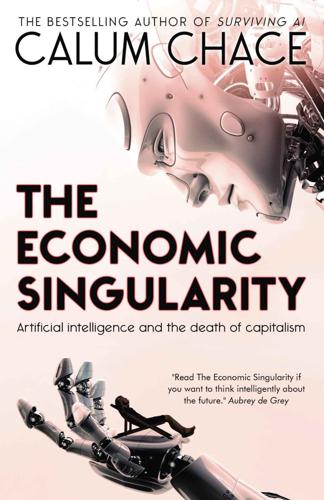
The Economic Singularity: Artificial Intelligence and the Death of Capitalism
by
Calum Chace
Published 17 Jul 2016
It can operate in more environments than Baxter, and can carry out more intricate movements. It is slightly more expensive, at $29,000. Rethink and Universal, along with other companies like the Swiss firm ABB and the German firm KUKI, are making industrial robots more effective, more affordable, and more widespread. Warehouses Kiva Systems was established in 2003, and acquired by Amazon in 2012. Kiva produces robots which collect goods on pallets from designated warehouse shelves and deliver them to human packers in the bay area of the warehouse. Amazon paid $775m for the nine-year old company and promptly dispensed with the services of its sales team.
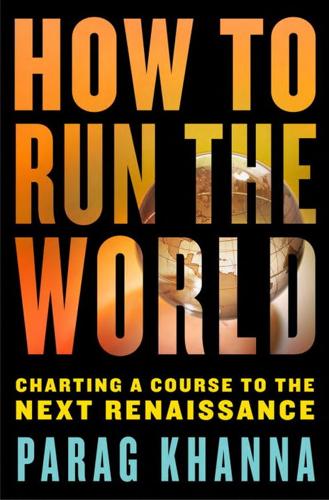
How to Run the World: Charting a Course to the Next Renaissance
by
Parag Khanna
Published 11 Jan 2011
Kiva connects the local to the local: It’s not B2B, but P2P (person to person). It’s about more than just the first world helping the third world—it promotes what its name means: unity. Kiva has zero interest on capital—people lend for the emotional satisfaction, and they keep on lending, rarely pulling money out of the Kiva system as outstanding loans are repaid. Kiva employees work there for the same reason. Its headquarters in the Mission district of San Francisco resembles a dormitory common room. All but one world map are upside down—the symbol of solidarity with the global “South”—and rooms are named after third world capitals such as Kabul and Dili (of East Timor).
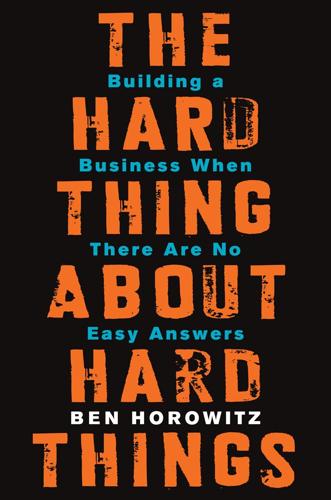
The Hard Thing About Hard Things: Building a Business When There Are No Easy Answers
by
Ben Horowitz
Published 4 Mar 2014
We hired Tim into Netscape in 1996 and together we successfully made LDAP the Internet directory standard. To this day, if a program is interested in information about a person, it accesses that information via LDAP. The fourth member of our team was In Sik Rhee, who had cofounded an application server company called Kiva Systems, which Netscape had acquired. He had been acting as CTO of the e-commerce division that I ran and, in particular, worked closely with the partner companies in making sure that they could handle the AOL scale. As we discussed ideas, In Sik complained that every time we tried to connect an AOL partner on the AOL e-commerce platform, the partner’s site would crash, because it couldn’t handle the traffic load.
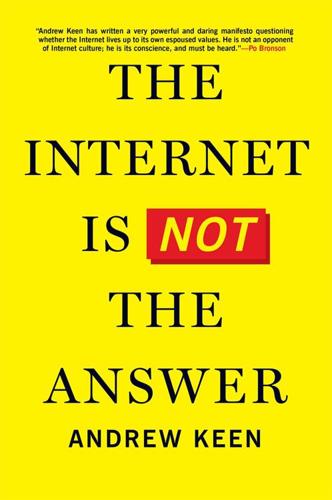
The Internet Is Not the Answer
by
Andrew Keen
Published 5 Jan 2015
Yes, Amazon may be hiring low-income, hourly, nonunionized laborers for its rapidly growing number of warehouses. But, like Google, Amazon is also massively investing in automated labor technology, with Jeff Bezos telling his investors in May 2014 that he expected to be using 10,000 robots in its fulfillment centers by the beginning of 2015.34 Thus in 2012 Amazon paid $775 million for Kiva Systems, a maker of robots for servicing warehouses. Kiva robots—which, by the way, are already being used by the Amazon-owned online shoe store Zappos (in Zappos’s hierarchy-free holacracy, all robots are presumably equal)—can retrieve and pick 200–400 items an hour. As George Packer warns in a 2014 New Yorker piece, “Amazon’s warehouse jobs are gradually being taken over by robots.”
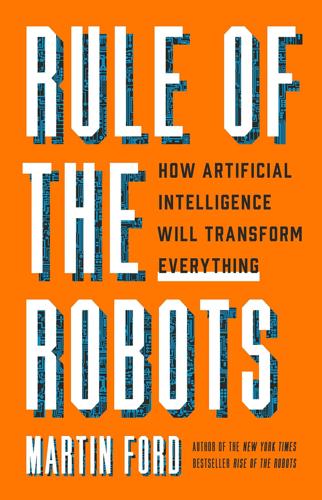
Rule of the Robots: How Artificial Intelligence Will Transform Everything
by
Martin Ford
Published 13 Sep 2021
Within Amazon’s most modern distribution centers, this bustling motion has been transformed almost into a mirror image of itself. It is now the workers who remain stationary, while the inventory shelves speed about, hurrying between destinations riding on the backs of fully autonomous robots. This wholesale reorganization began with Amazon’s $775 million acquisition of the warehouse robotics startup Kiva Systems in 2012. The robots, which look somewhat like huge orange hockey pucks and weigh in at over 300 pounds, roam within a fenced-off area designed to eliminate any risk of collisions with human workers and navigate by following barcodes attached to the floor. Operating under algorithmic control, robots deliver shelves laden with inventory to stations occupied by workers, who are then tasked with either stowing items at an available location or retrieving a specific product to fulfill a customer order.
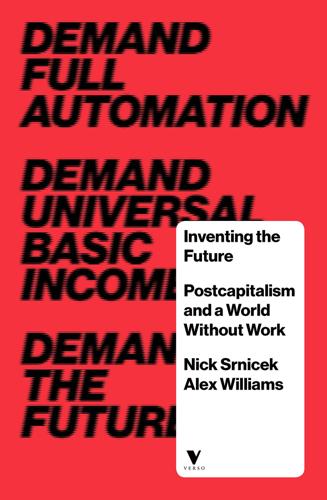
Inventing the Future: Postcapitalism and a World Without Work
by
Nick Srnicek
and
Alex Williams
Published 1 Oct 2015
Eventually, with legal and insurance changes, consumers will be forced into adopting this technology. 28.Isaac Arnsdorf, ‘Rolls-Royce Drone Ships Challenge $375 Billion Industry: Freight’, Bloomberg, 25 February 2014, at bloomberg.com; BBC News, ‘Amazon Testing Drones for Deliveries’, BBC News, 2 December 2013; Danielle Kucera, ‘Amazon Acquires Kiva Systems in Second-Biggest Takeover’, Bloomberg, 19 March 2012, at bloomberg.com; Vicky Validakis, ‘Rio’s Driverless Trucks Move 100 Million Tonnes’, Mining Australia, 24 April 2013, at miningaustralia.com.au; Elise Hu, ‘The Fast-Food Restaurants that Require Few Human Workers’, NPR.org, 29 August 2013, at npr.org; Christopher Steiner, Automate This: How Algorithms Came to Rule Our World (New York: Portfolio/Penguin, 2012); Mark Levinson, The Box: How the Shipping Container Made the World Smaller and the World Economy Bigger (Princeton, NJ: Princeton University Press, 2008); Daniel Beunza, Donald MacKenzie, Yuval Millo and Juan Pablo Pardo-Guerra, Impersonal Efficiency and the Dangers of a Fully Automated Securities Exchange (London: Foresight, 2011). 29.For a slightly outdated but still useful summary of various automation processes, see Ramin Ramtin, Capitalism and Automation: Revolution in Technology and Capitalist Breakdown (London: Pluto, 1991), Chapter 4. 30.Erik Brynjolfsson and Andrew McAfee, The Second Machine Age: Work, Progress, and Prosperity in a Time of Brilliant Technologies (New York: W.
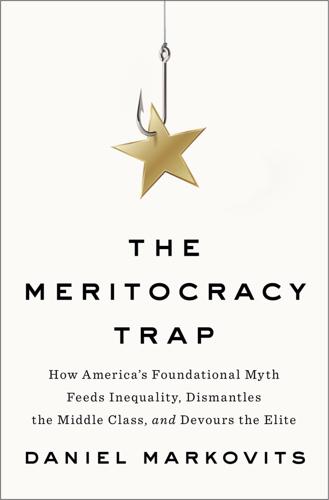
The Meritocracy Trap: How America's Foundational Myth Feeds Inequality, Dismantles the Middle Class, and Devours the Elite
by
Daniel Markovits
Published 14 Sep 2019
In this way, Amazon replaces the middle-class workers who would traditionally have been tasked with managing warehouse administration with a highly centralized administrative regime, which breaks the production process into its constituent parts and then in effect buys each part individually. Amazon aspires to use technology to eliminate human warehouse management entirely, and the firm has to this end spent nearly $1 billion to buy the robotics company Kiva Systems. Meanwhile, the Chinese firm JD.com (which has entered a strategic partnership with Google) has already built a warehouse outside Shanghai at which hundreds of robots pack and ship roughly two hundred thousand boxes per day, attended by only four human workers. The management function has not disappeared, of course.
…
buys each part individually: See Head, Mindless, 29–46; Simon Head, “Worse Than Walmart: Amazon’s Sick Brutality and Secret History of Ruthlessly Intimidating Workers,” Salon, February 23, 2014, accessed November 18, 2018, www.salon.com/2014/02/23/worse_than_wal_mart_amazons_sick_brutality_and_secret_history_of_ruthlessly_intimidating_workers/. Kiva Systems: Nick Wingfield, “As Amazon Pushes Forward with Robots, Workers Find New Roles,” New York Times, September 10, 2017, accessed November 18, 2018, www.nytimes.com/2017/09/10/technology/amazon-robots-workers.html. only four human workers: Danielle Paquette, “He’s One of the Only Humans at Work—and He Loves It,” Washington Post, September 10, 2018, accessed October 24, 2018, www.washingtonpost.com/world/asia_pacific/hes-one-of-the-only-humans-at-work—and-he-loves-it/2018/09/09/71392542-9541-11e8-8ffb-5de6d5e49ada_story.html?
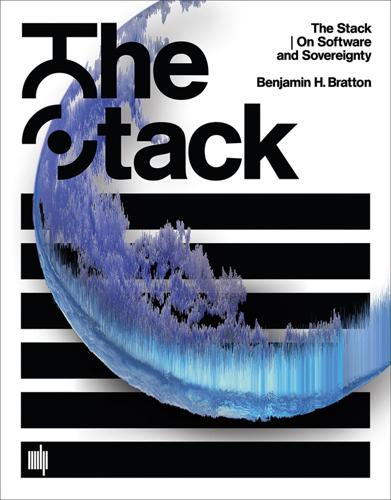
The Stack: On Software and Sovereignty
by
Benjamin H. Bratton
Published 19 Feb 2016
On Amazon's ongoing implementation of robotic systems in its warehouse and distribution chain, see Sam Grobart, “Amazon's Robotic Future: A Work in Progress,” Bloomberg Business Week, November 30, 2012, 2012 http://www.bloomberg.com/bw/articles/2012-11-30/amazons-robotic-future-a-work-in-progress and Sarah O’Connor, “Amazon's Human Robots: They Trek 15 Miles a Day around a Warehouse, Their Every Move Dictated by Computers Checking Their Work. Is This the Future of the British Workplace?” Mail Online, March 1, 2013, http://www.dailymail.co.uk/news/article-2286227/Amazons-human-robots-Is-future-British-workplace.html. Amazon also purchased Kiva Systems, a leading manufacturer of warehouse automation systems. See Scott Kirsner, “Amazon Buys Warehouse Robotics Start-Up Kiva Systems for $775 Million,” Boston.com, March 19, 2012, http://www.boston.com/business/technology/innoeco/2012/03/amazon_buys_warehouse_robotics.html. 65. Stowe Boyd, “If Amazon Is the Future of Work, Then Be Afraid,” Gigaom Research, February 22, 2013, http://research.gigaom.com/2013/02/if-amazon-is-the-future-of-work/. 66.
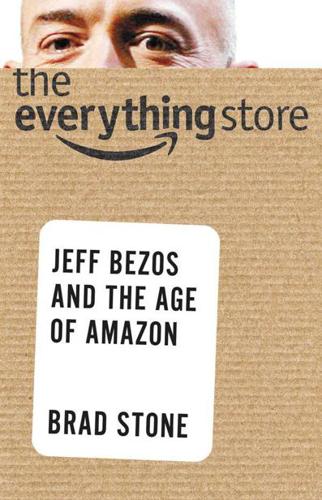
The Everything Store: Jeff Bezos and the Age of Amazon
by
Brad Stone
Published 14 Oct 2013
The company issued a total of 237 press releases—an average of 1.6 announcements for every two weekdays. Since the company was now beginning to collect sales tax in many states, it didn’t have to sidestep nexus issues and so opened more than a dozen new fulfillment and customer-service centers around the world. It acquired Kiva Systems, a Boston company building mobile robots meant to one day replace the human pickers in fulfillment centers, for $775 million in cash. It renewed its push into apparel with its dedicated website MyHabit.com and opened a new store for industrial and scientific equipment, Amazon Supply. Amazon also expanded a service that allowed advertisers to reach Amazon customers on all of the company’s websites and devices.
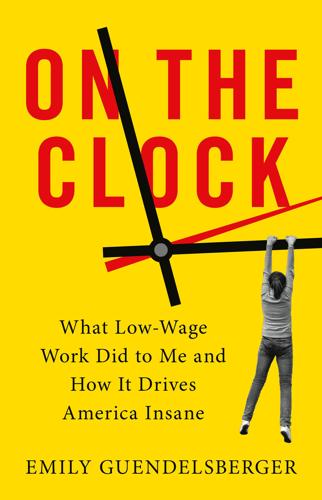
On the Clock: What Low-Wage Work Did to Me and How It Drives America Insane
by
Emily Guendelsberger
Published 15 Jul 2019
“So once you do get that blue badge, what does your ideal future with Amazon look like?” “I want to beat the world record!” Blair says, her face lighting up. I laugh. “I’m not kidding! I was thinking about it—what’s the world picking record? Well, for a human. Because I know those Kiva robots, what they can do—they’re gonna put everyone out of work!” In 2012, Amazon bought Kiva Systems, a robotics company specializing in automating the process of picking and packing in warehouses, for $775 million. SDF8, which opened in 2012, is “seventh generation.” The eighth-generation fulfillment centers that opened after 2014 integrate robot and human workers to make picking a stationary job.
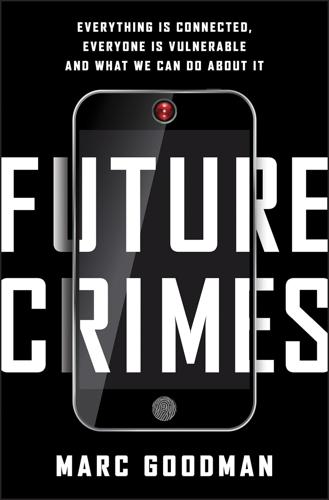
Future Crimes: Everything Is Connected, Everyone Is Vulnerable and What We Can Do About It
by
Marc Goodman
Published 24 Feb 2015
Robots make vehicle production faster, safer, cheaper, and more efficient, and all major manufacturers from Ford to BMW use them to automate production. In just one Hyundai factory in Alabama, five hundred robots work tirelessly welding, painting, bolting, and transporting auto parts in order to crank out more than a thousand cars a day. Not to be outdone, Amazon announced in 2014 that it employs ten thousand Kiva Systems robots that it uses to navigate its massive warehouses to fetch individual items and bring them to human employees who package them before turning them over to more robots for shipping. These robots work three shifts a day, 365 days a year, and never take a coffee break. Industrial robots are growing exponentially cheaper, more efficient, and more user-friendly, and perhaps no other robot exemplifies this trend as much as Baxter, the cute low-cost industrial bot from Rethink Robotics.